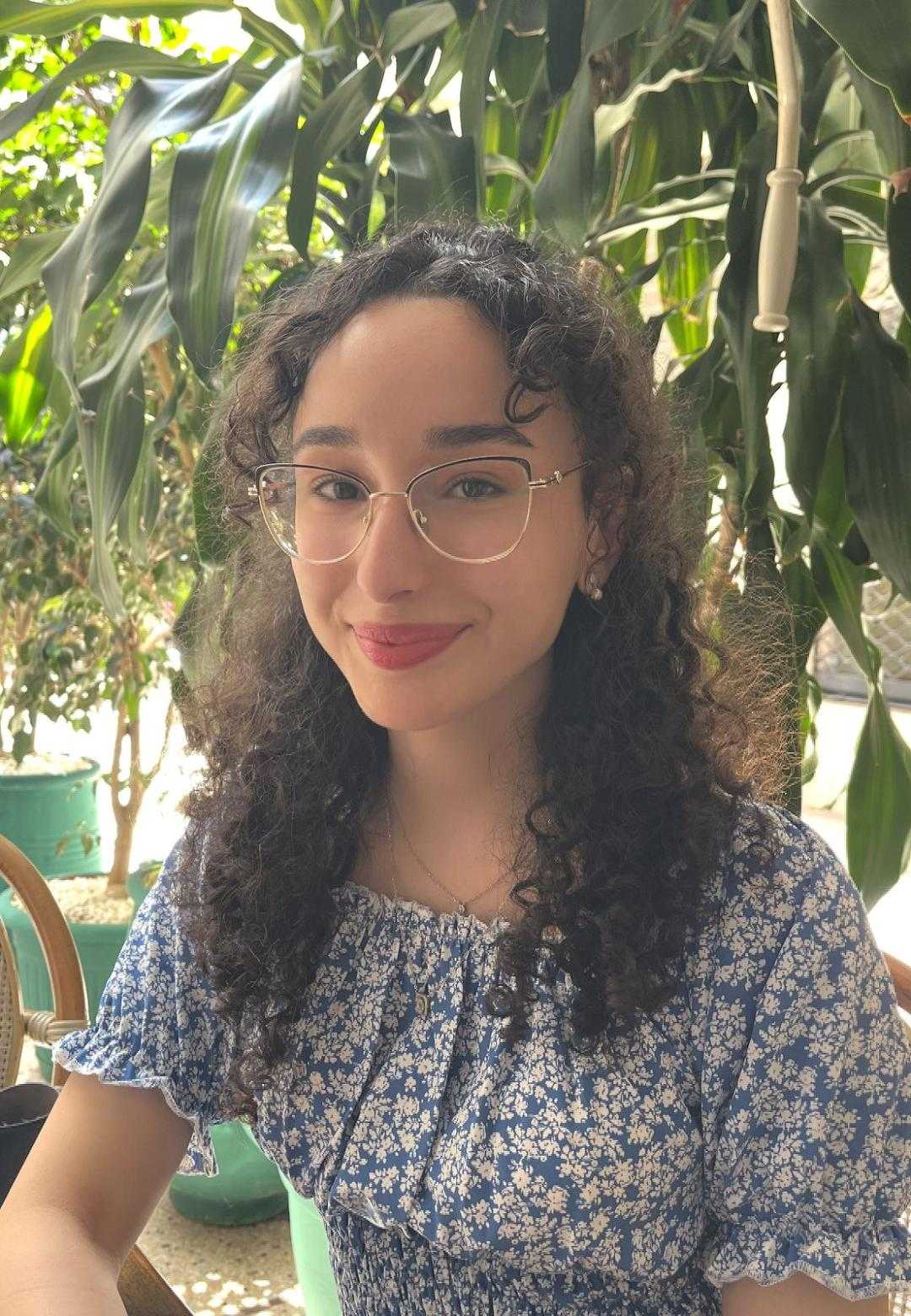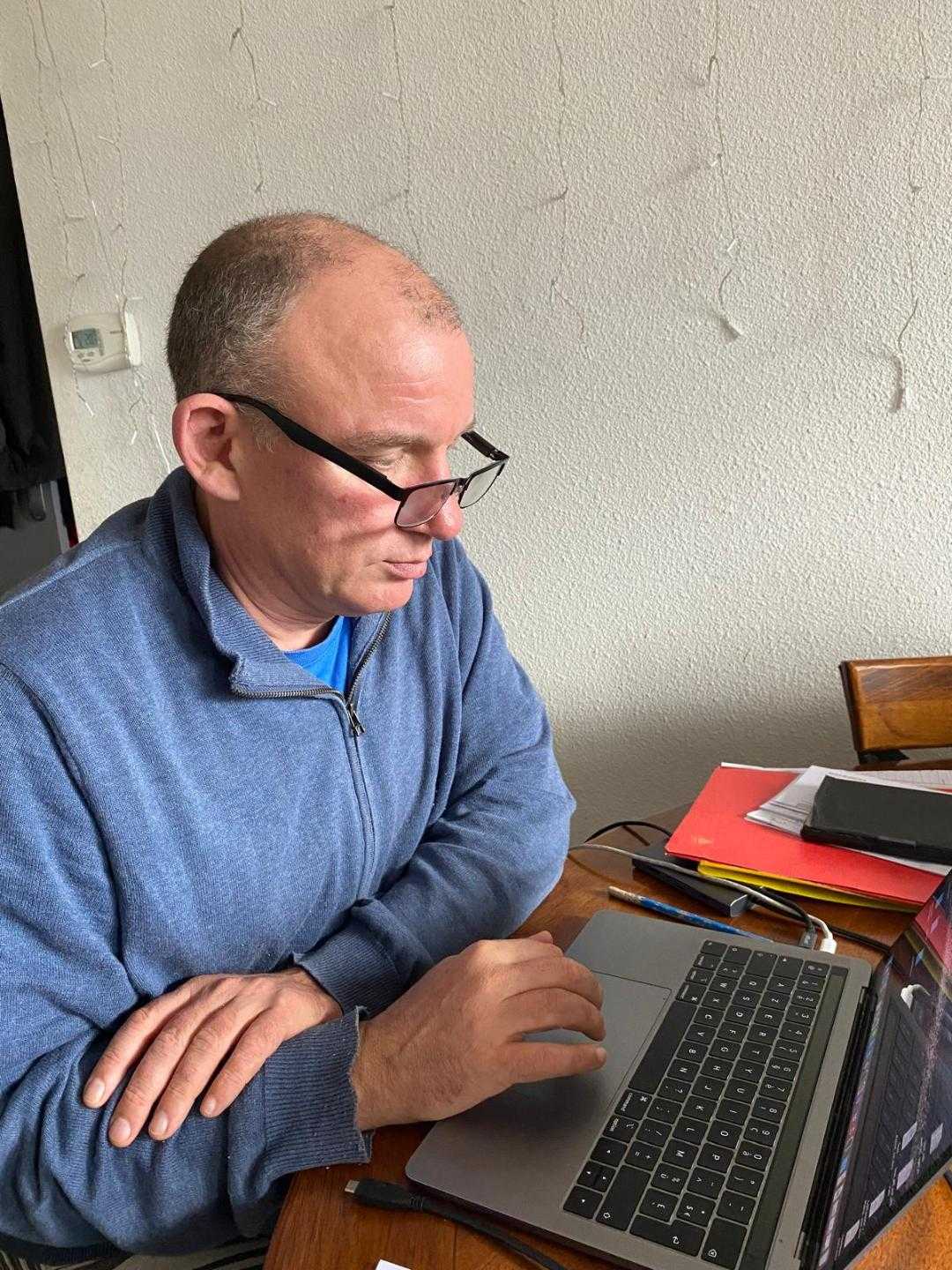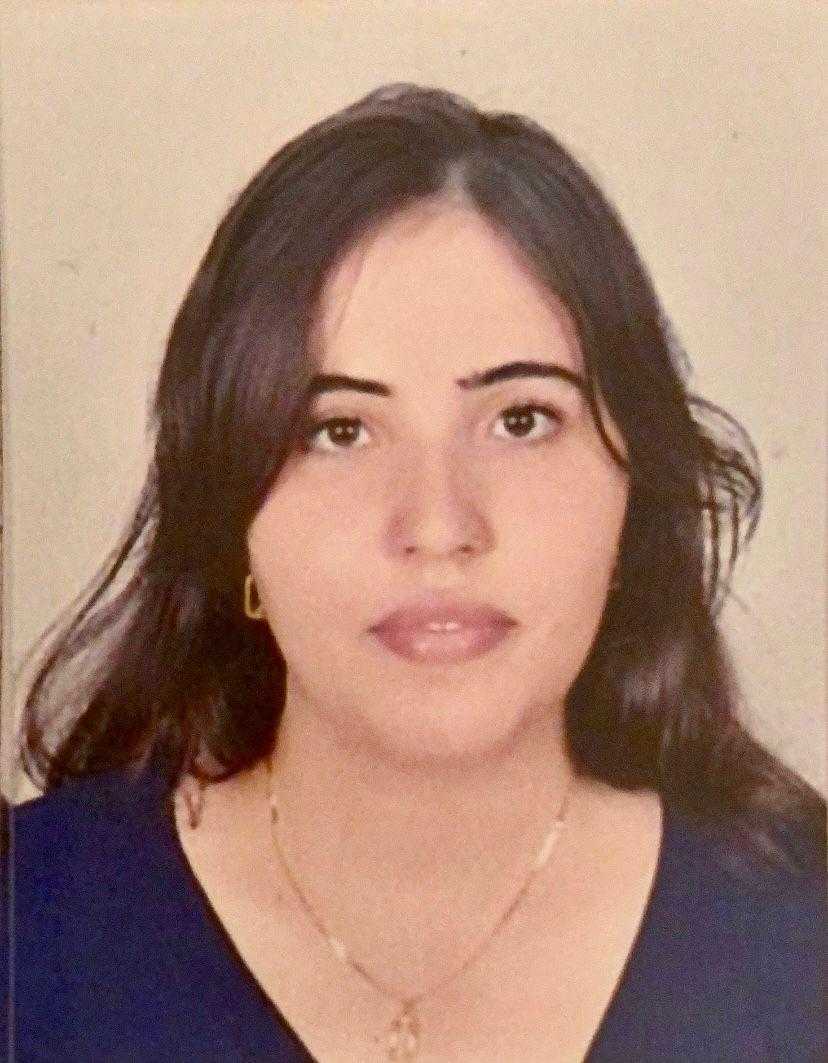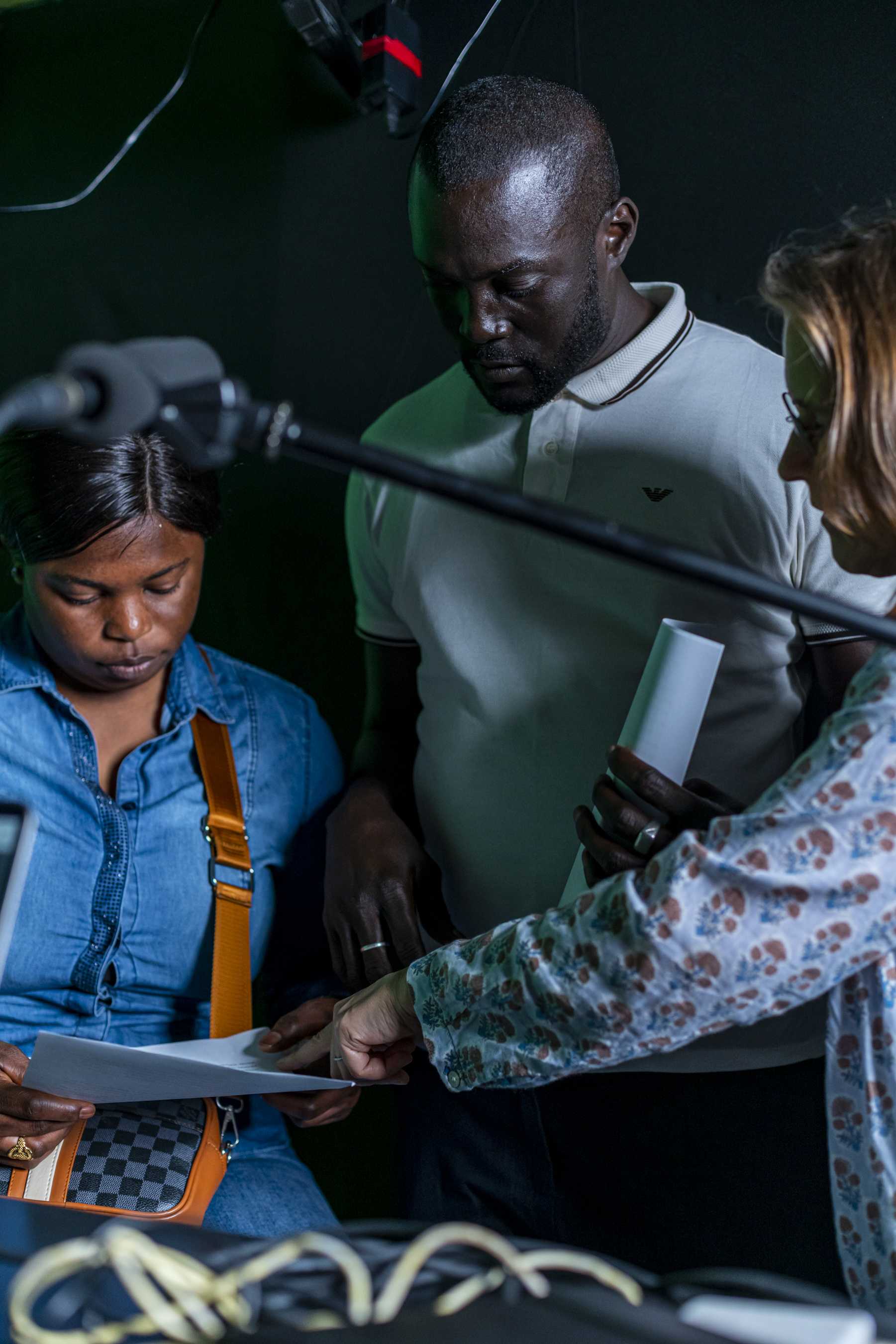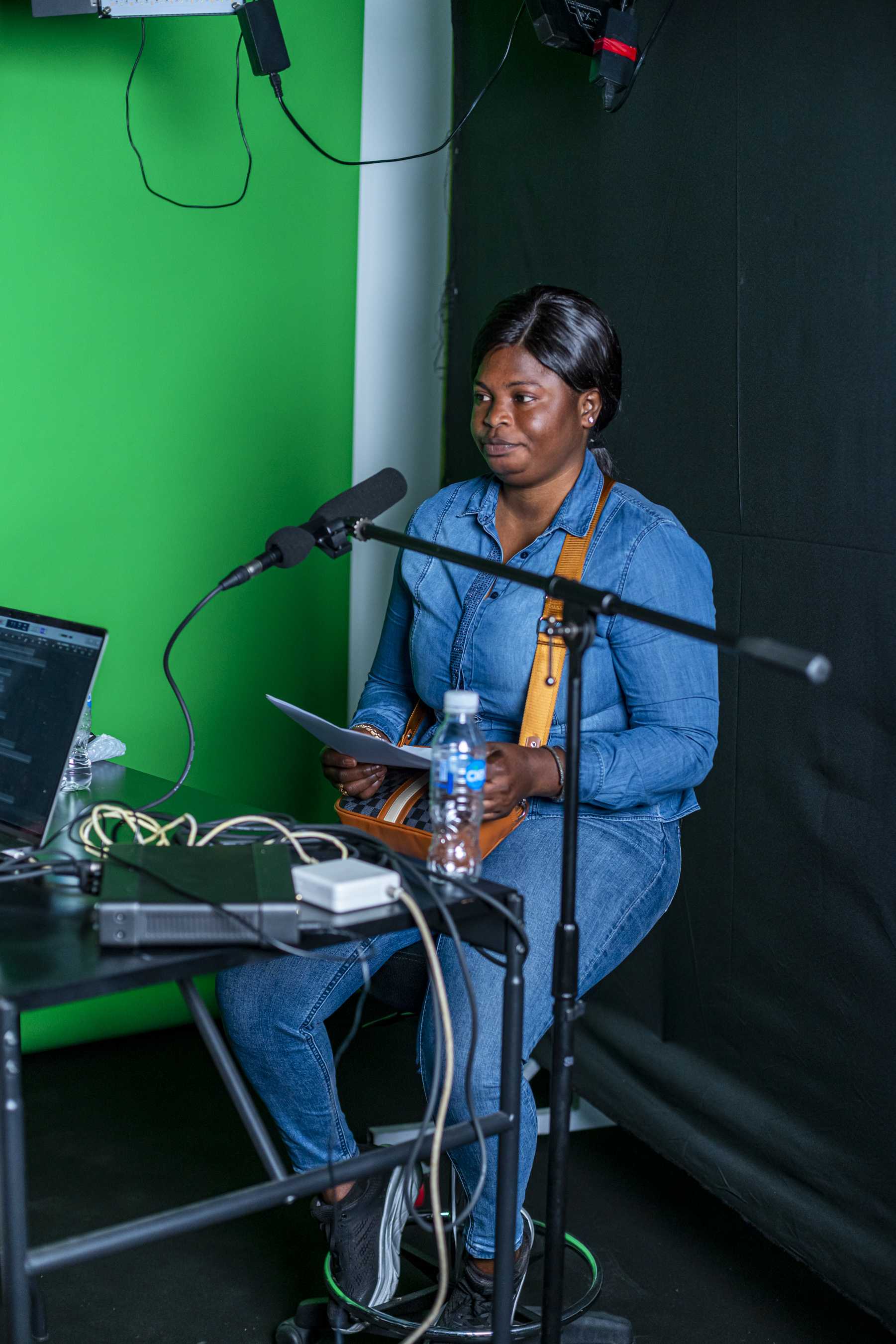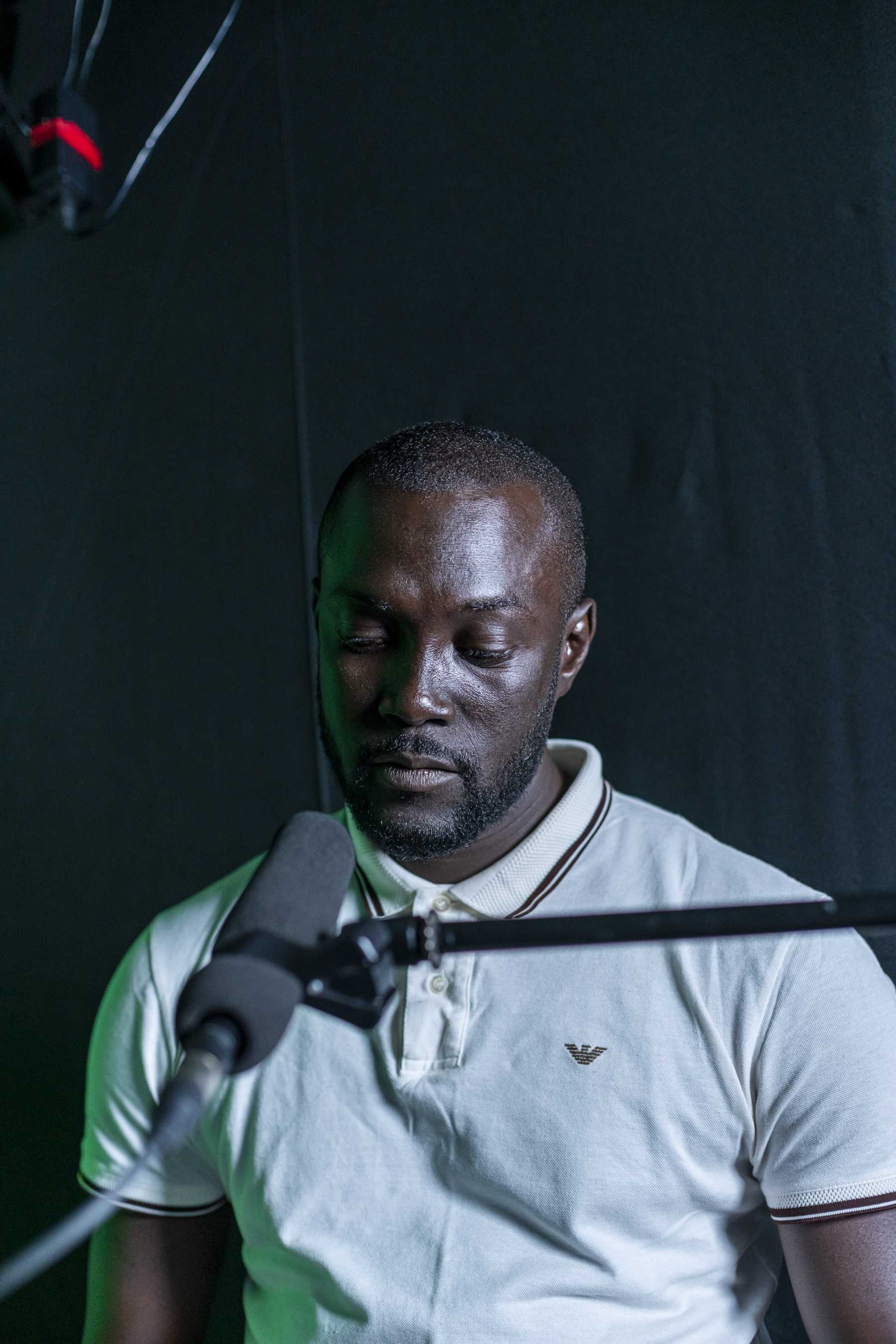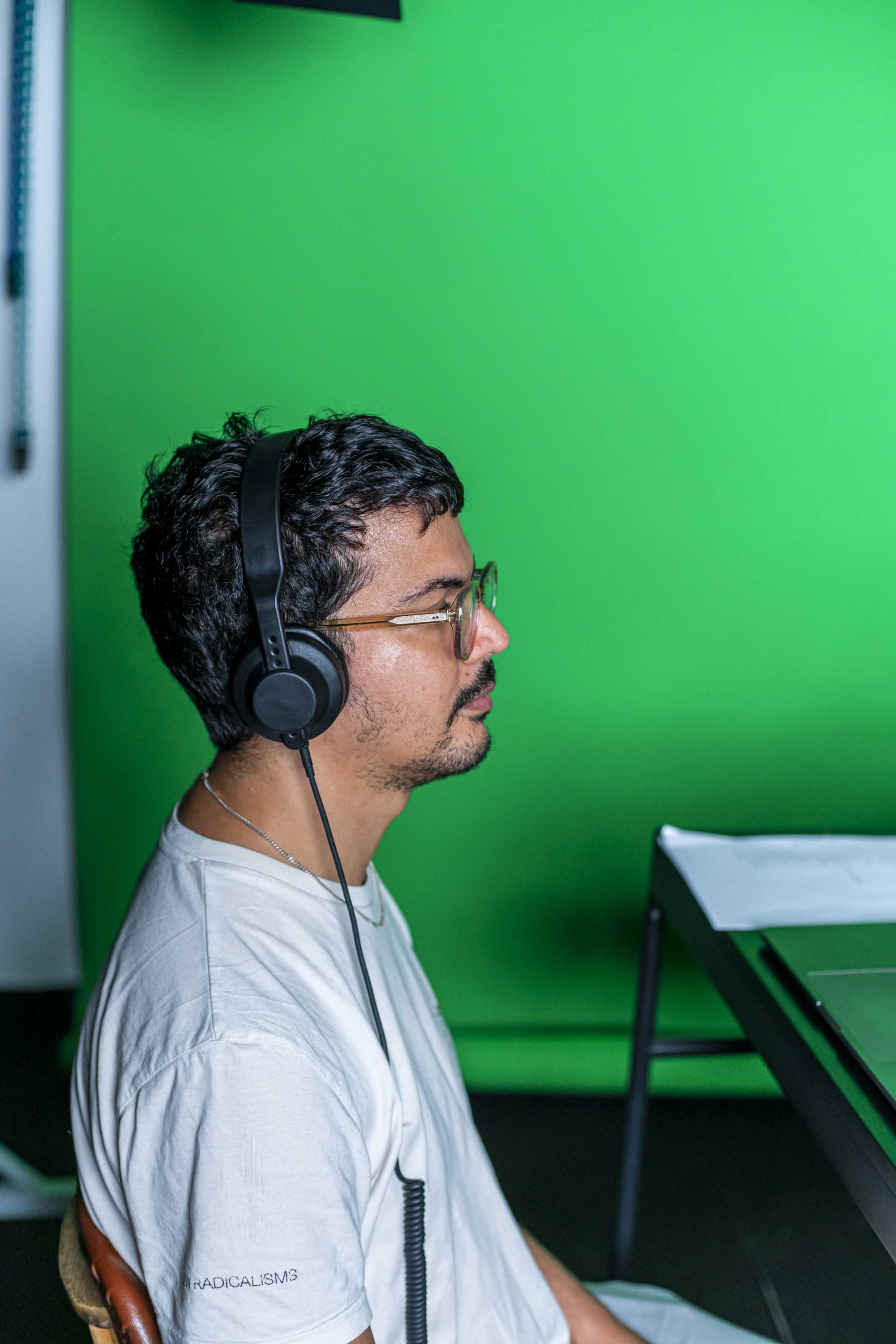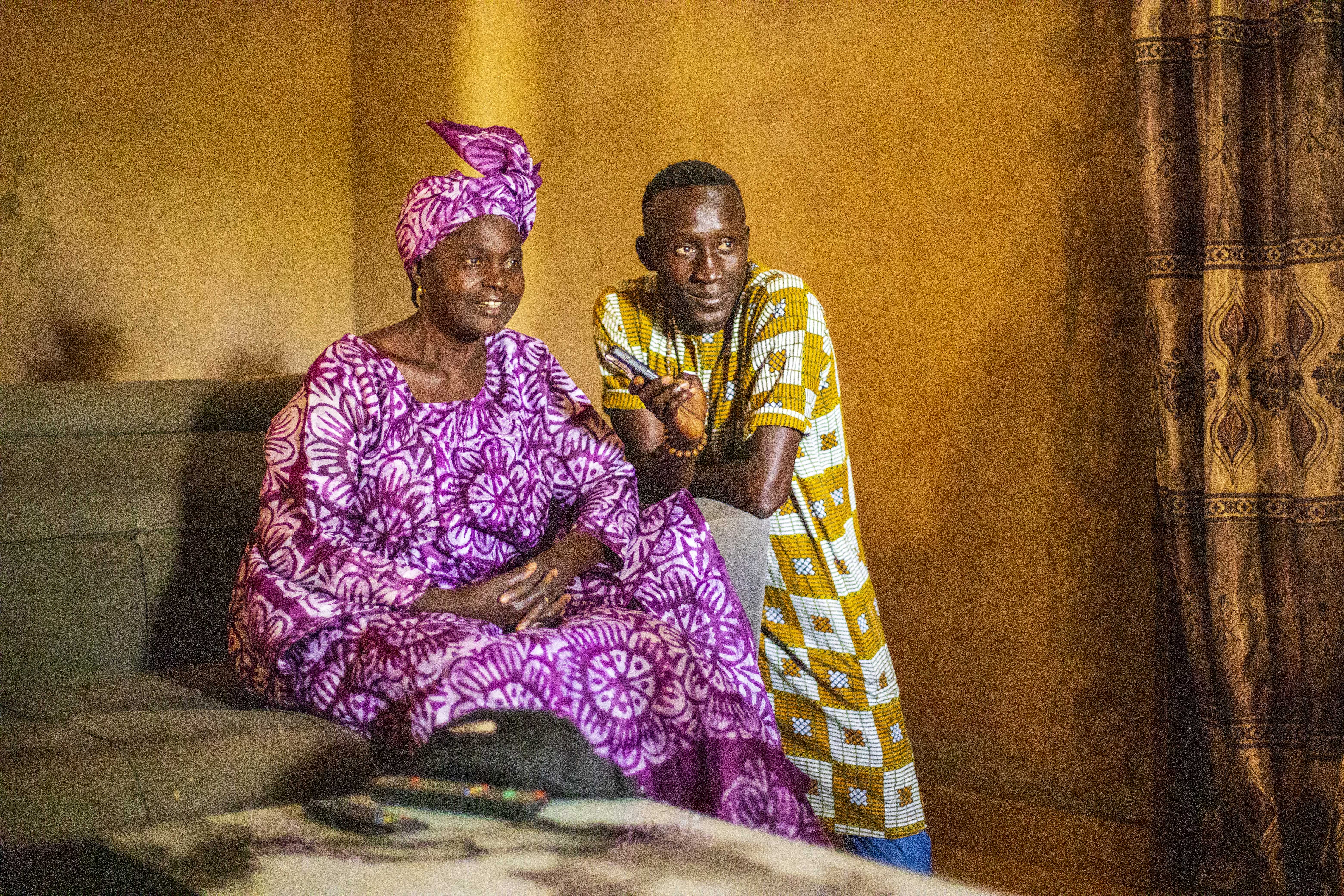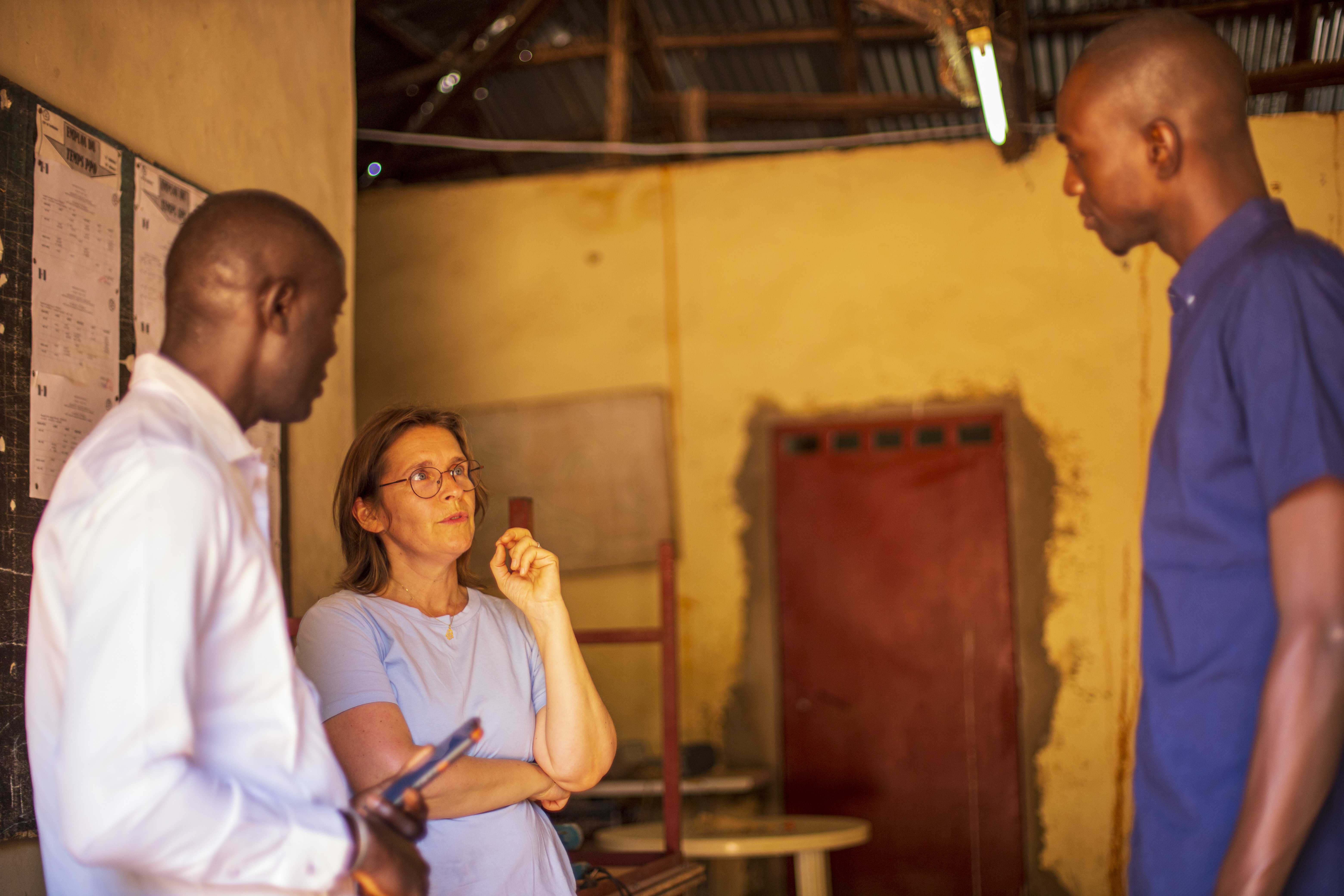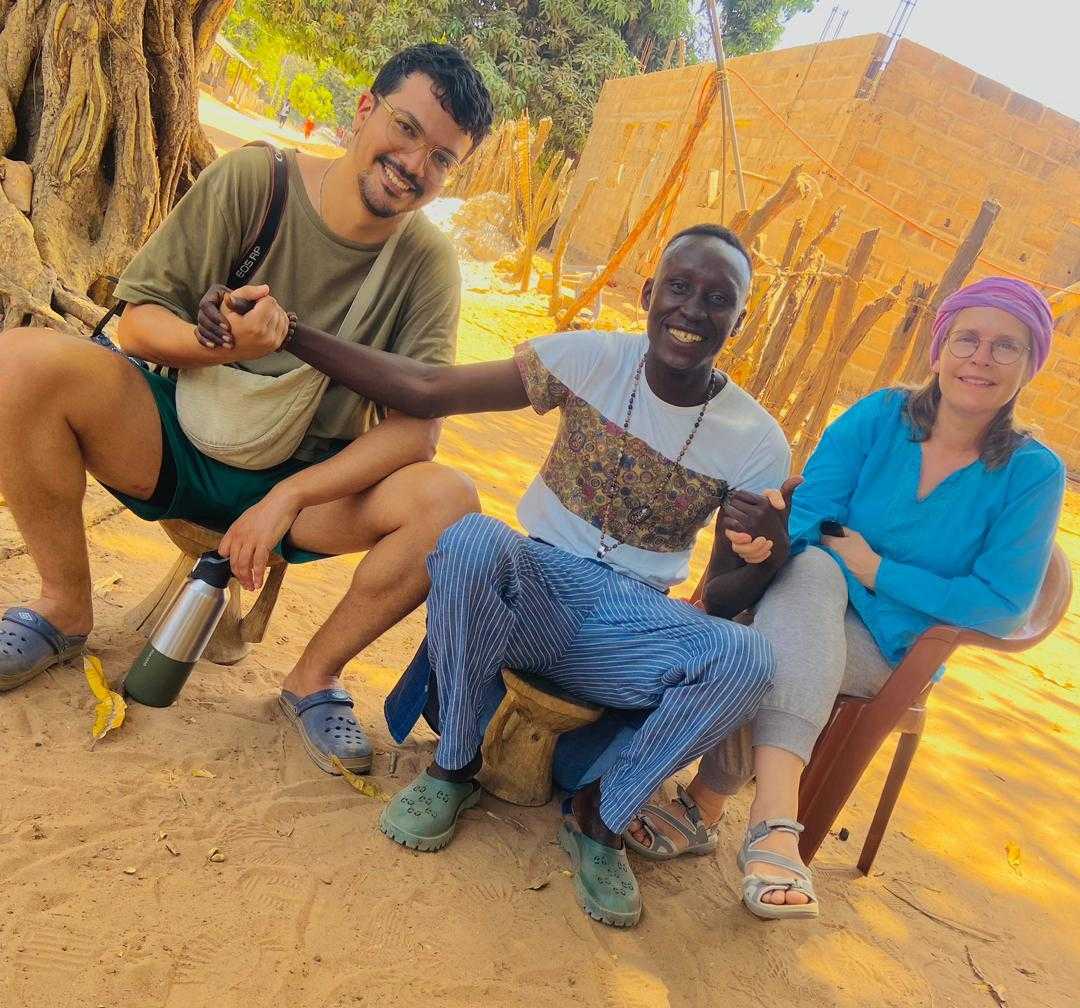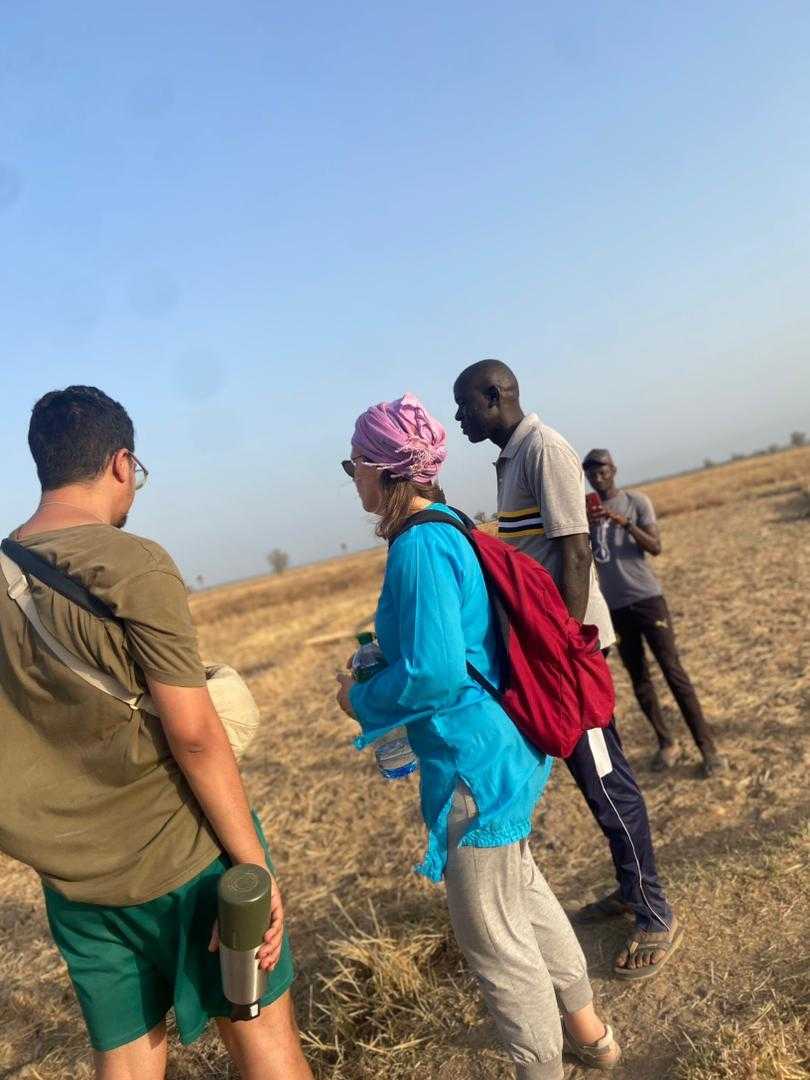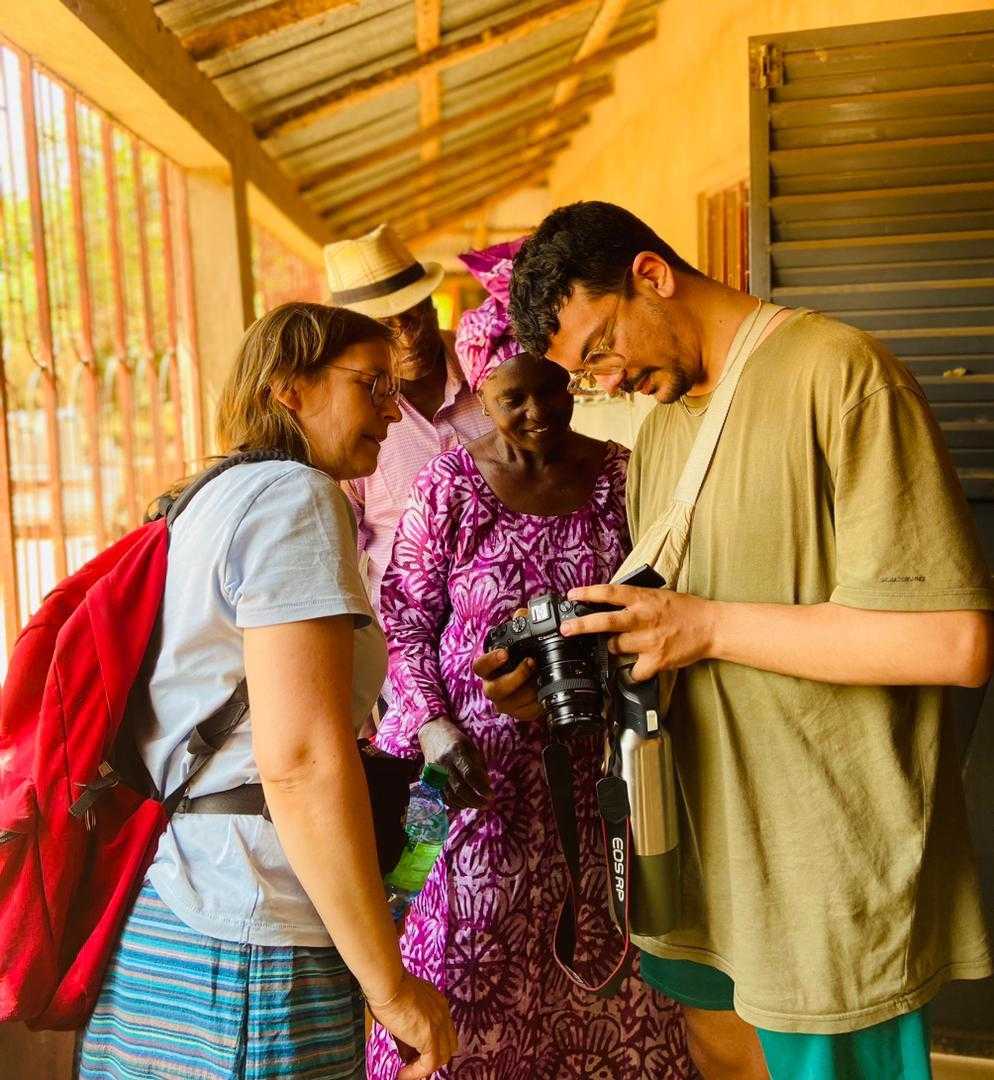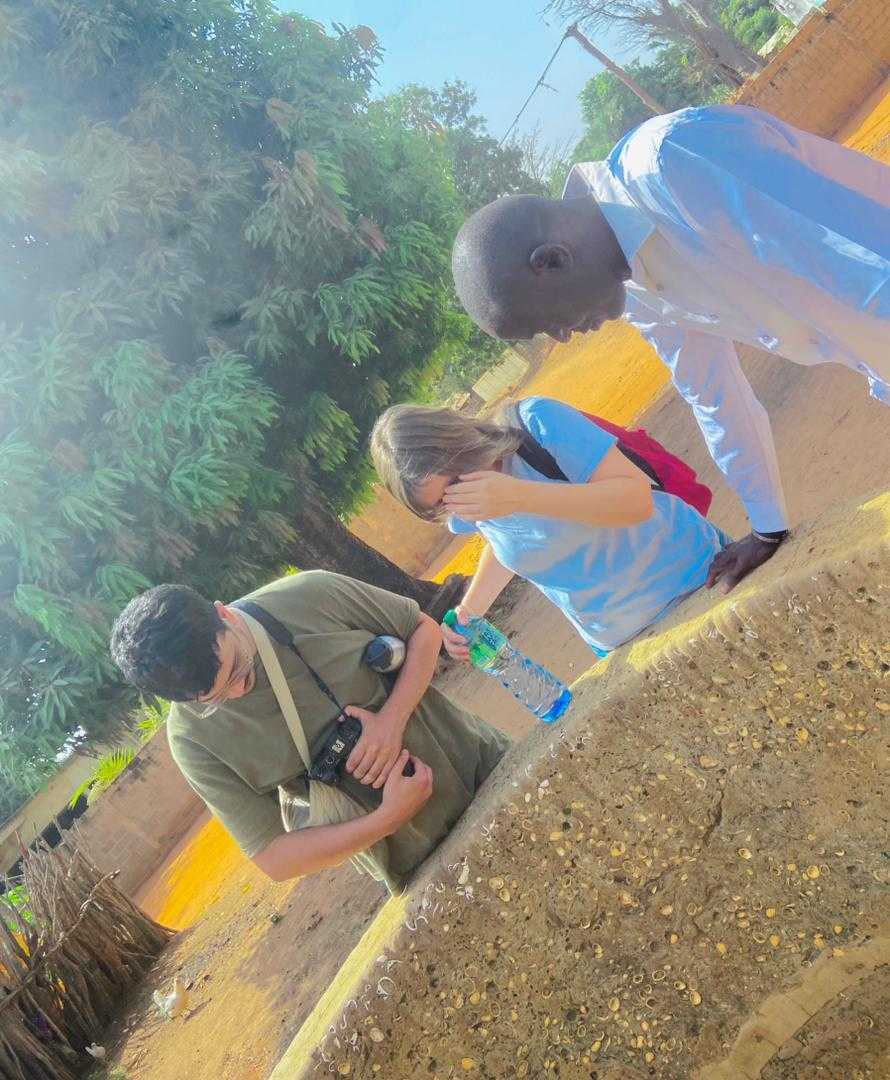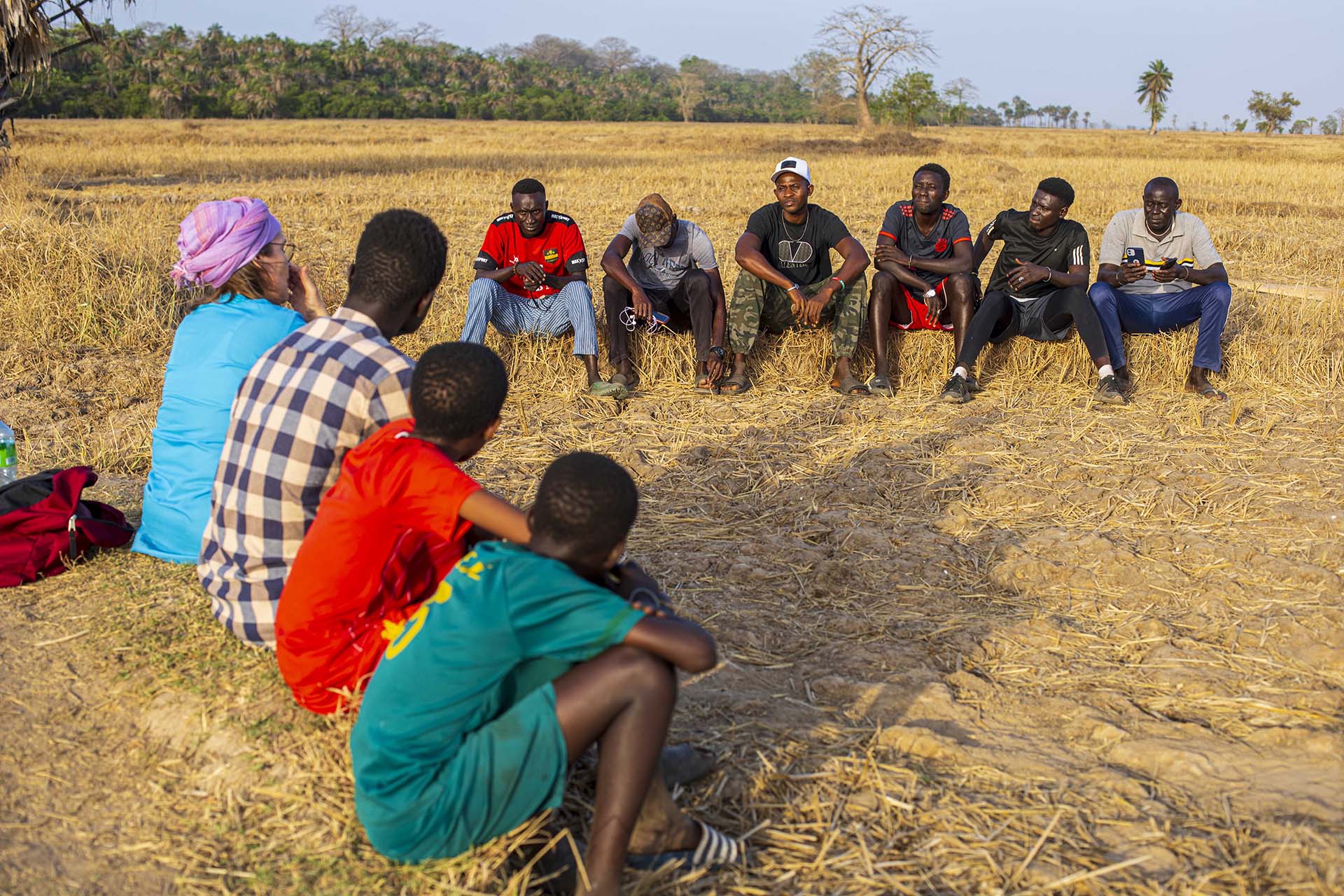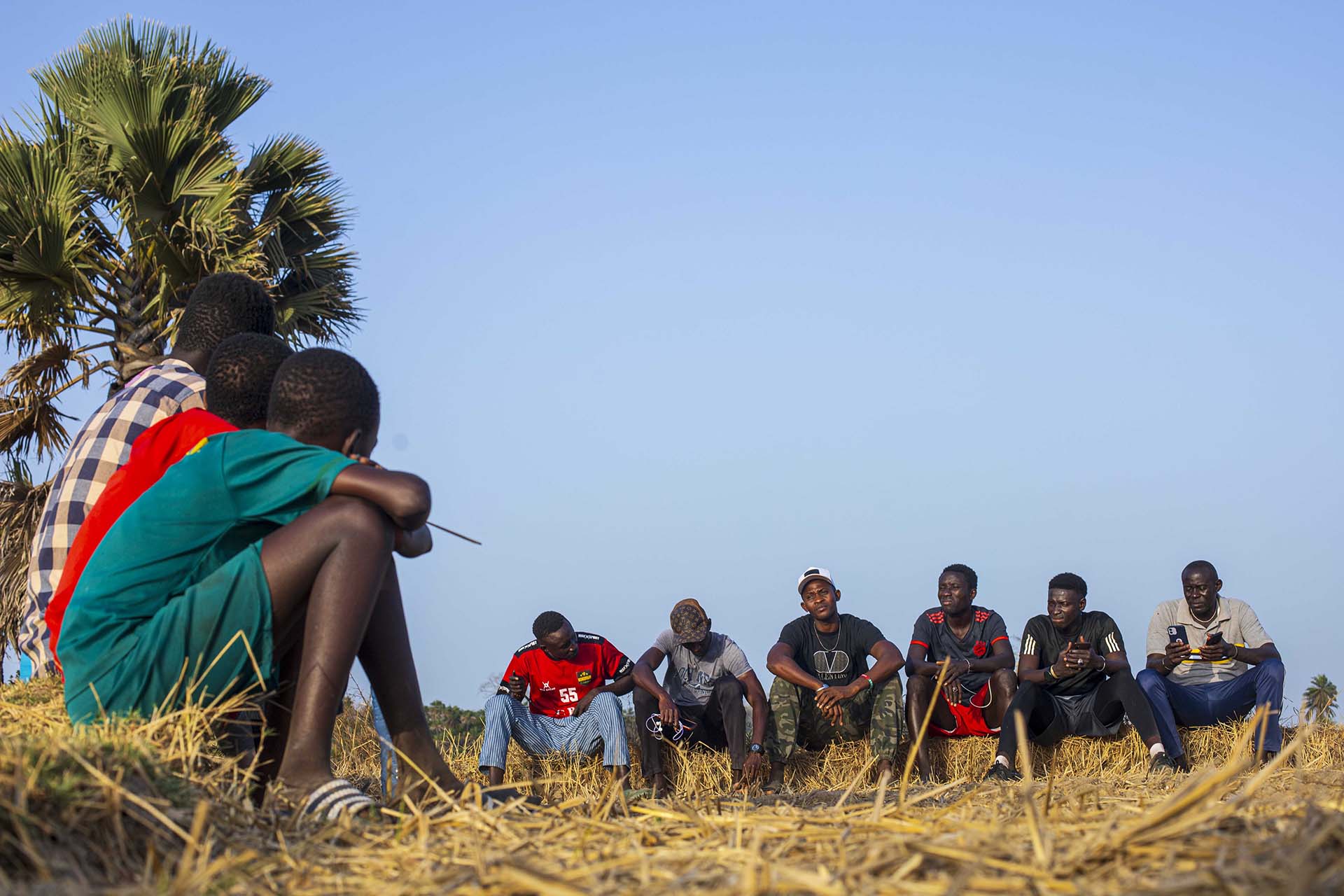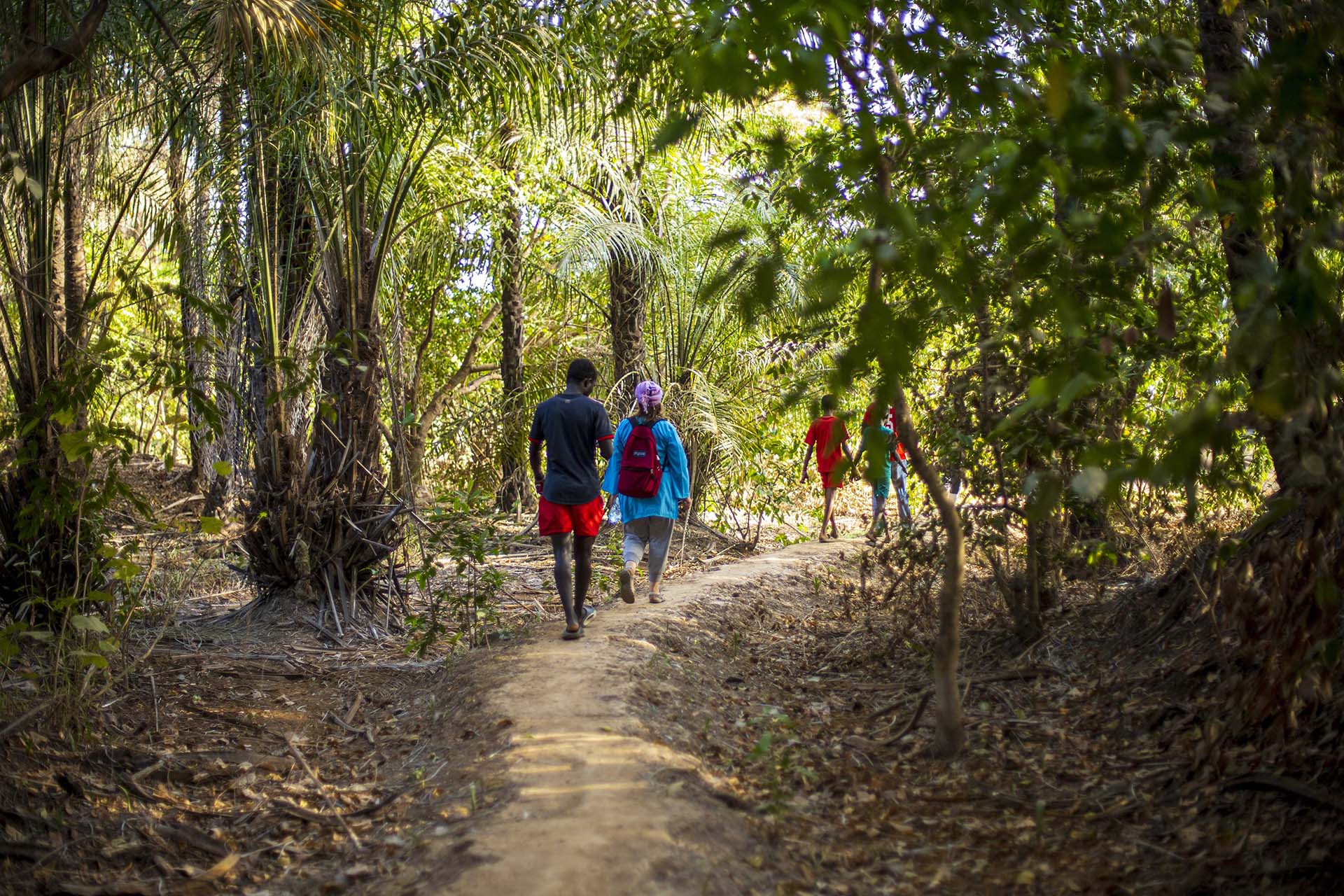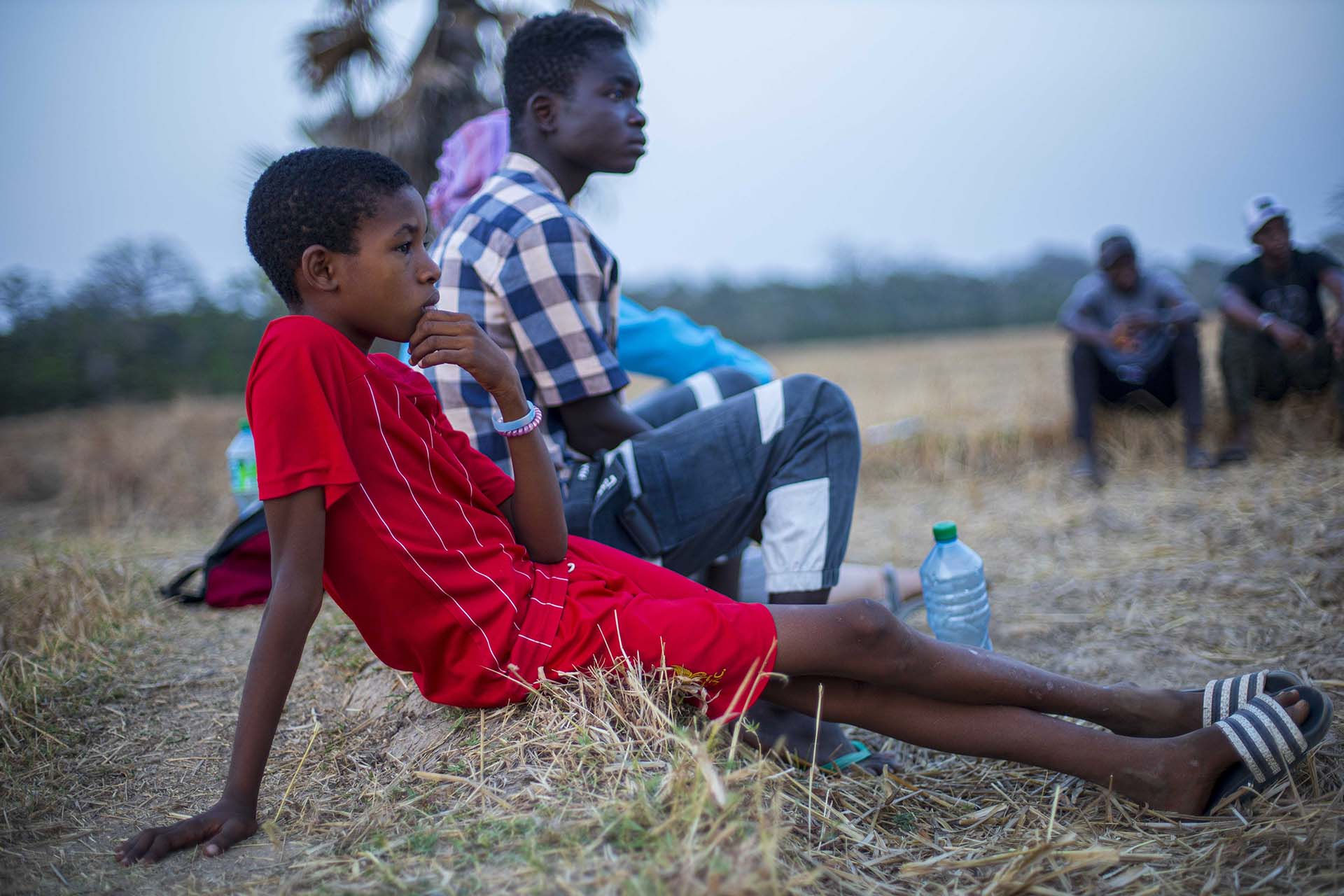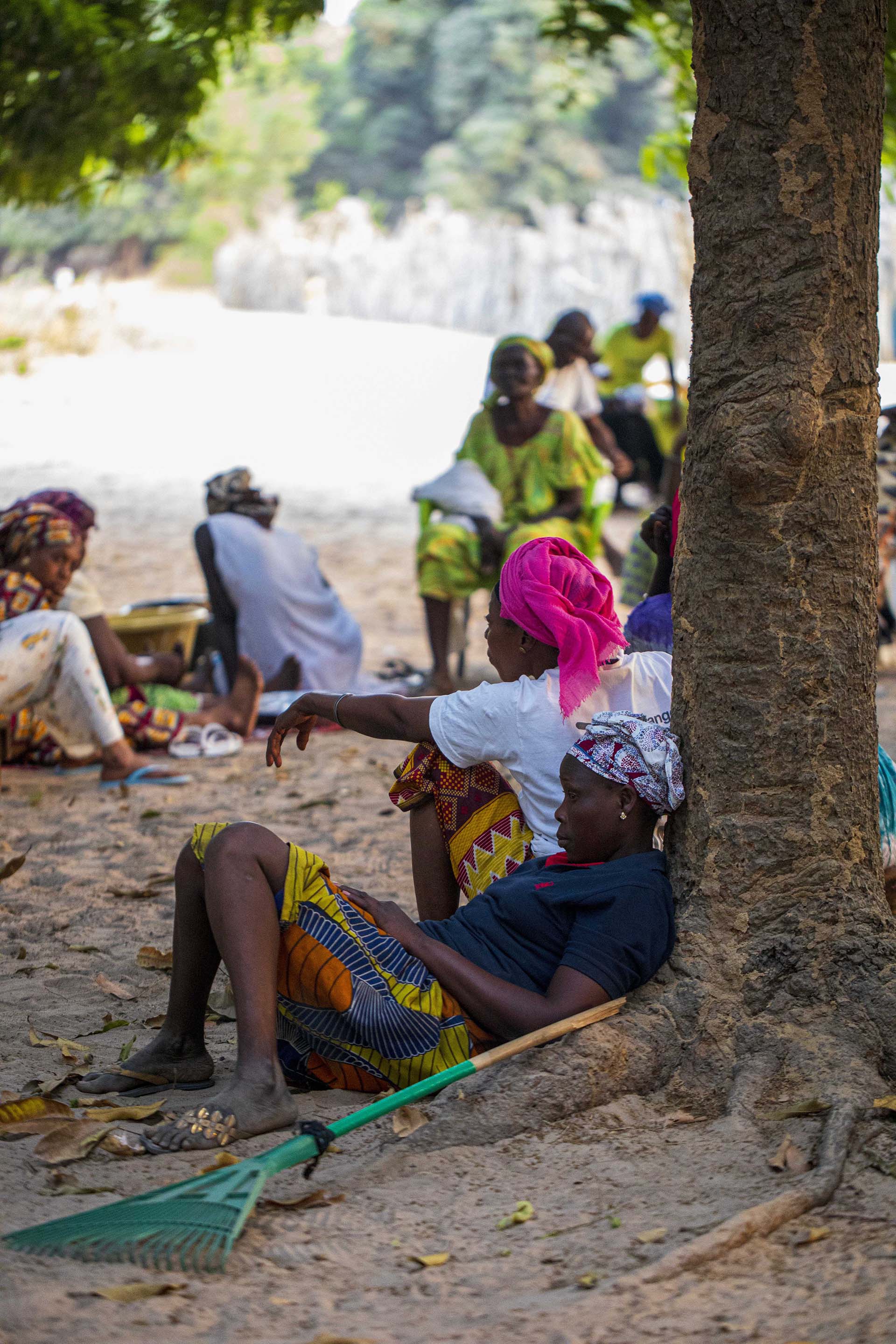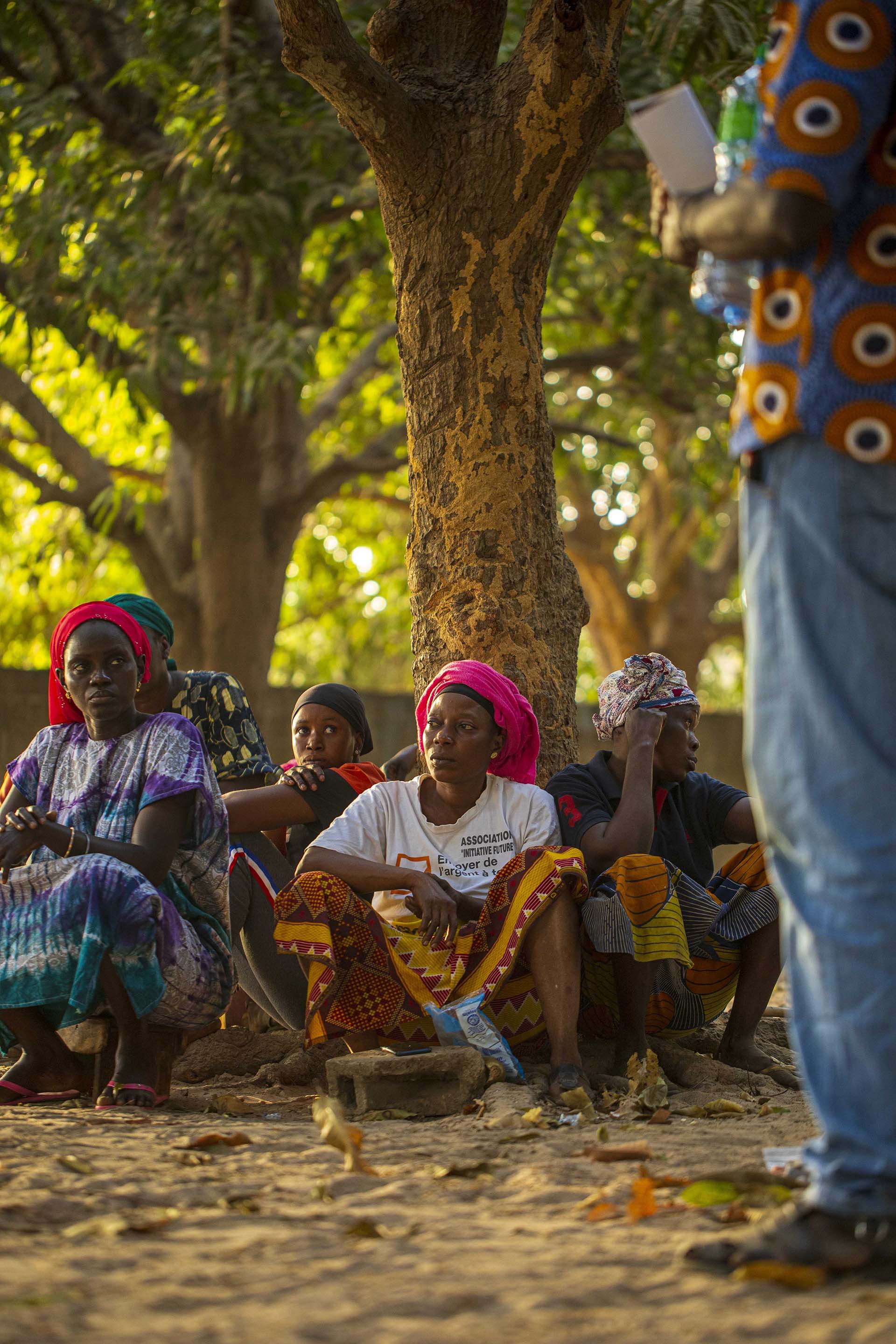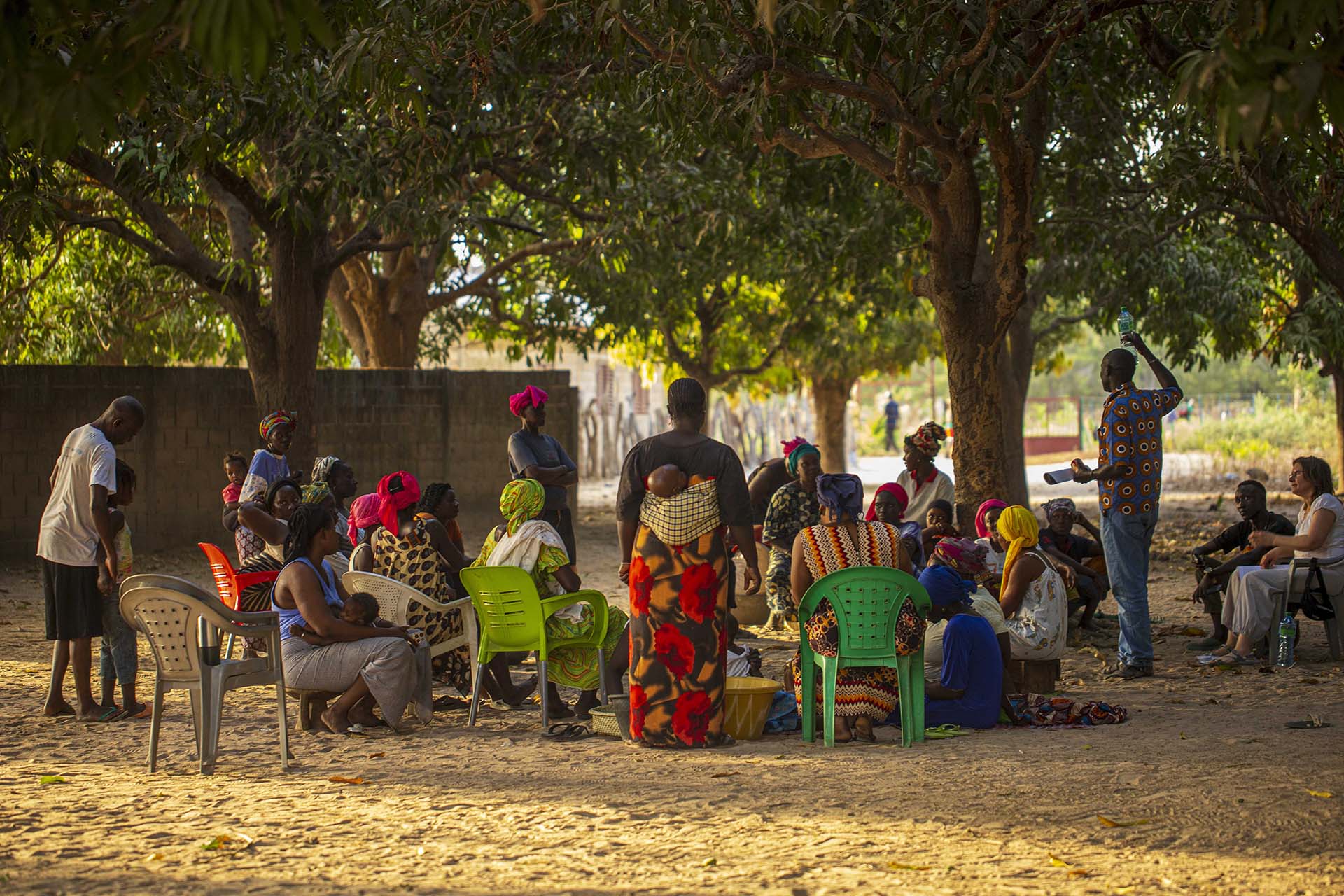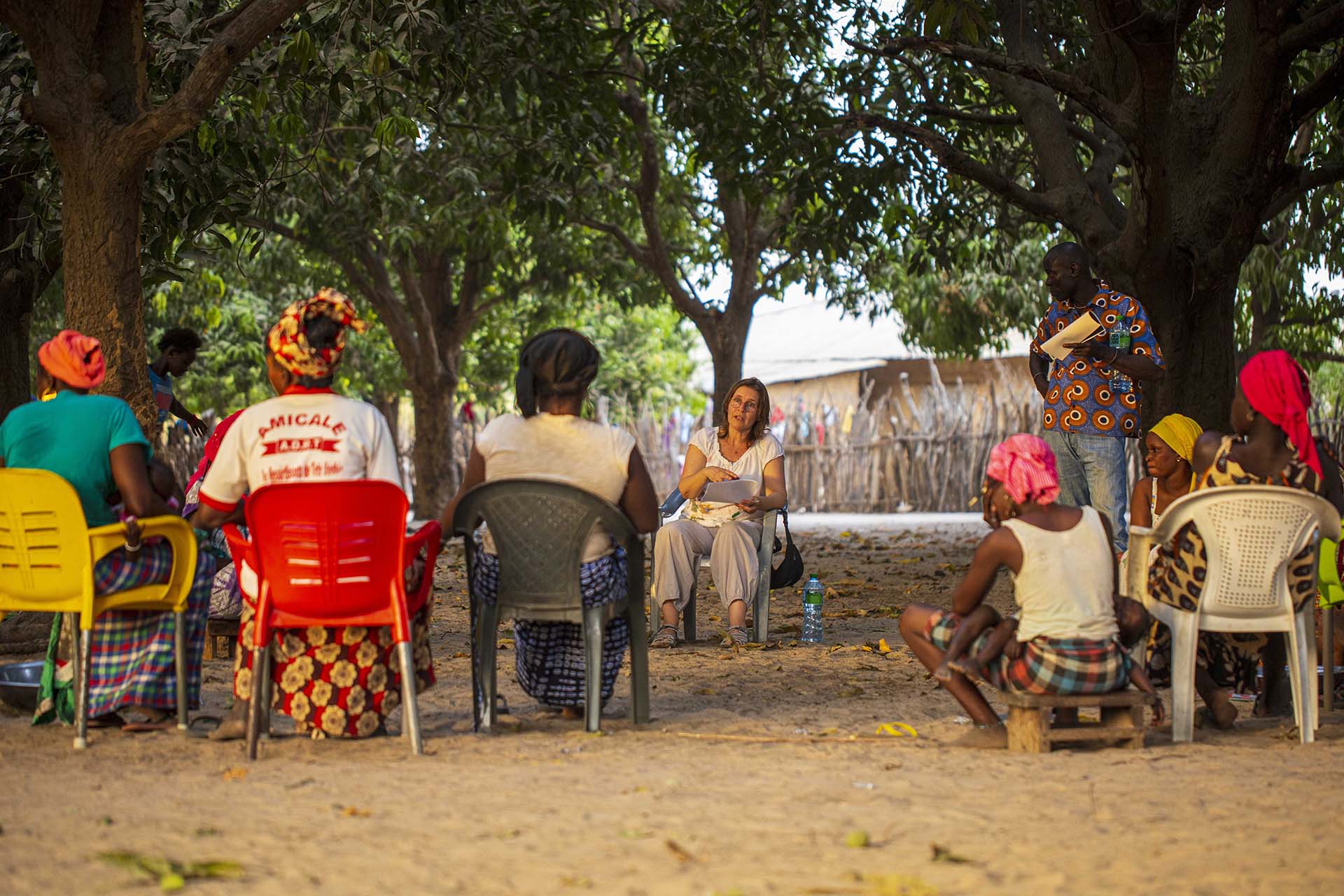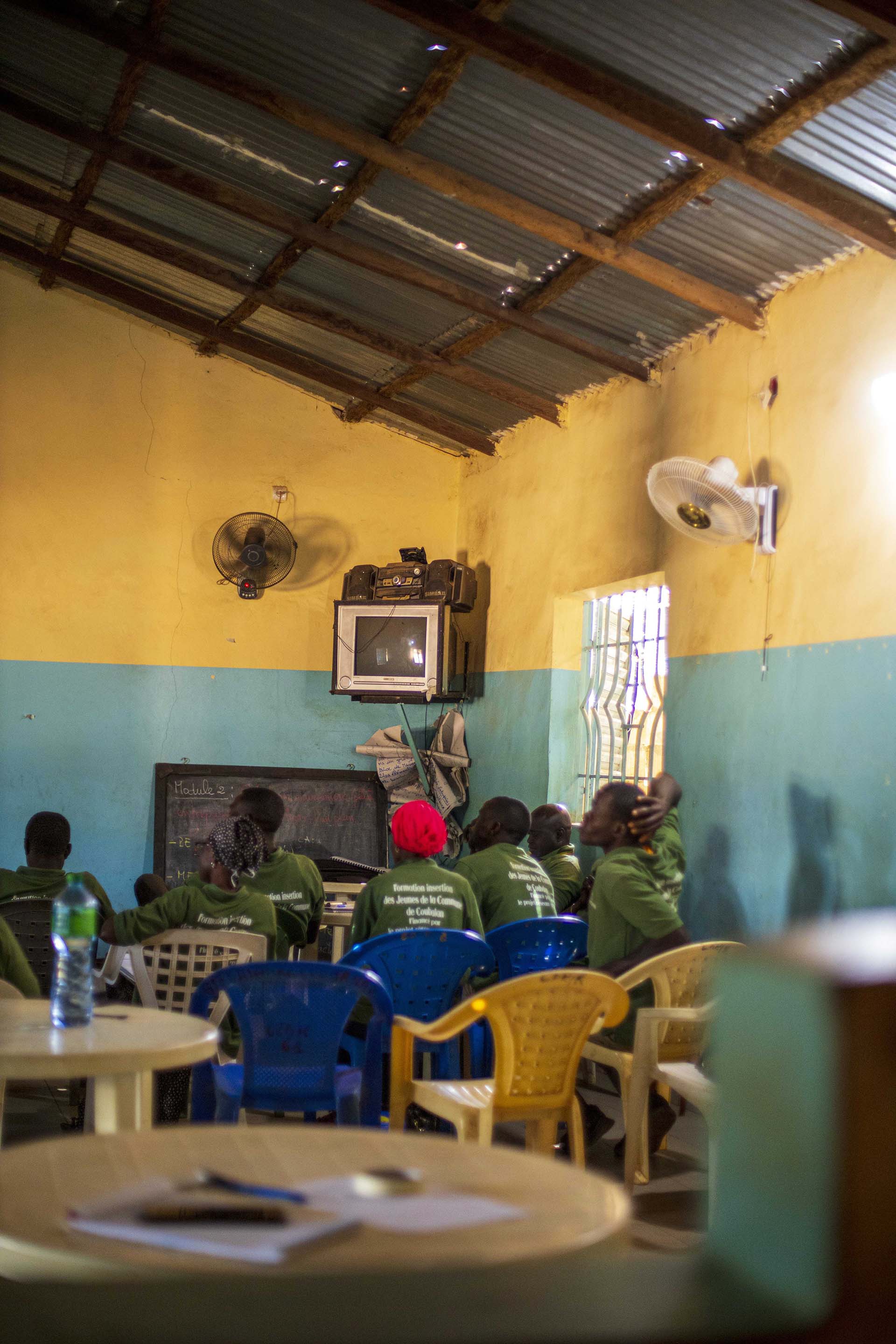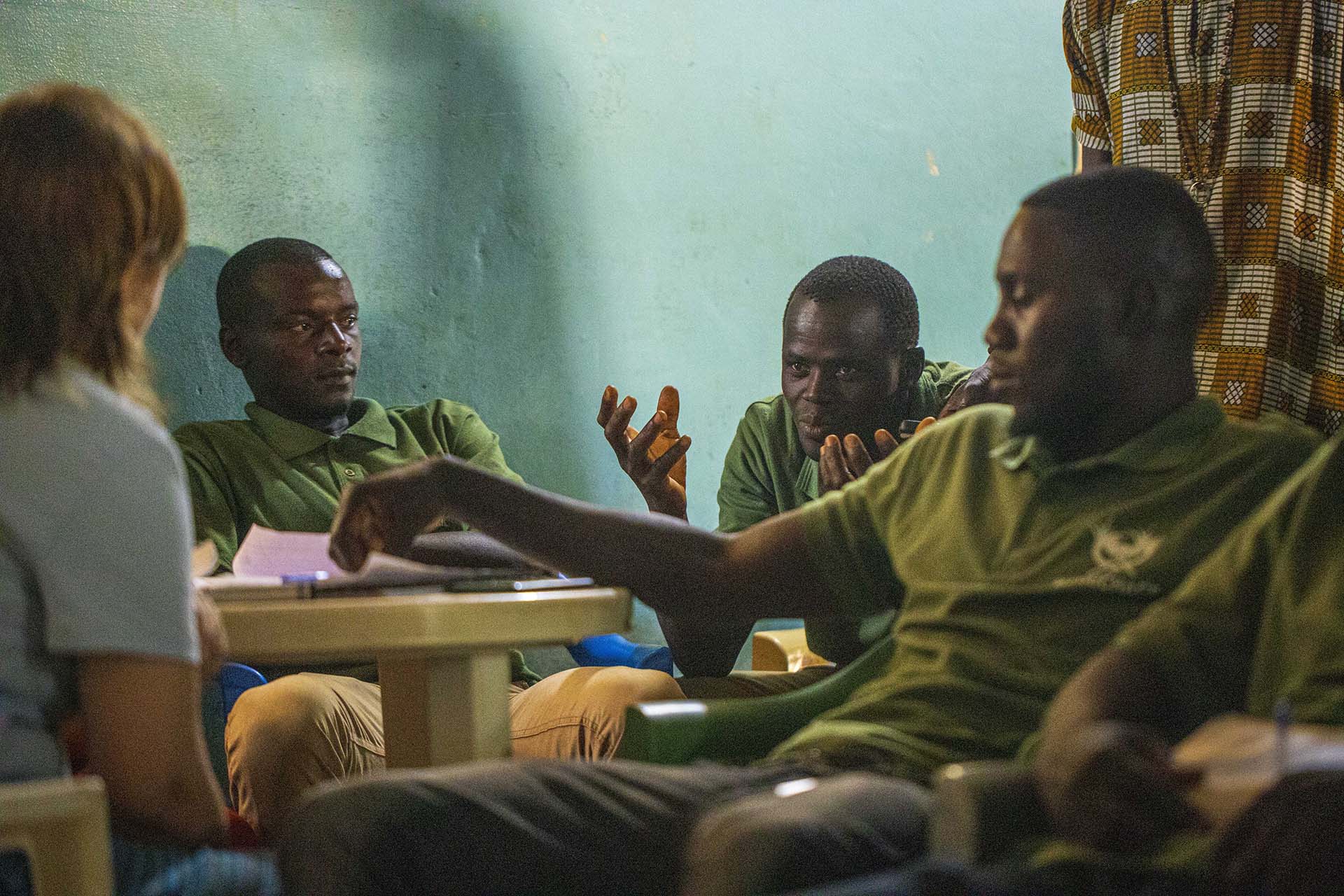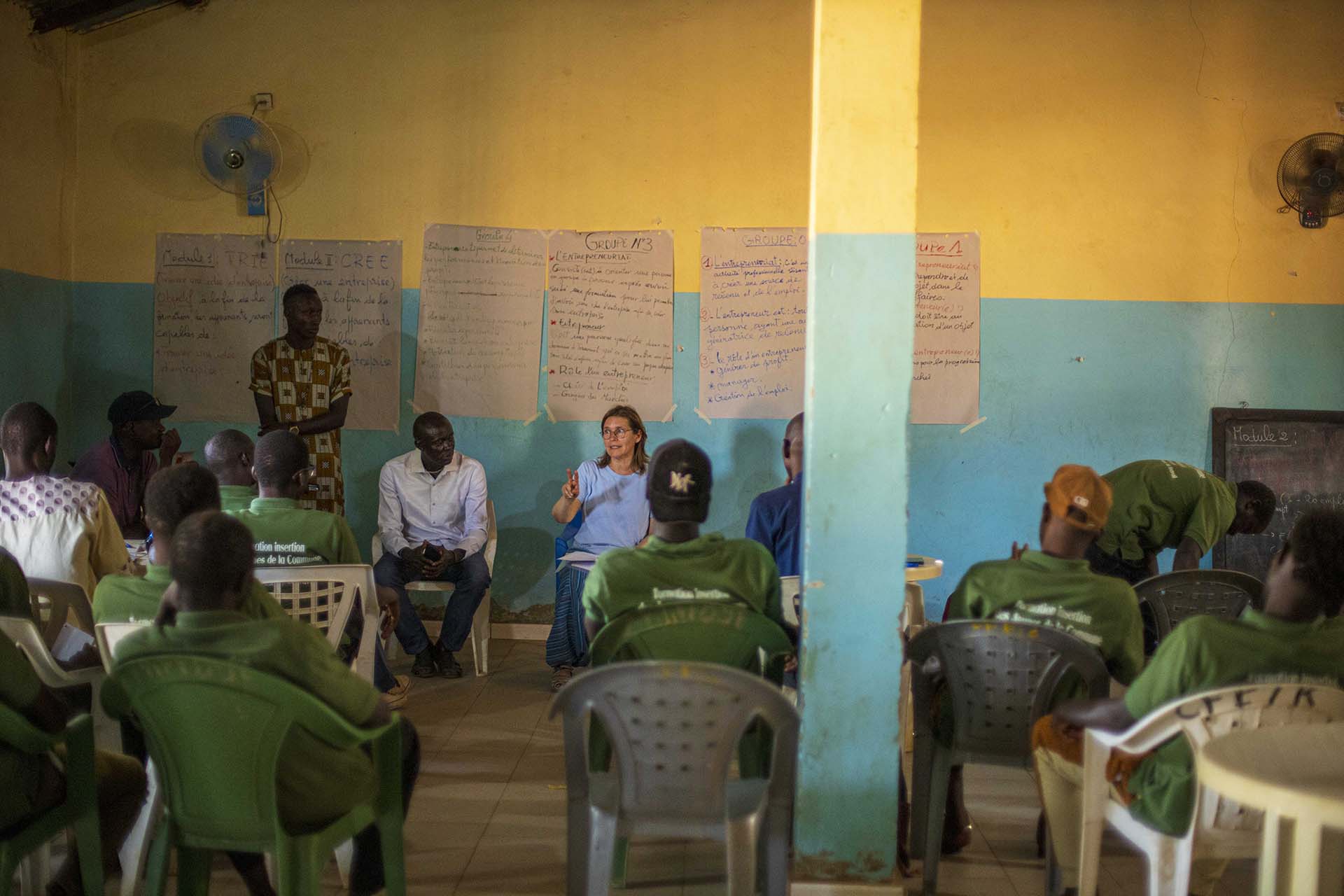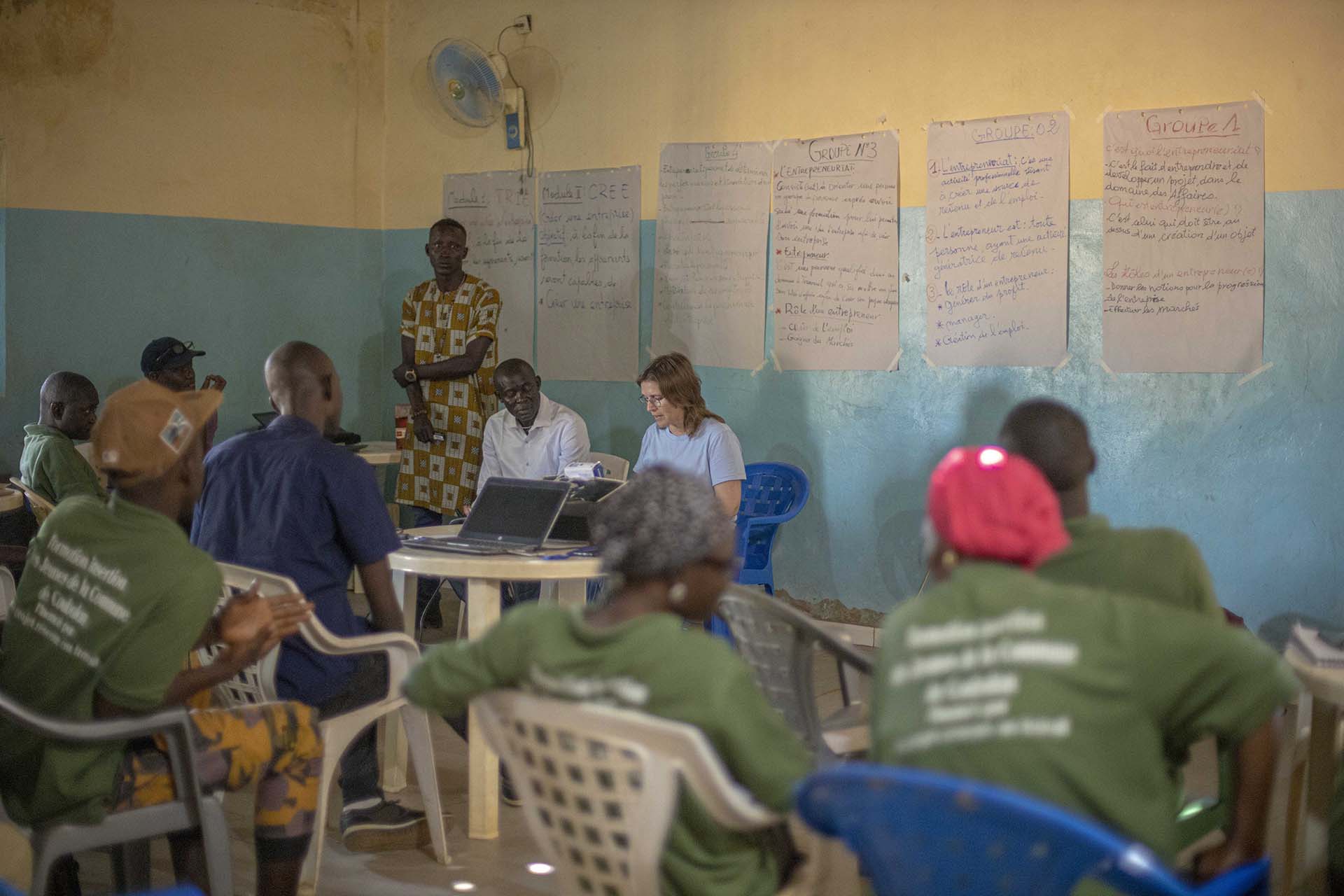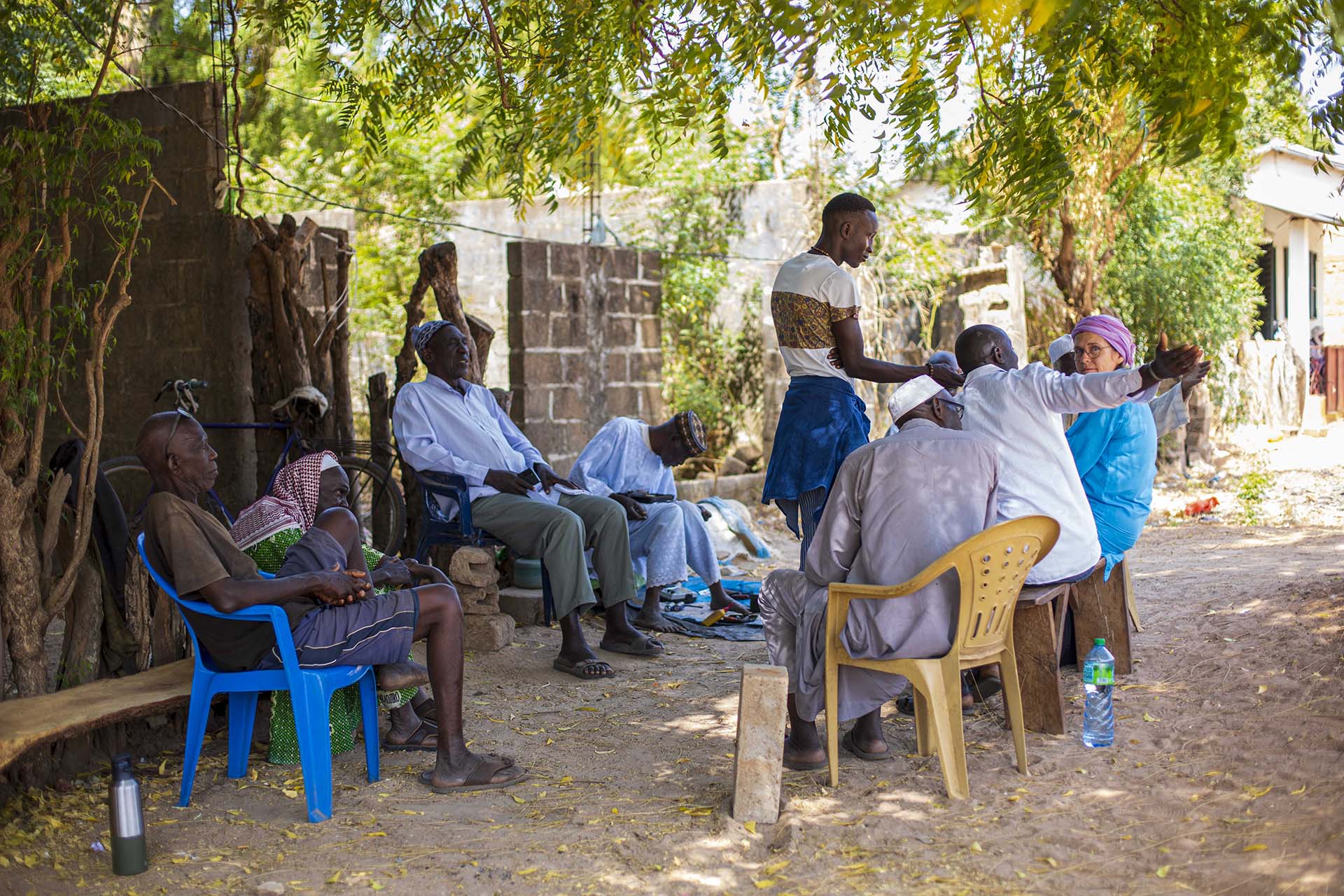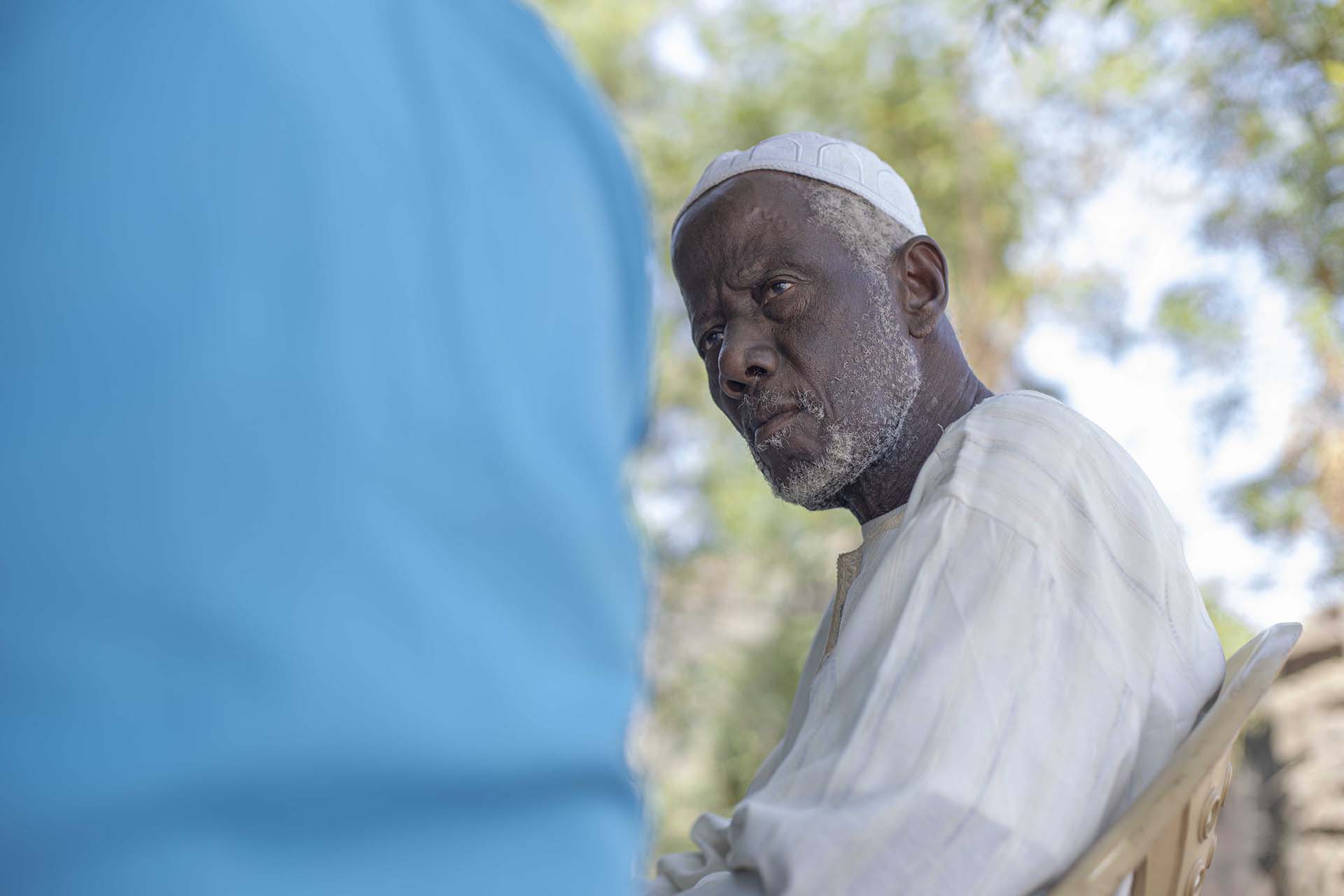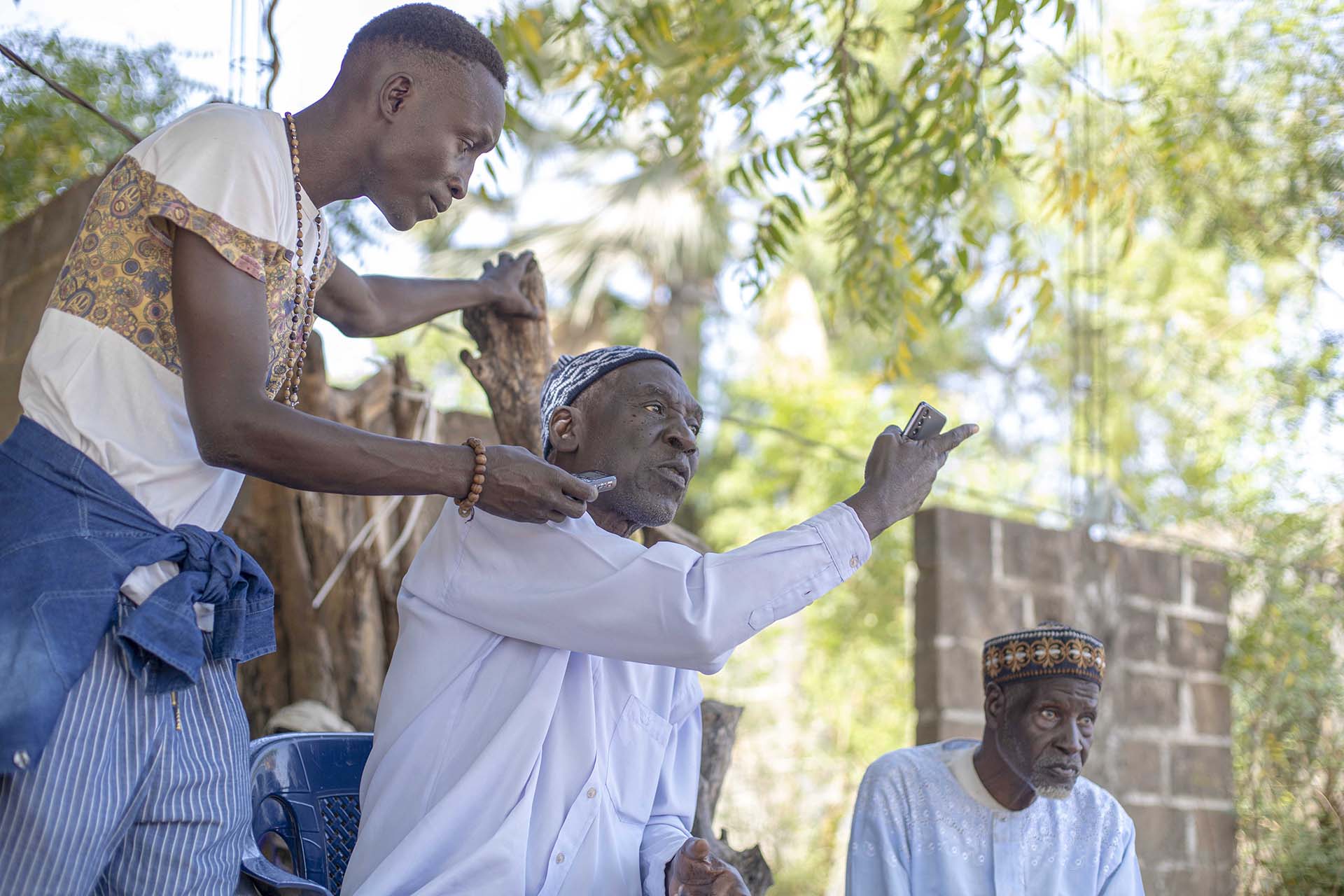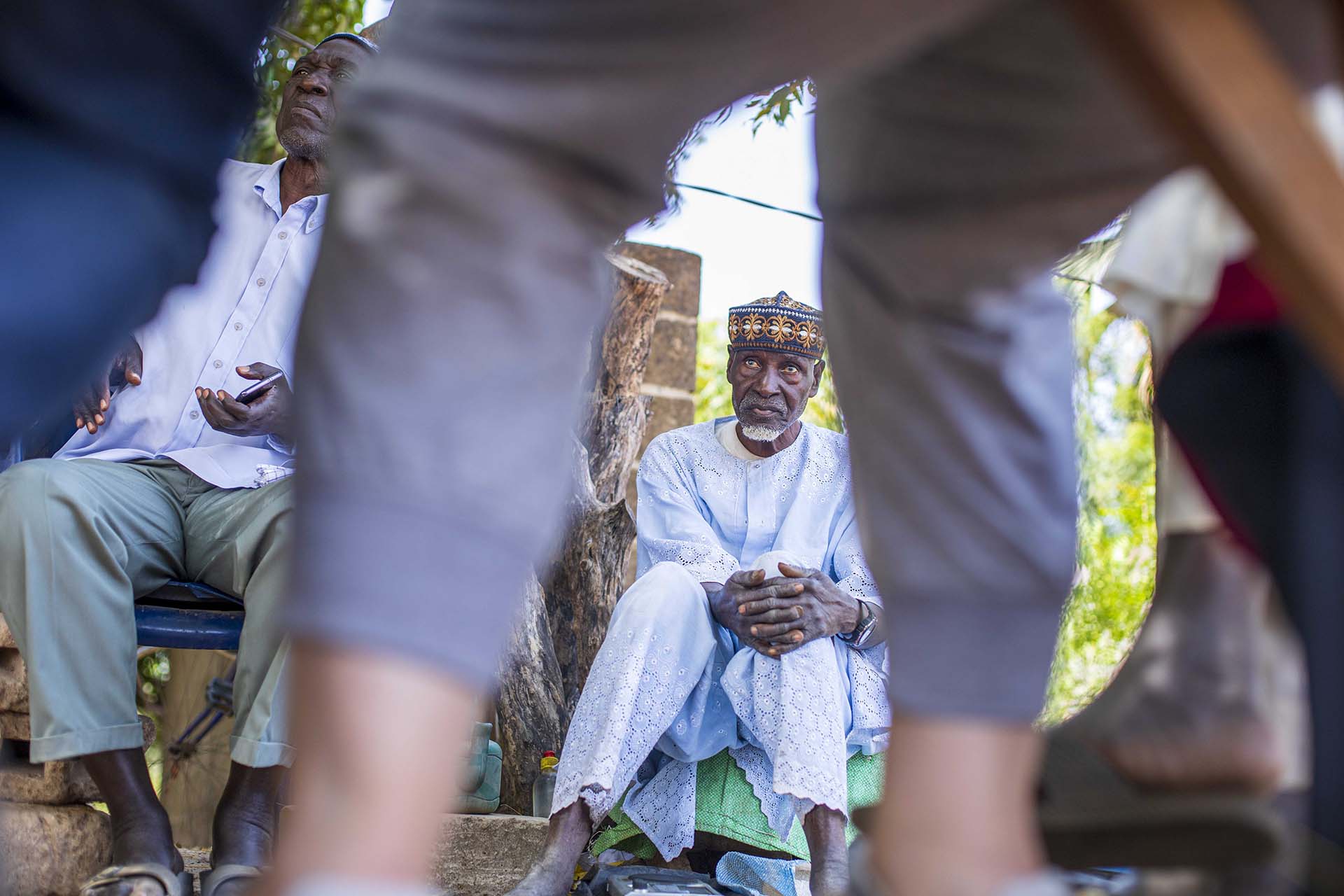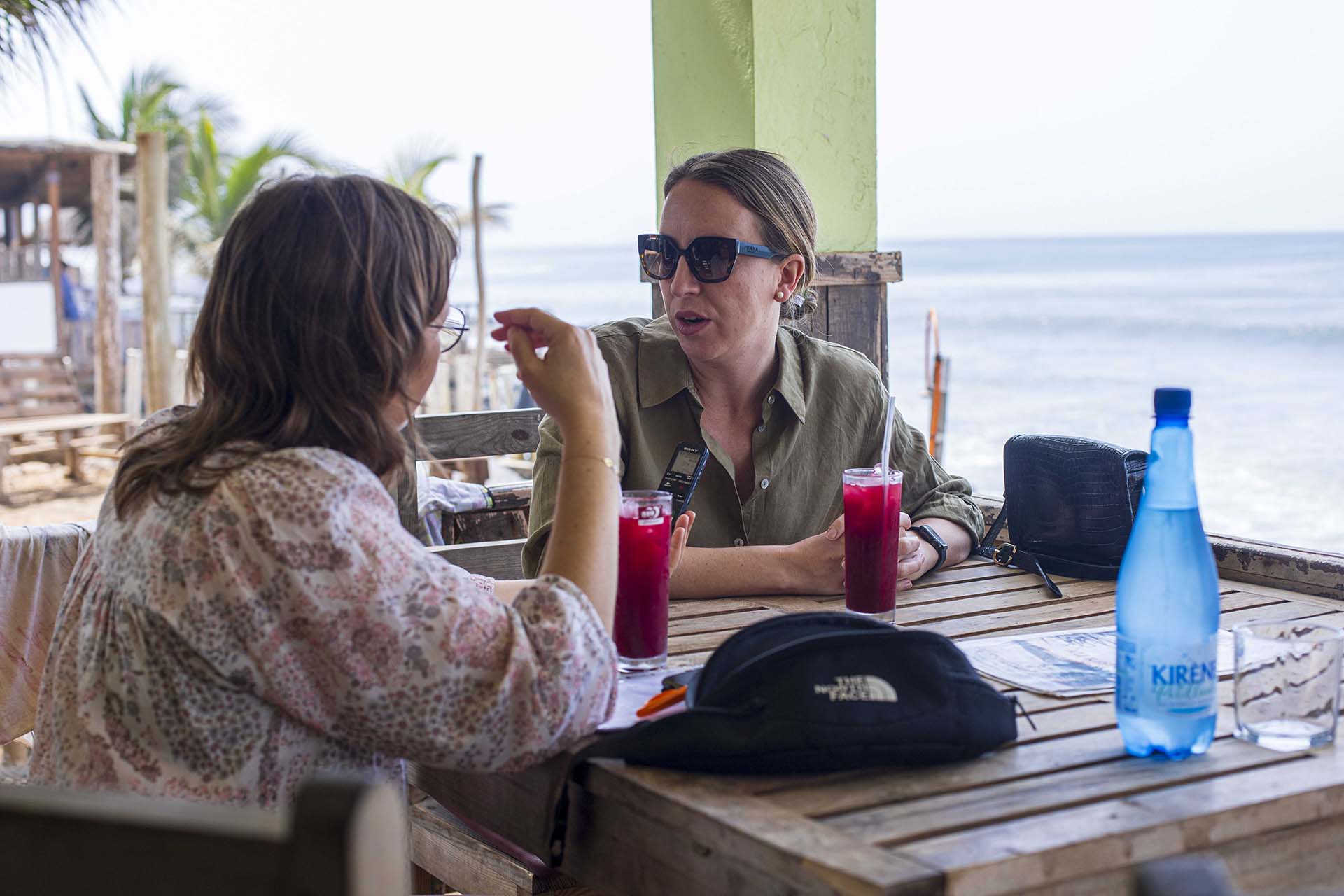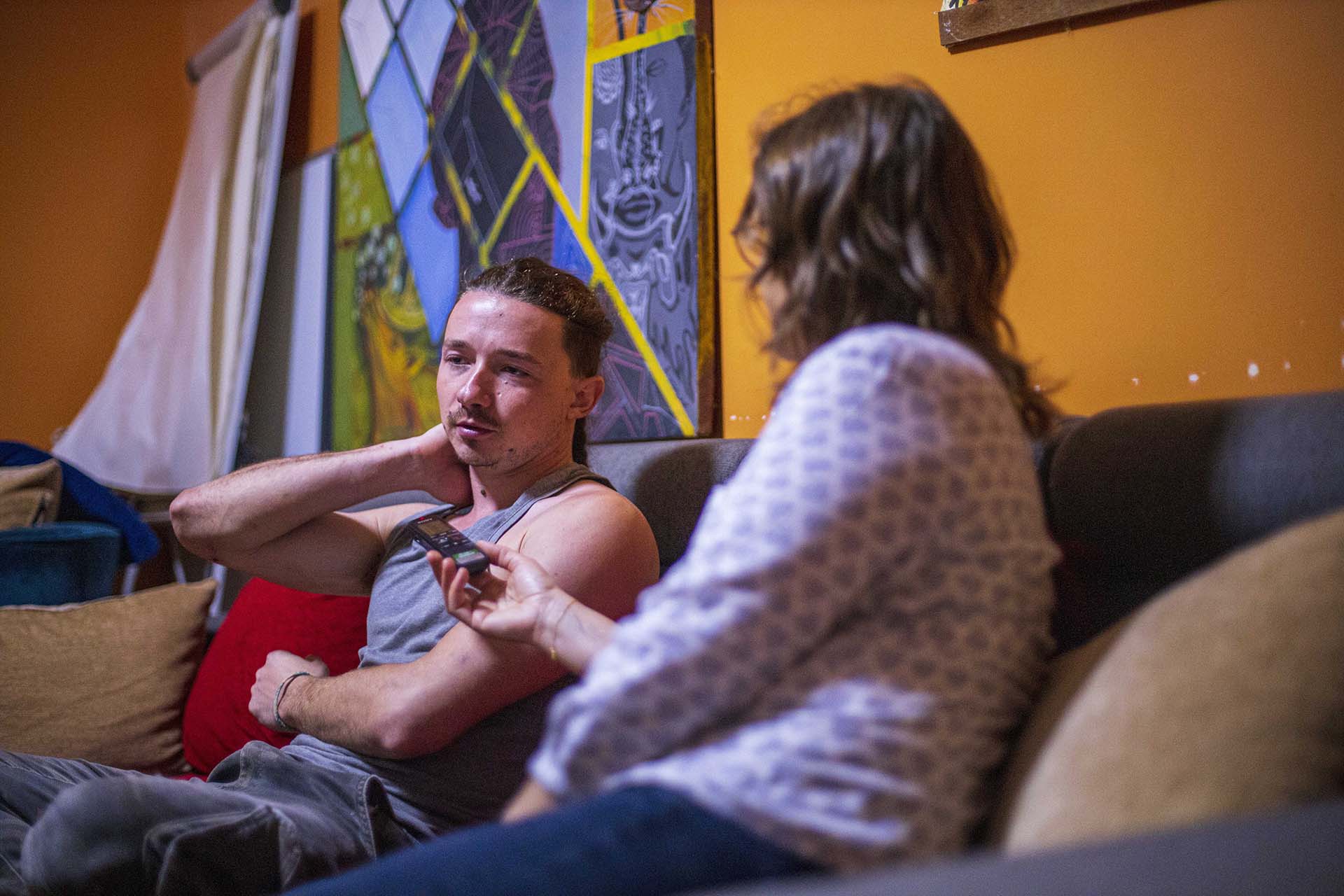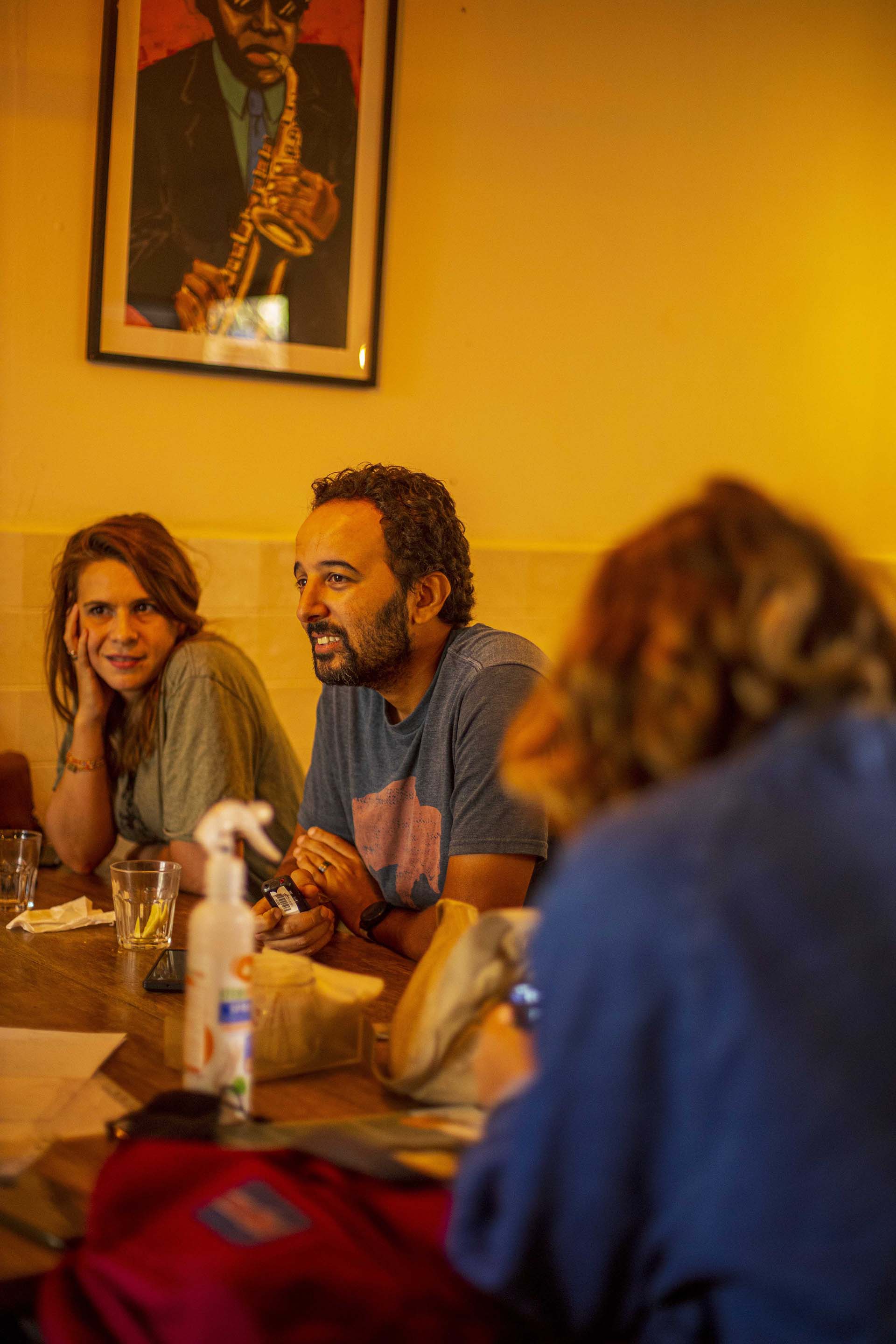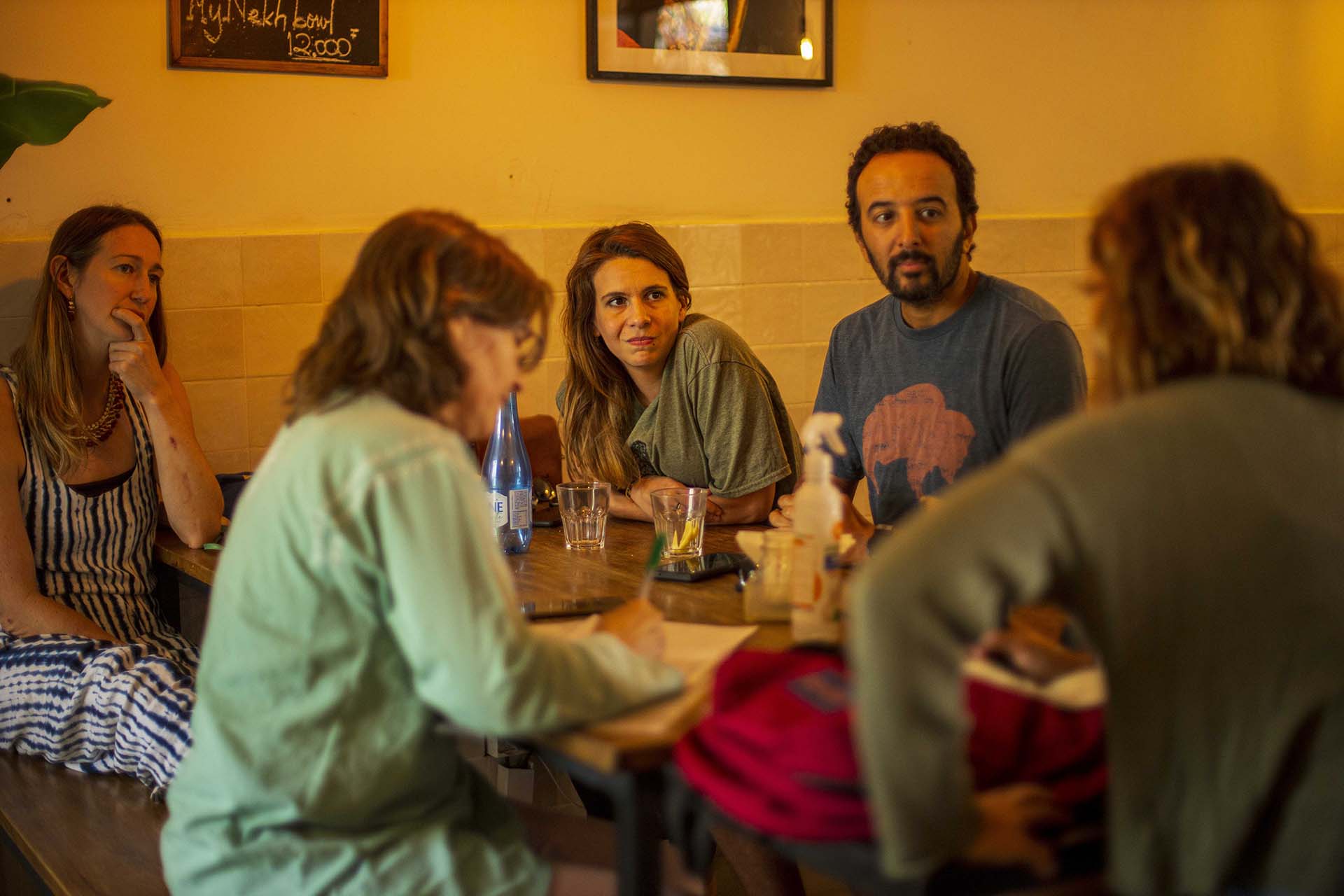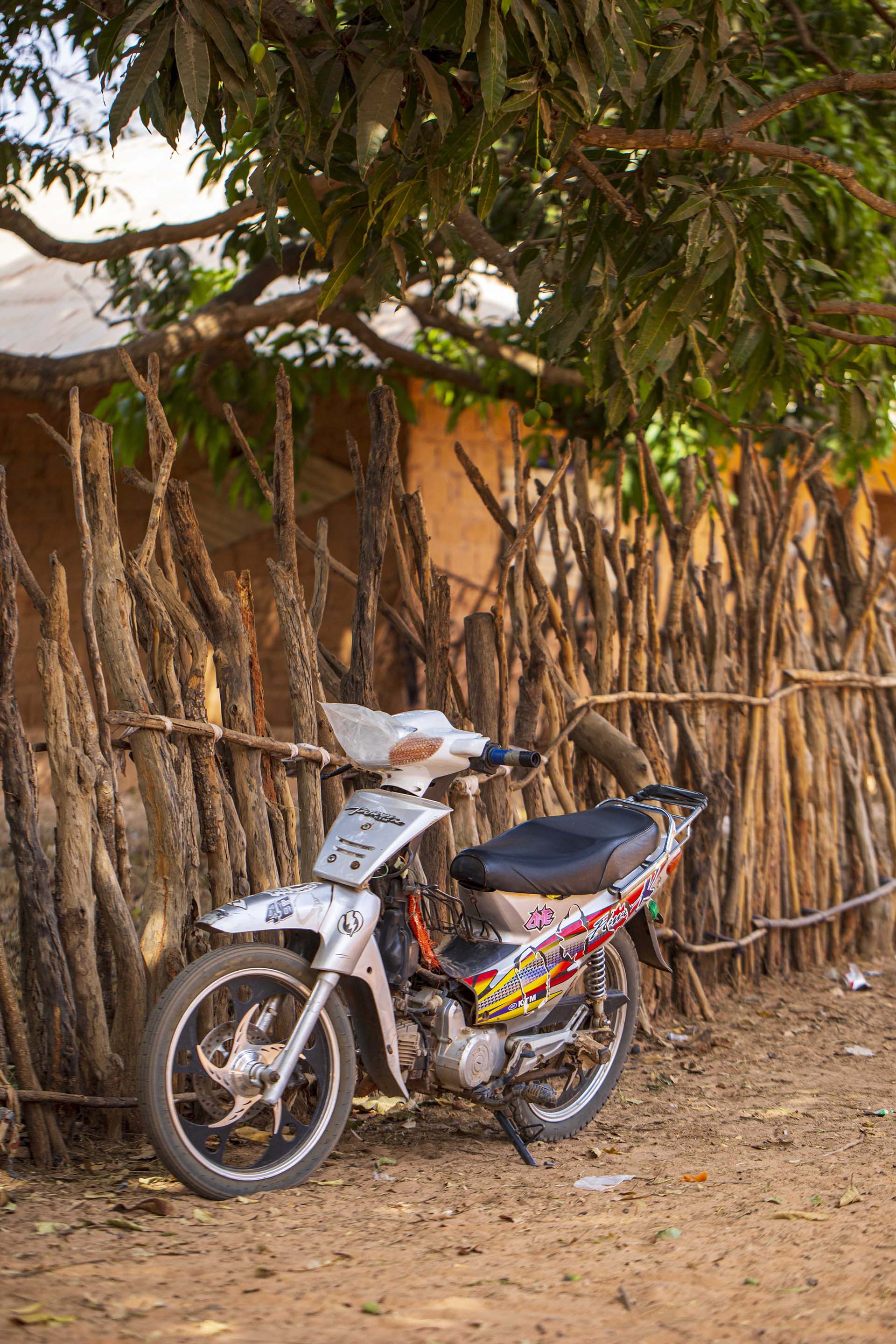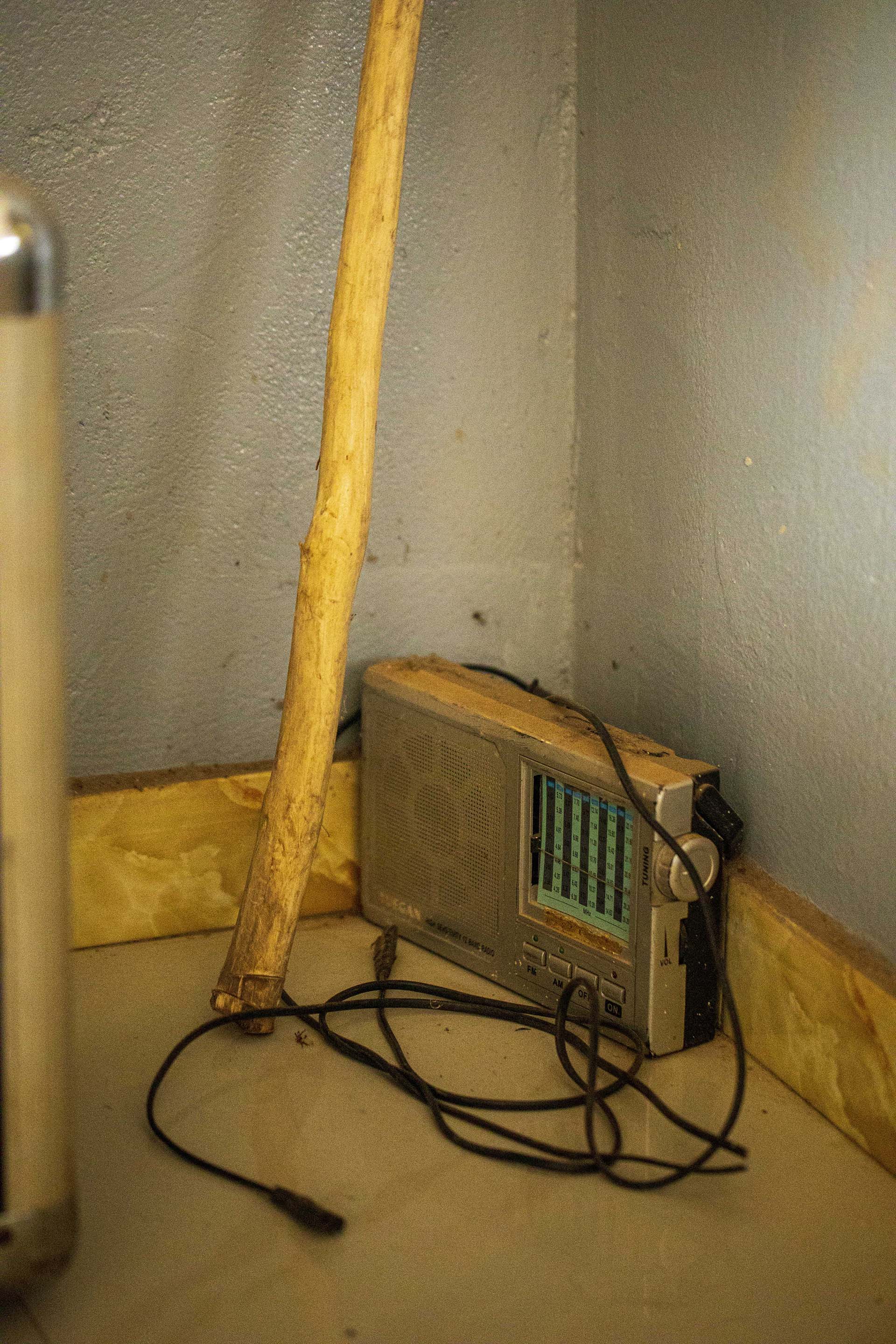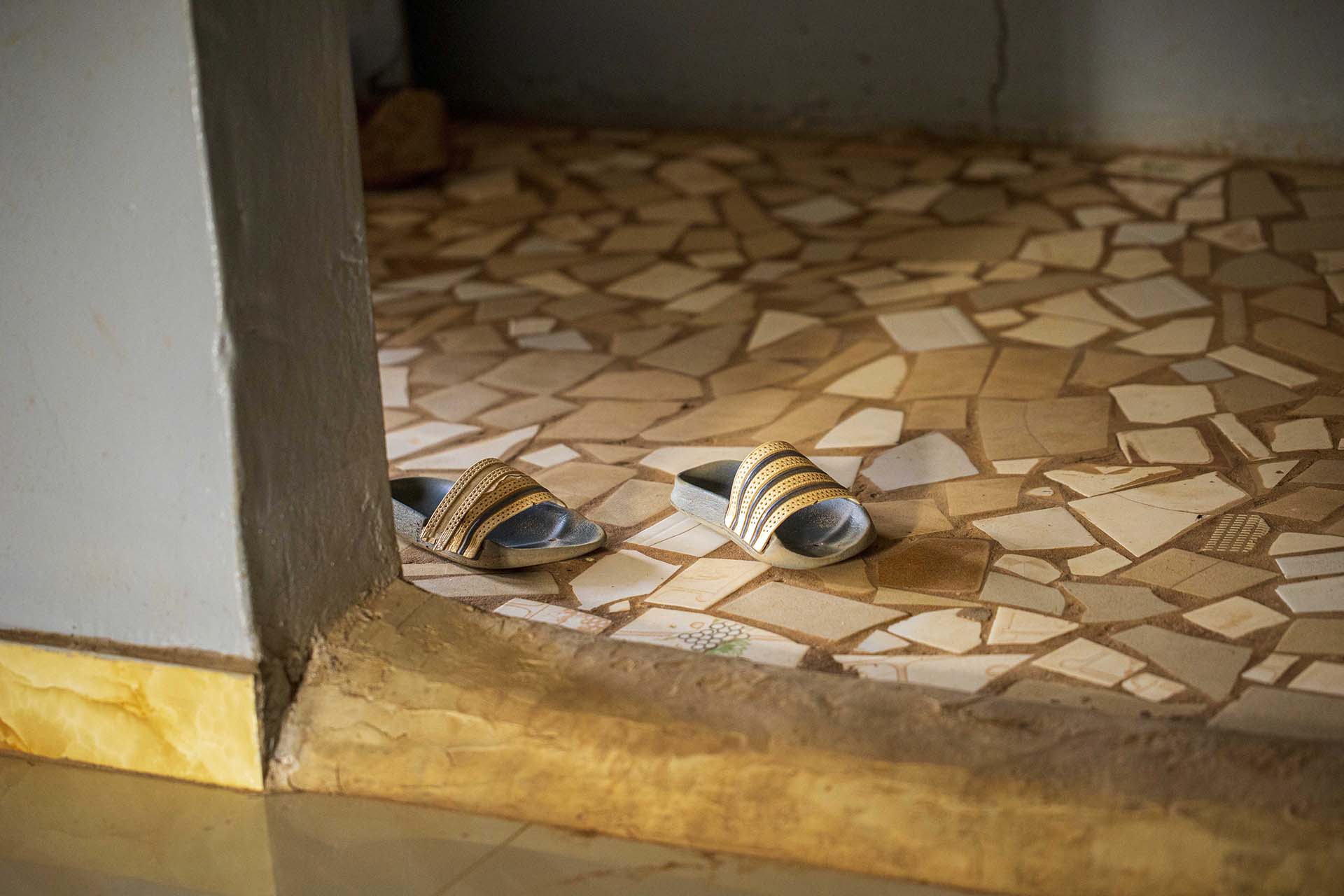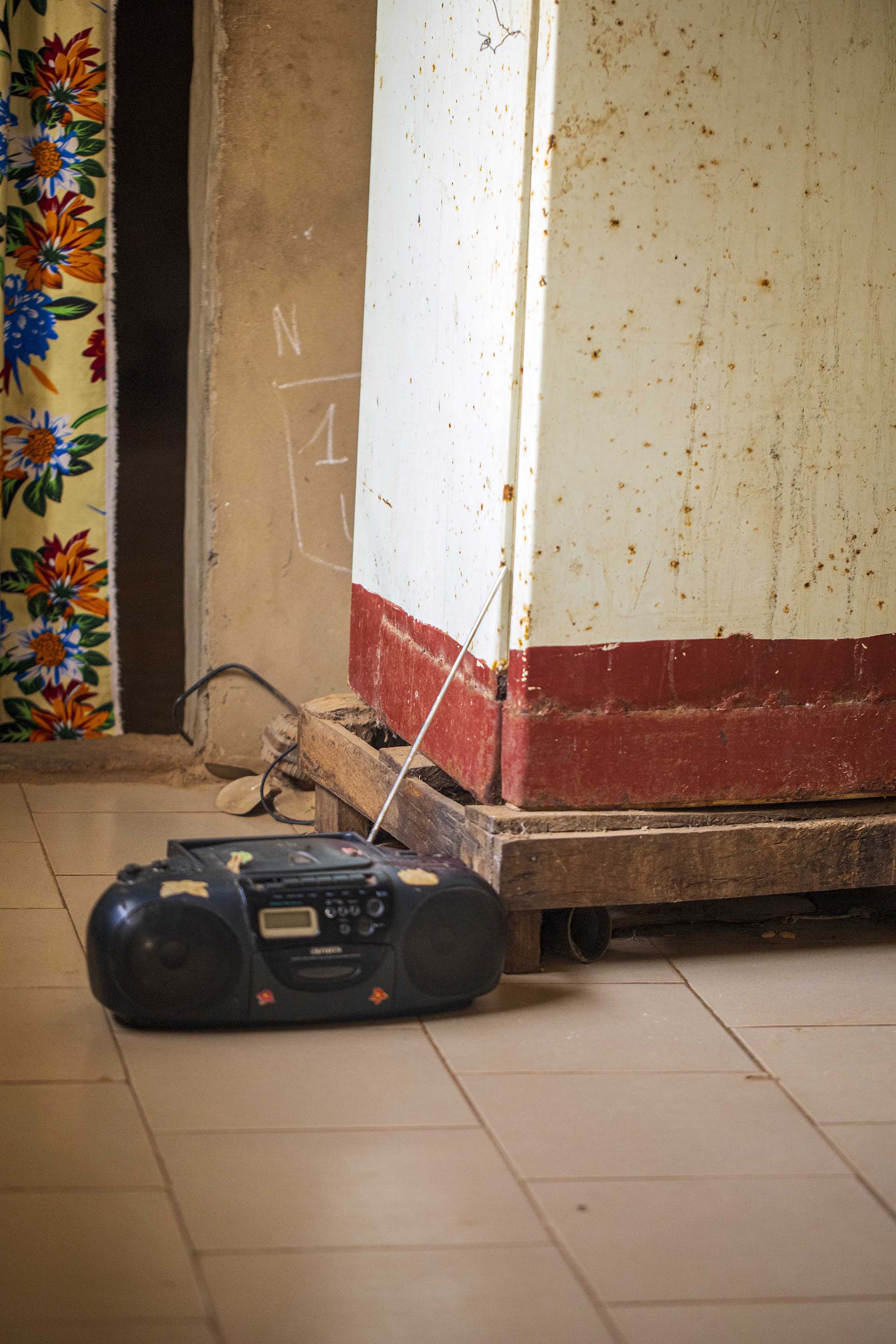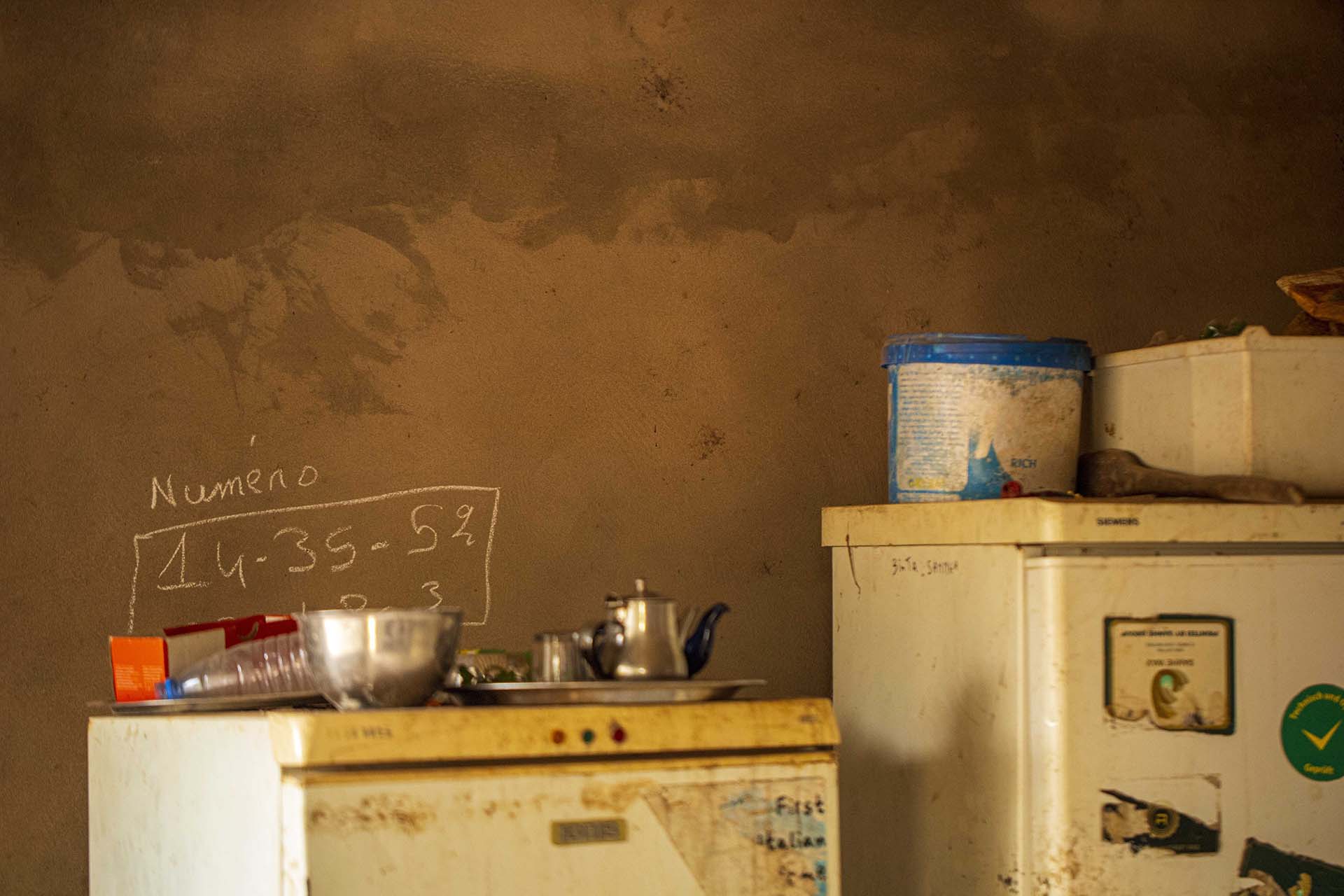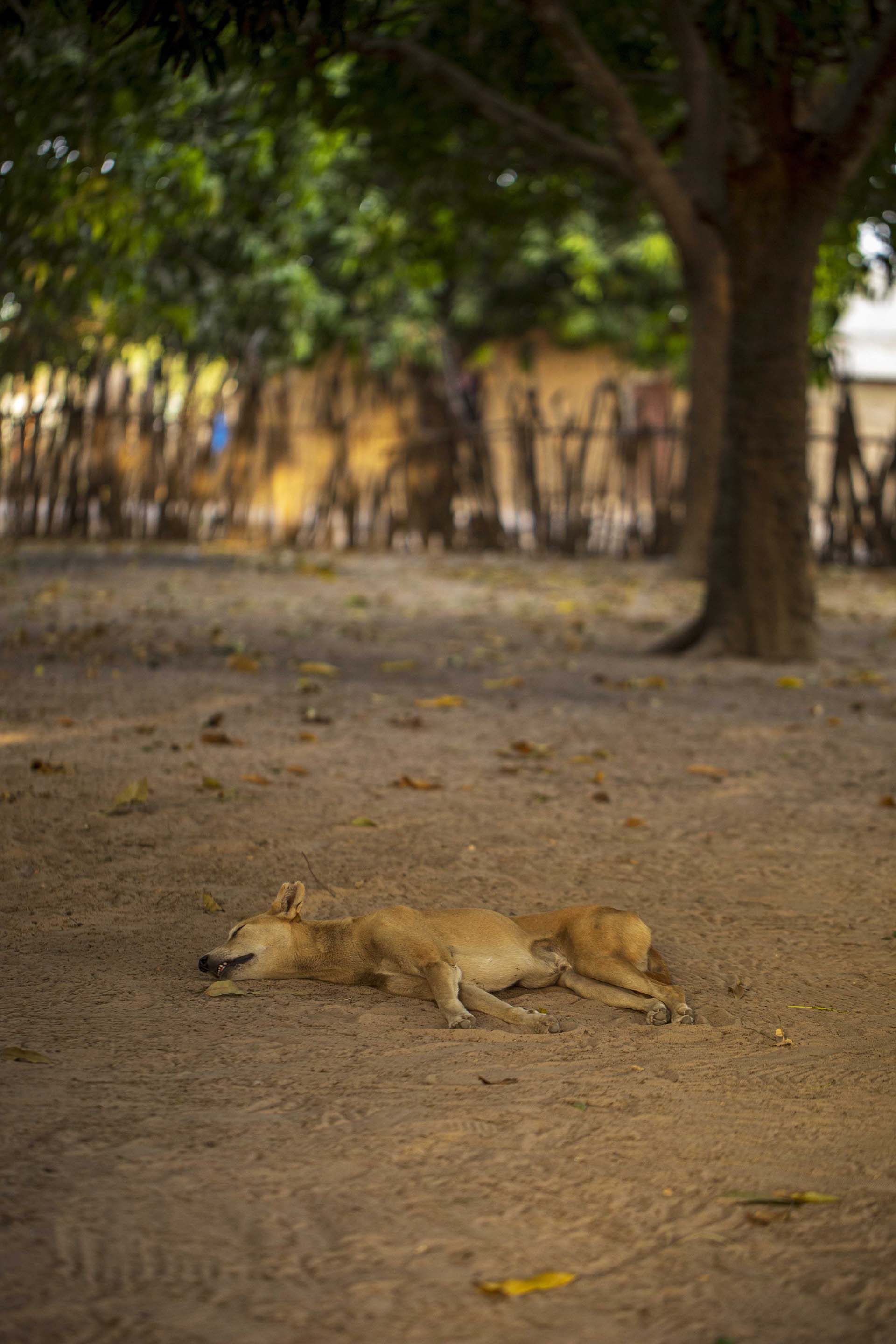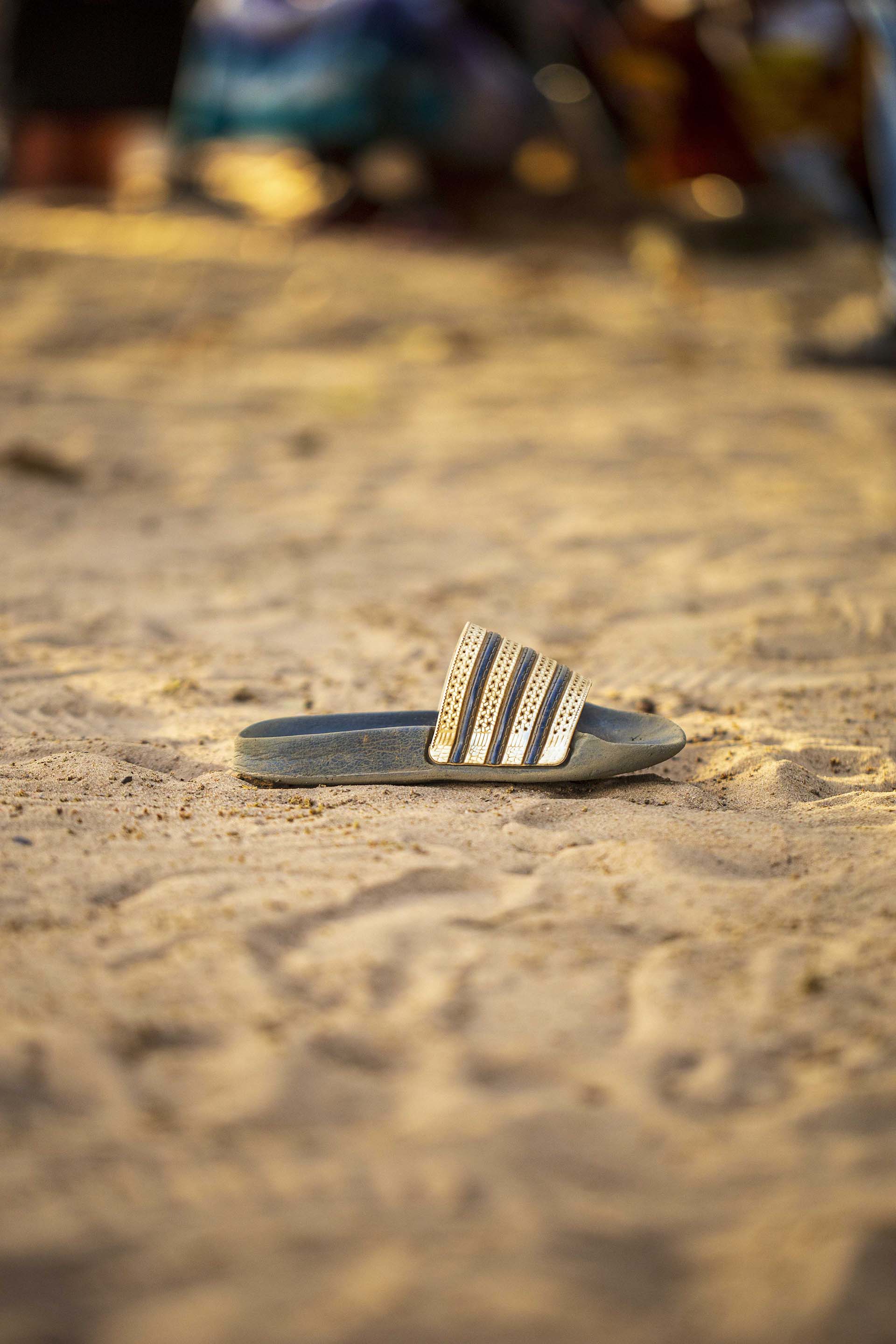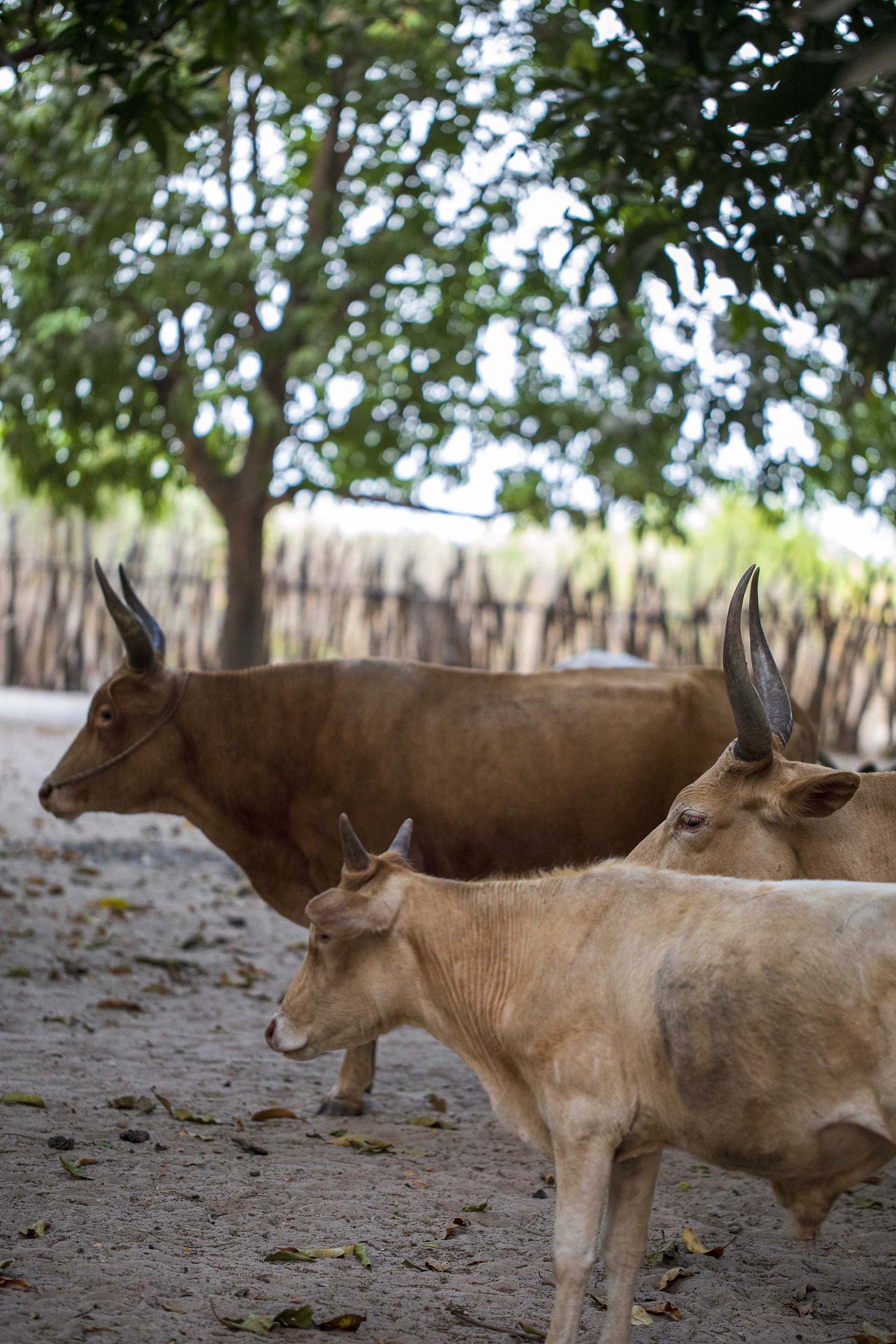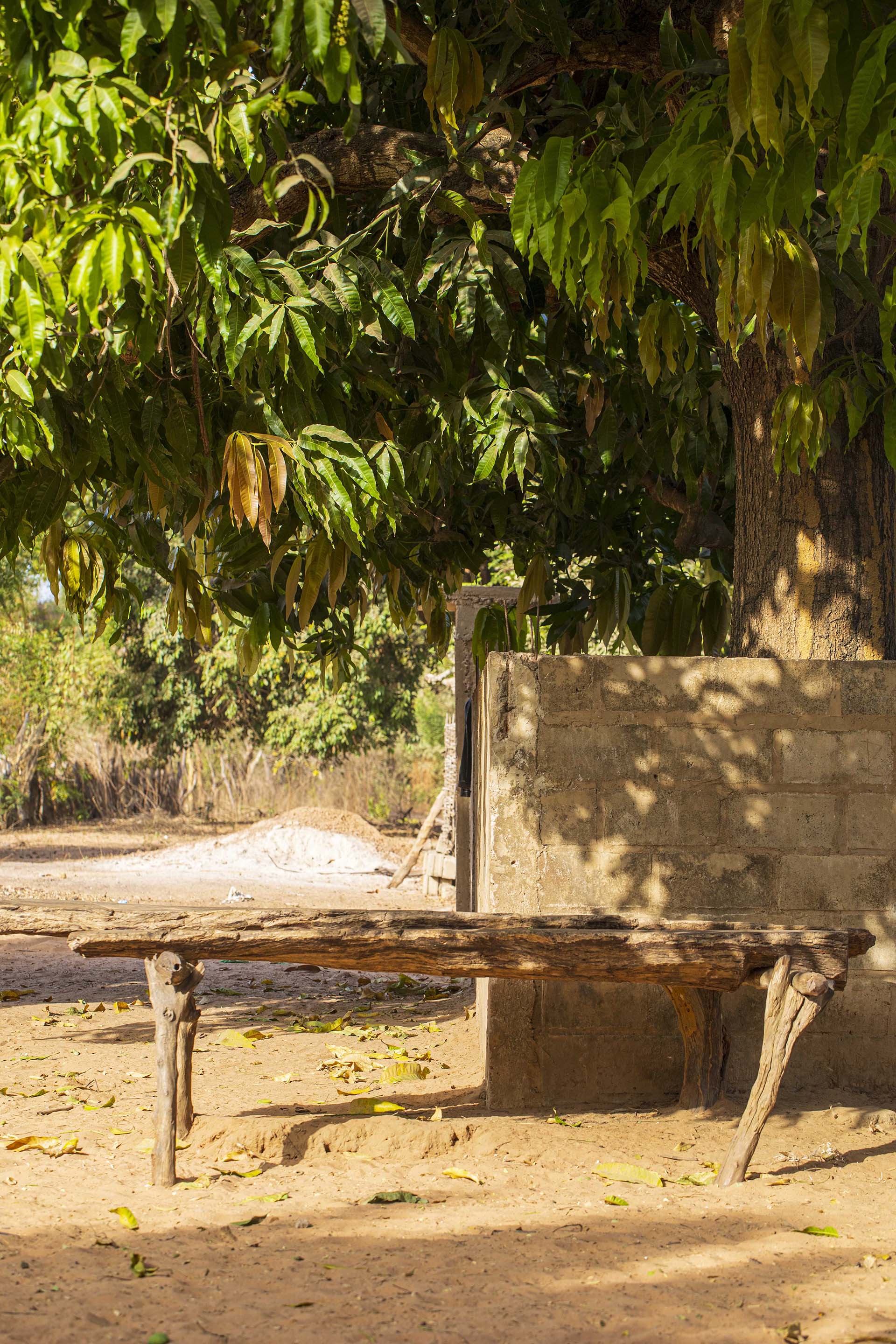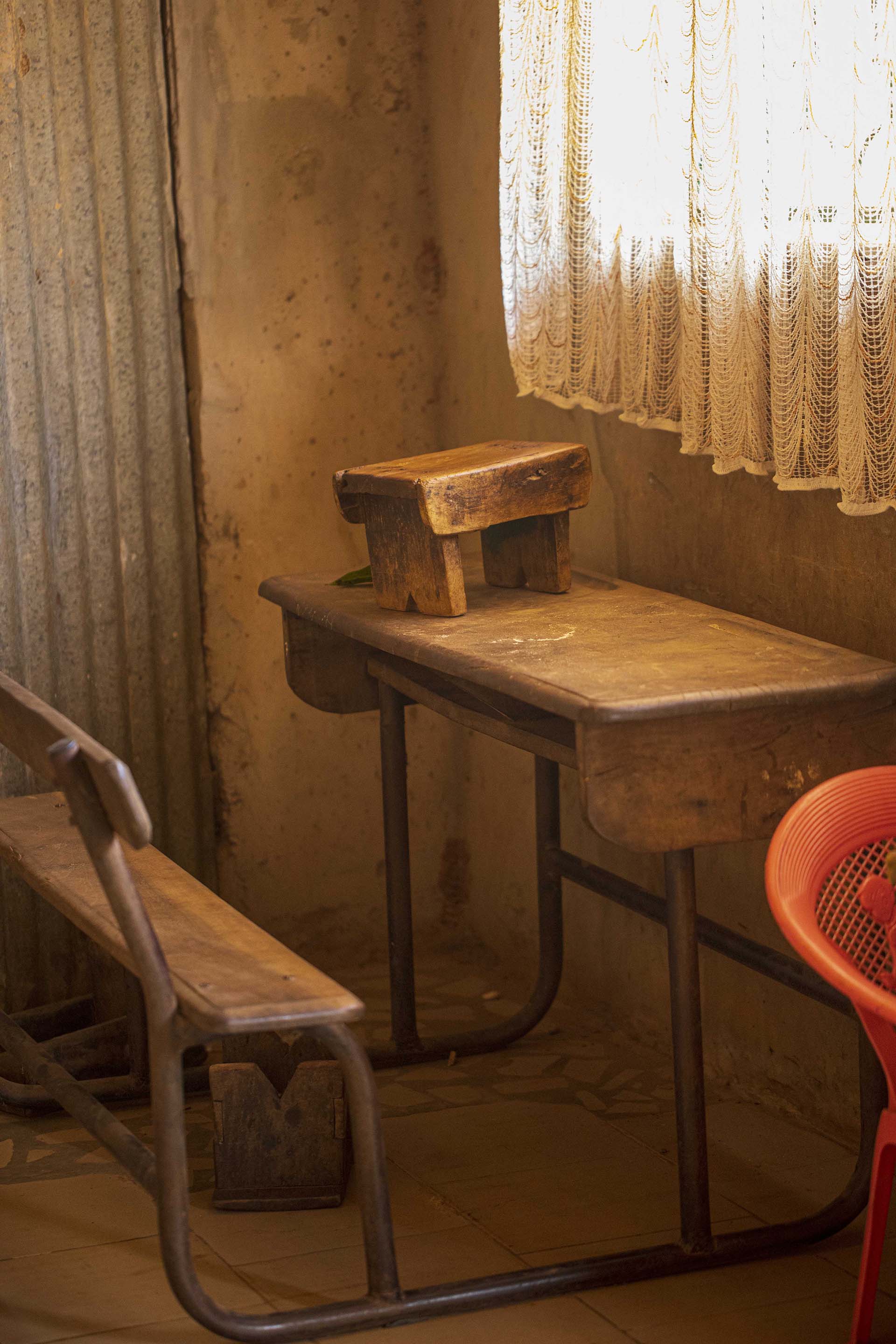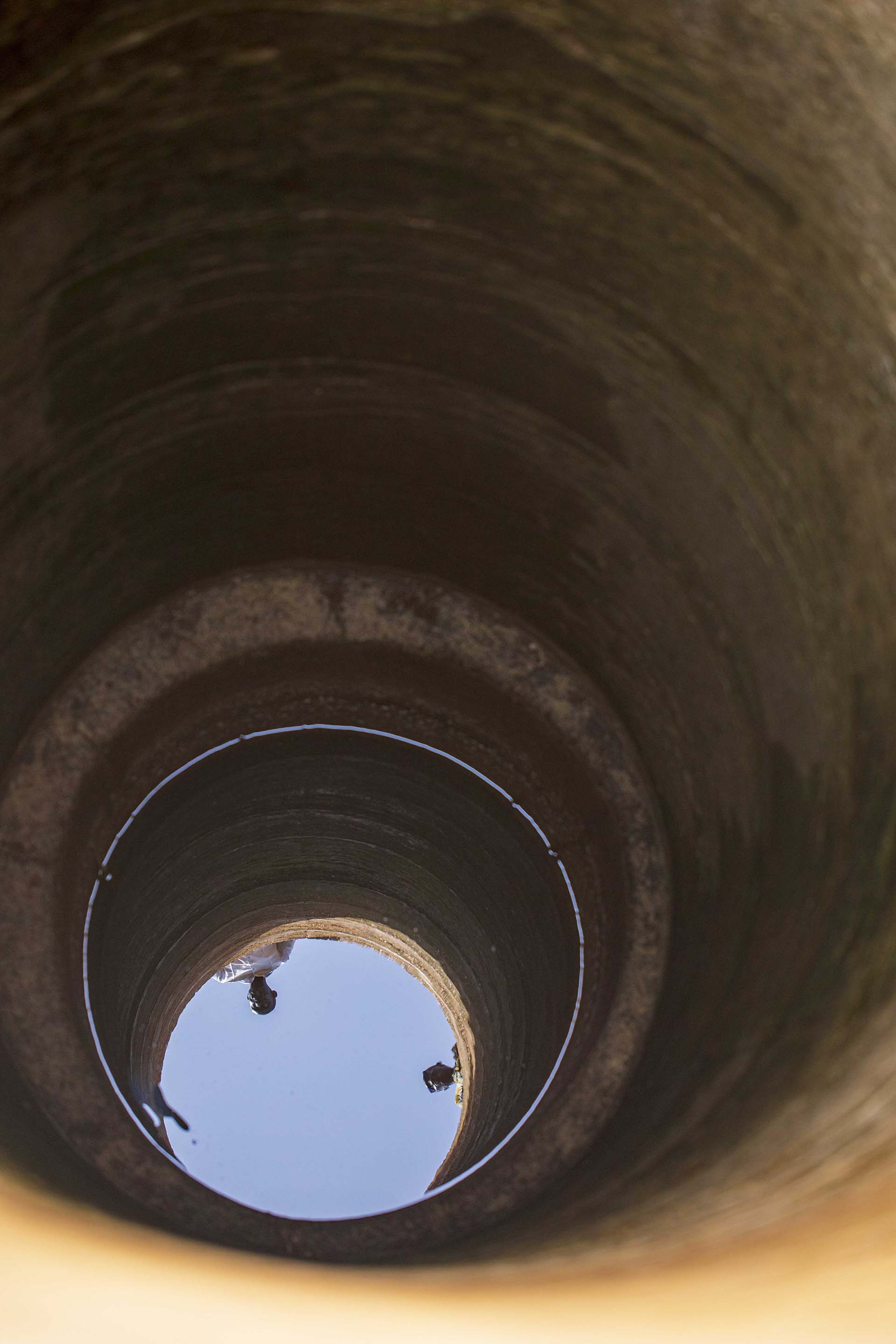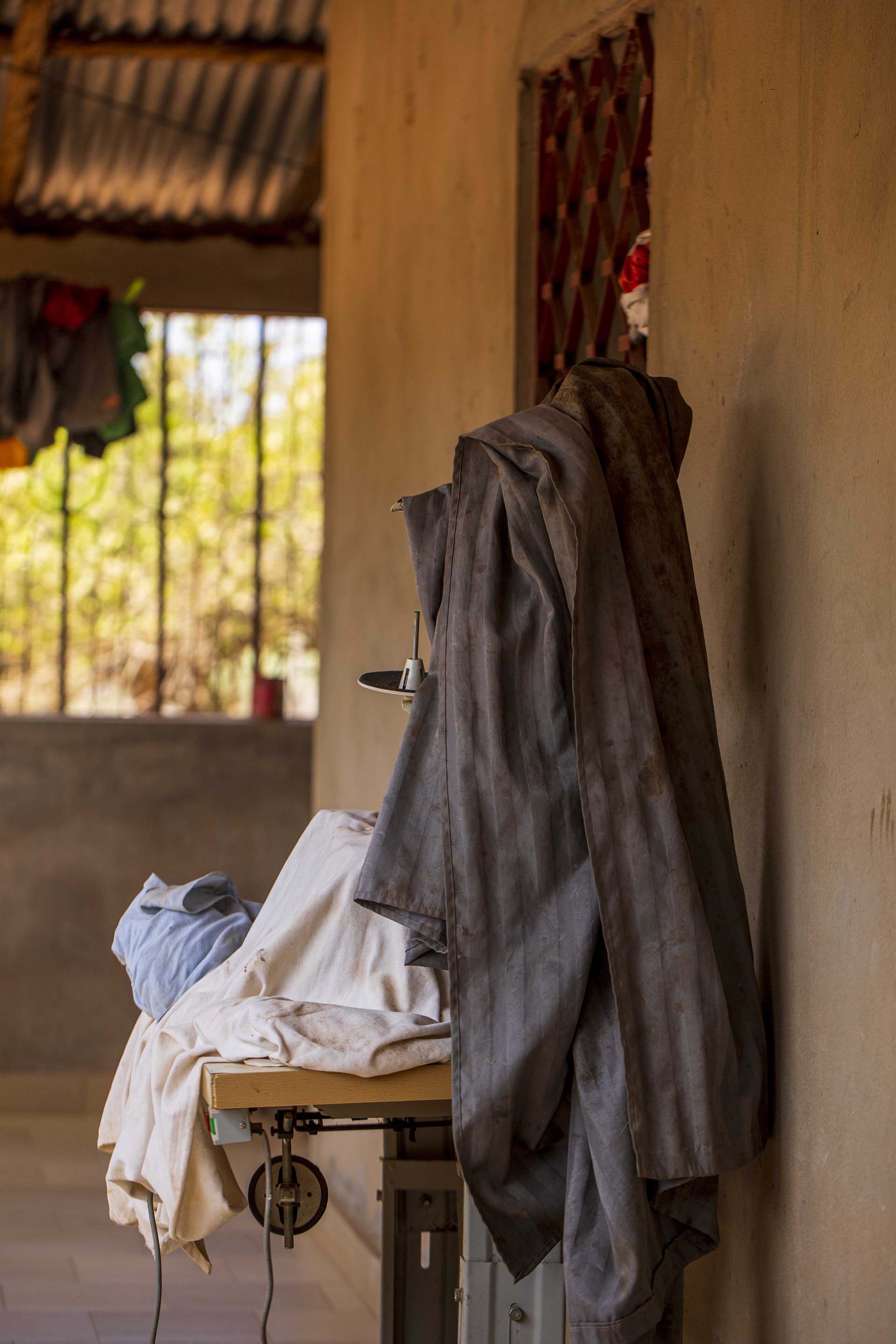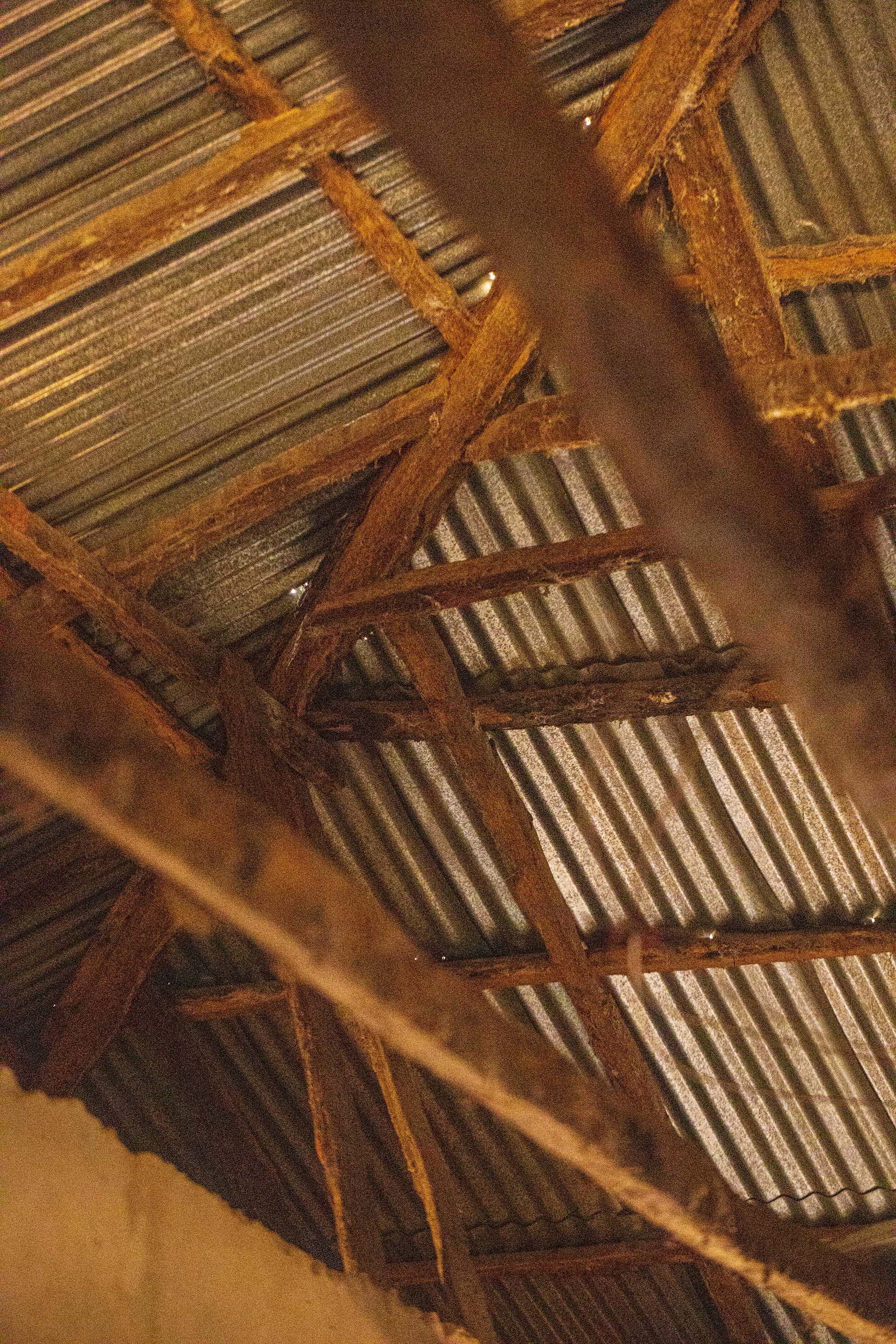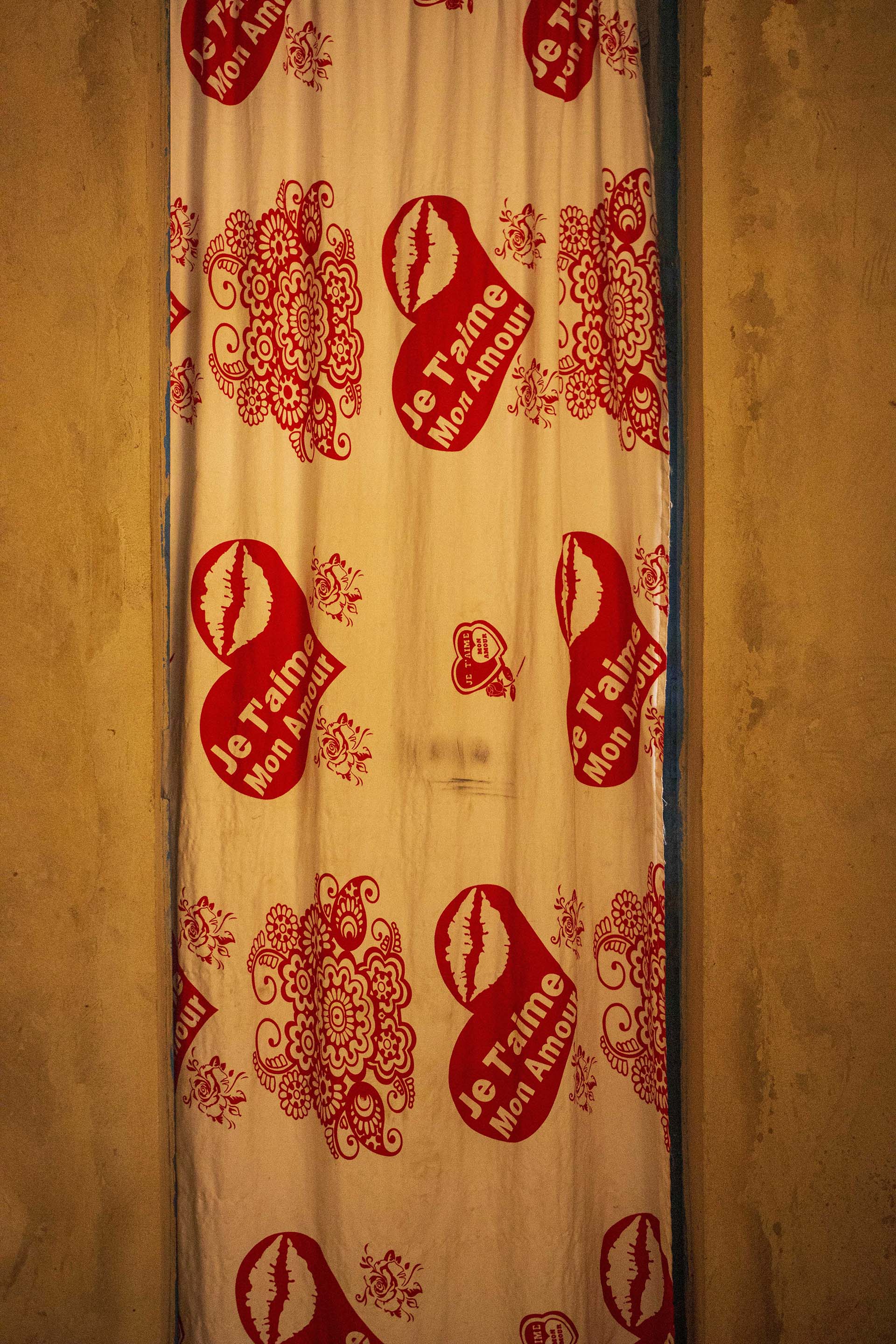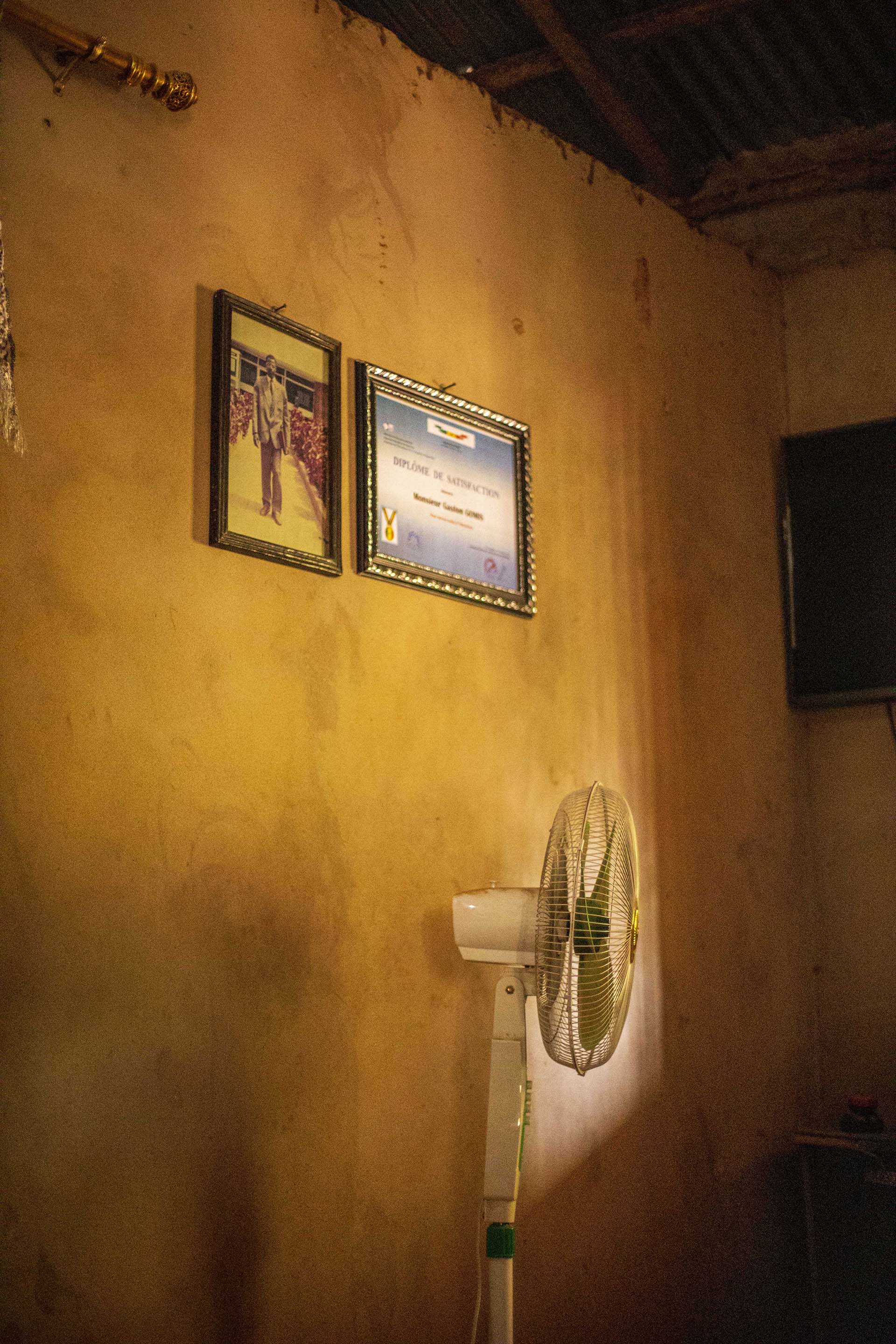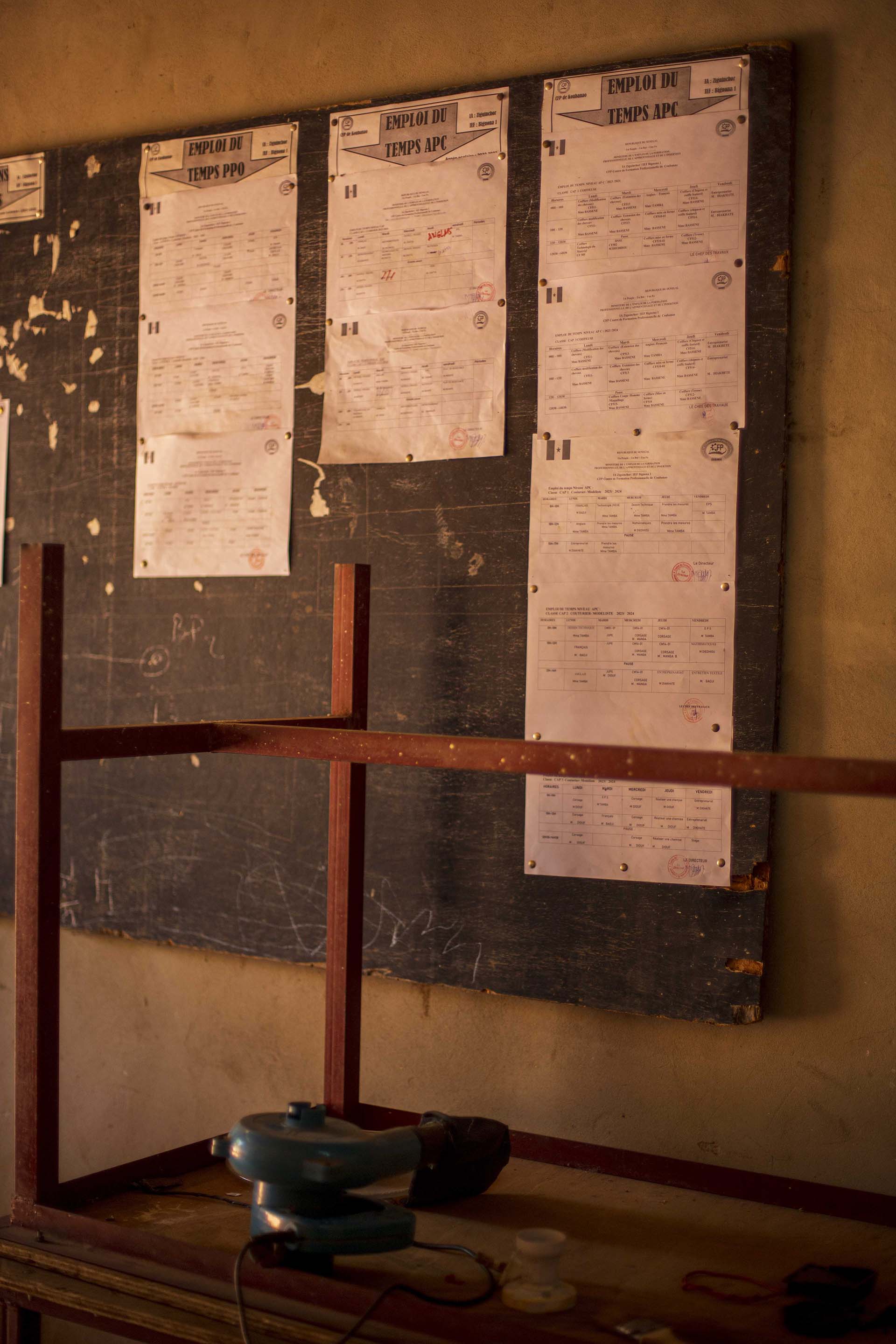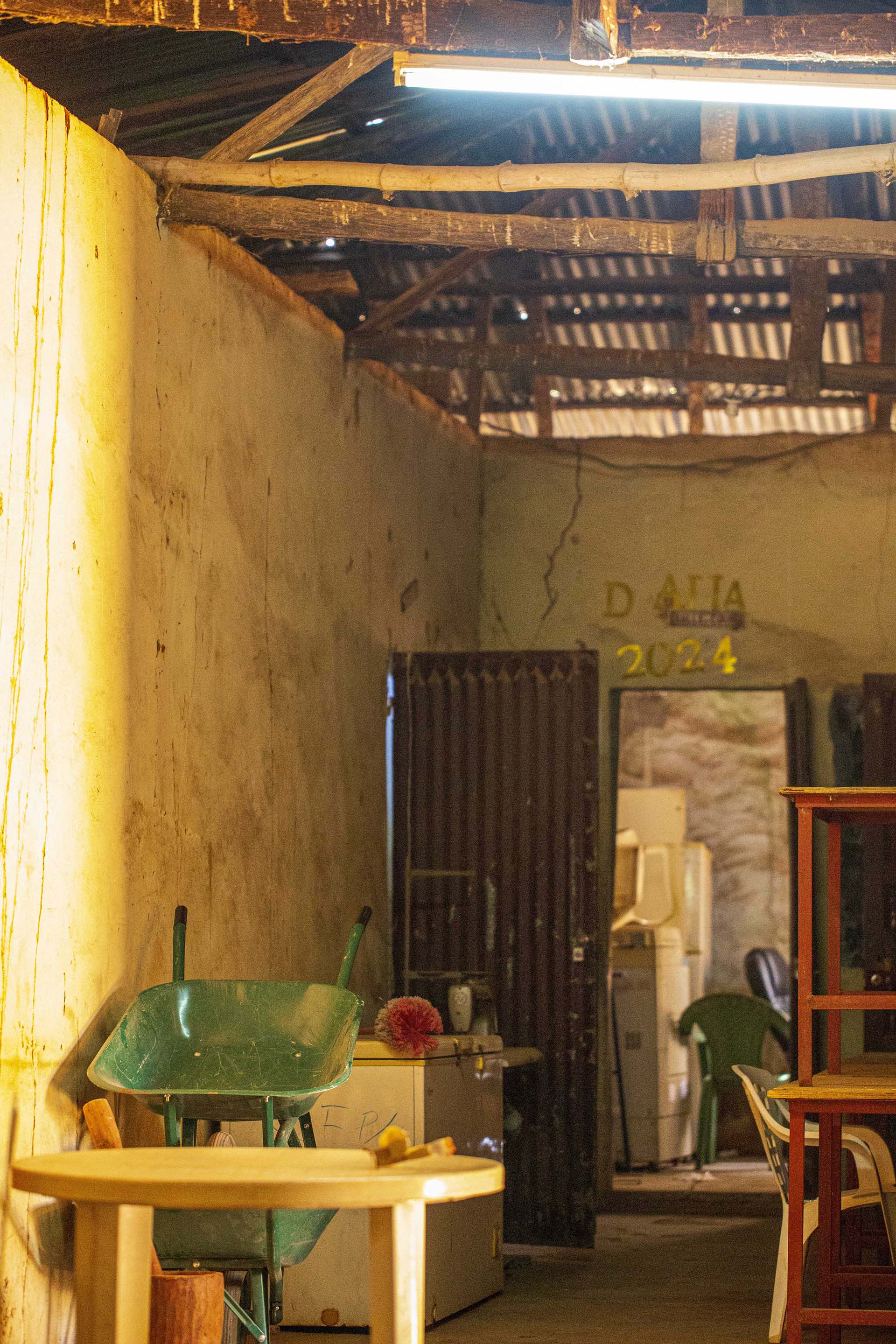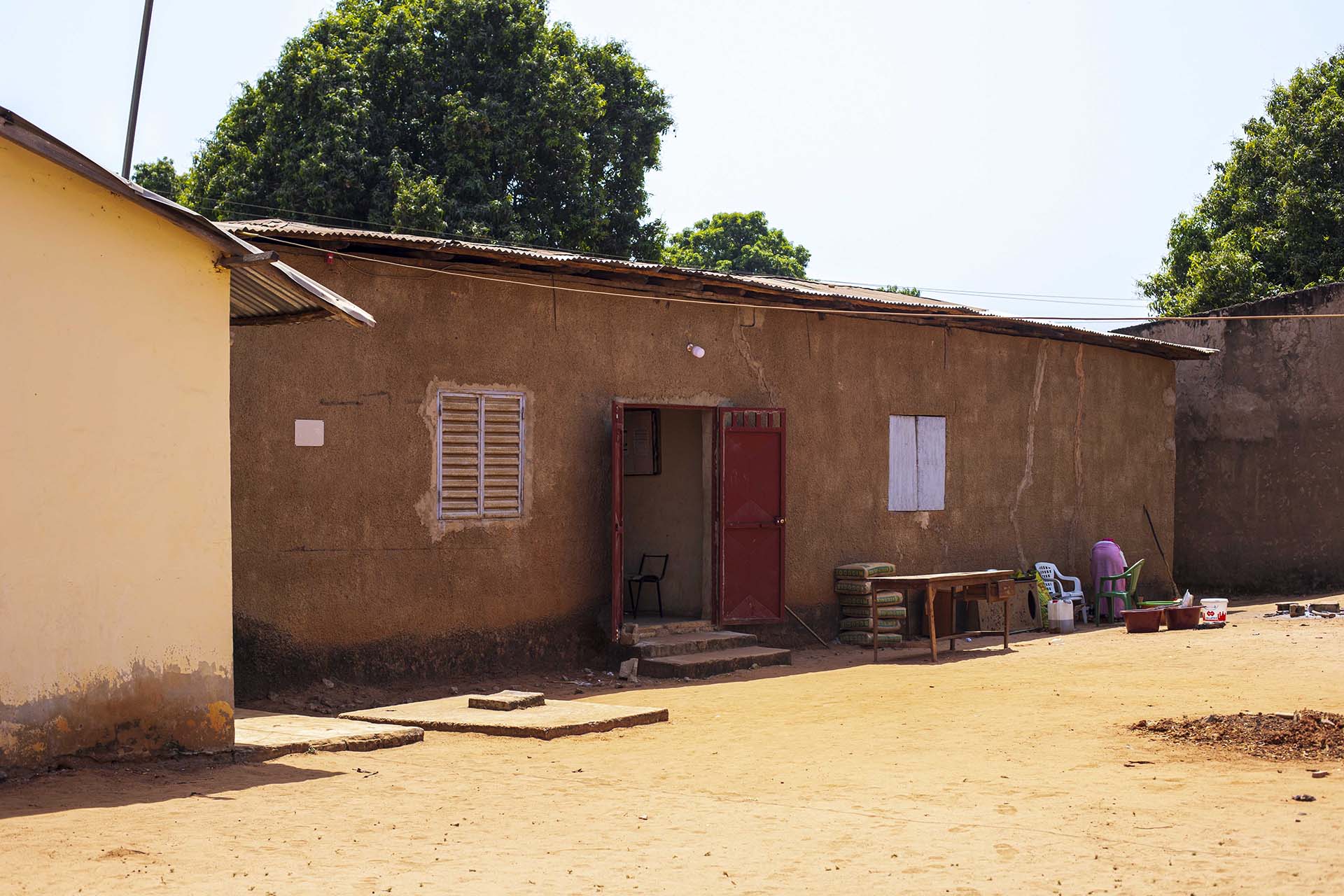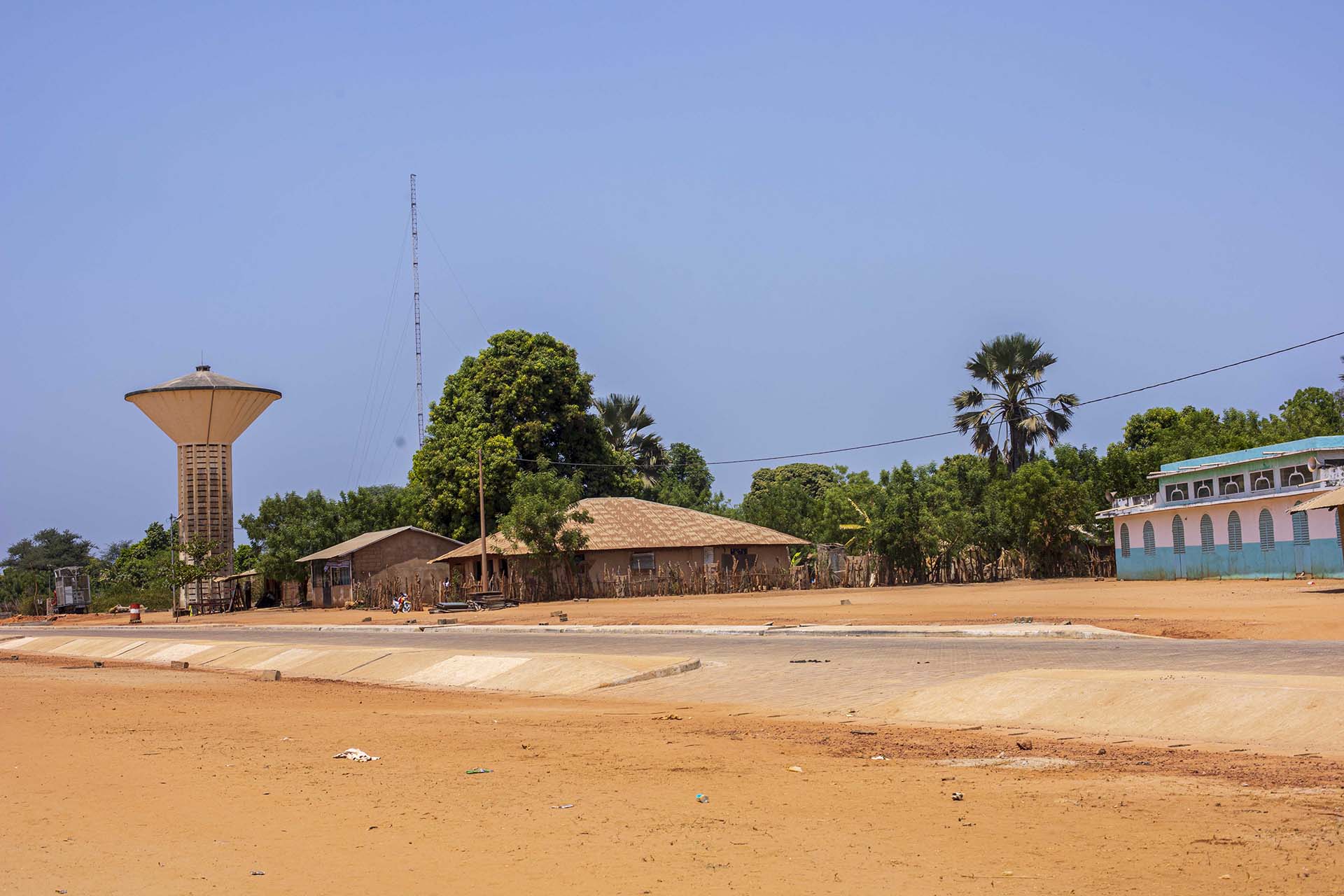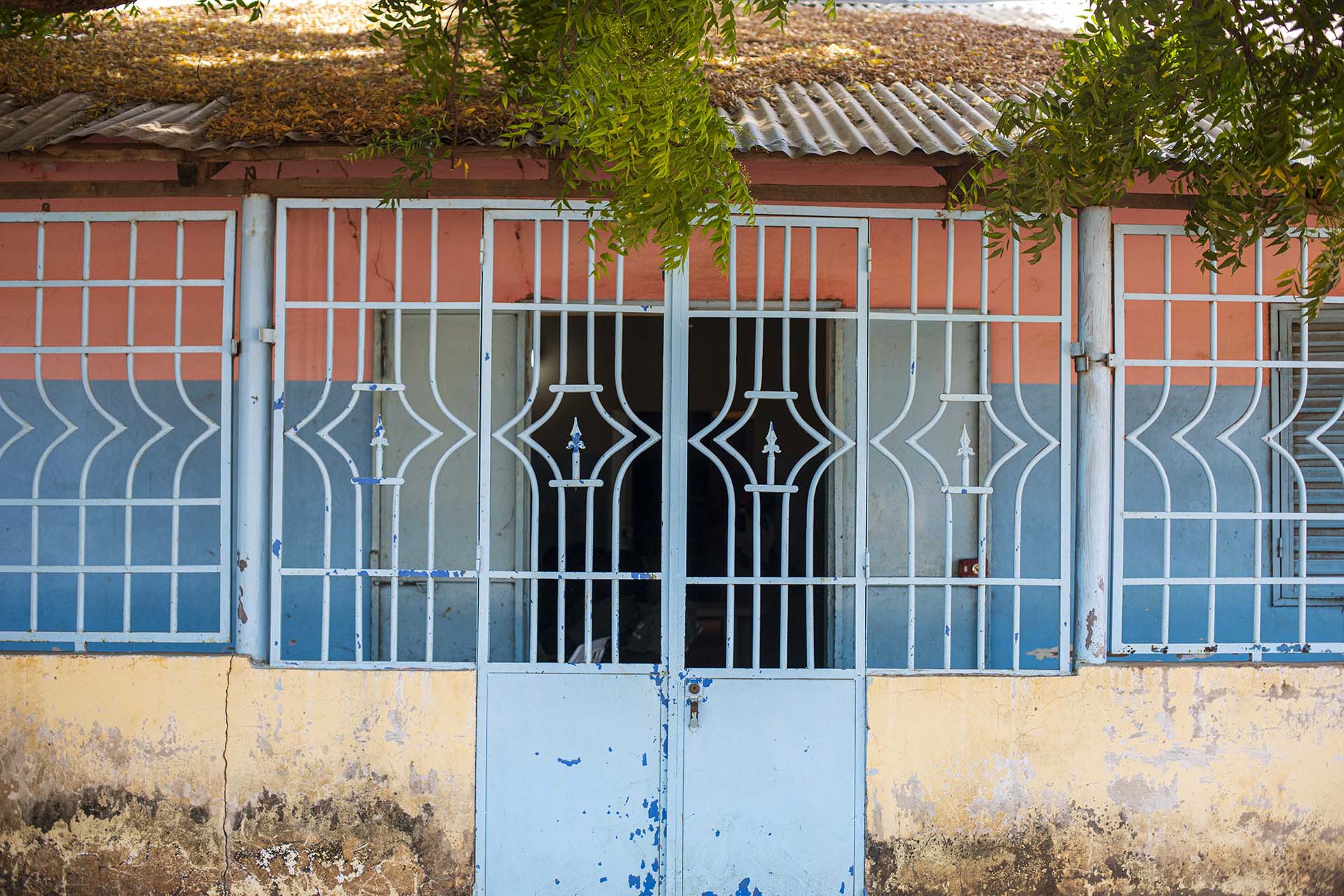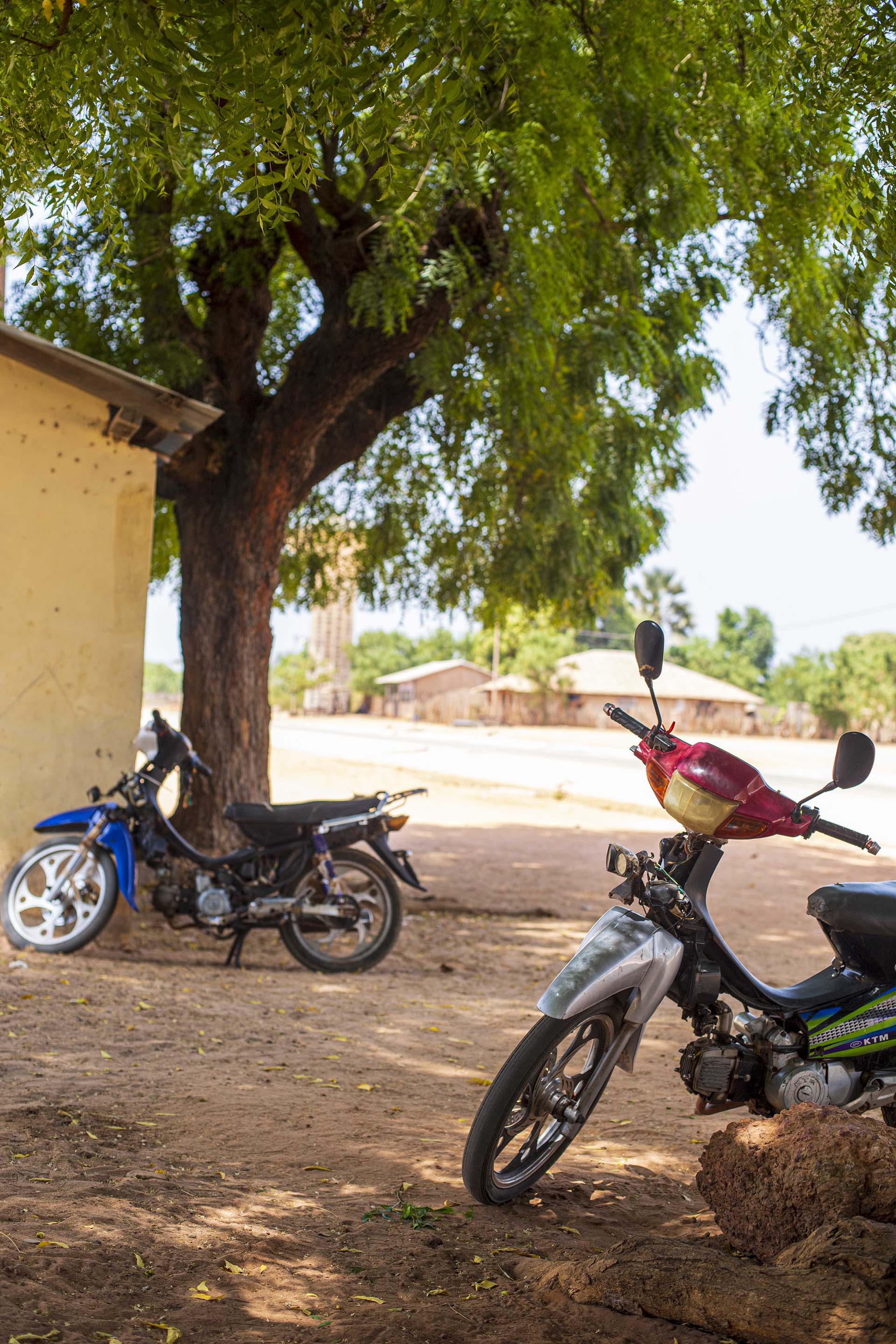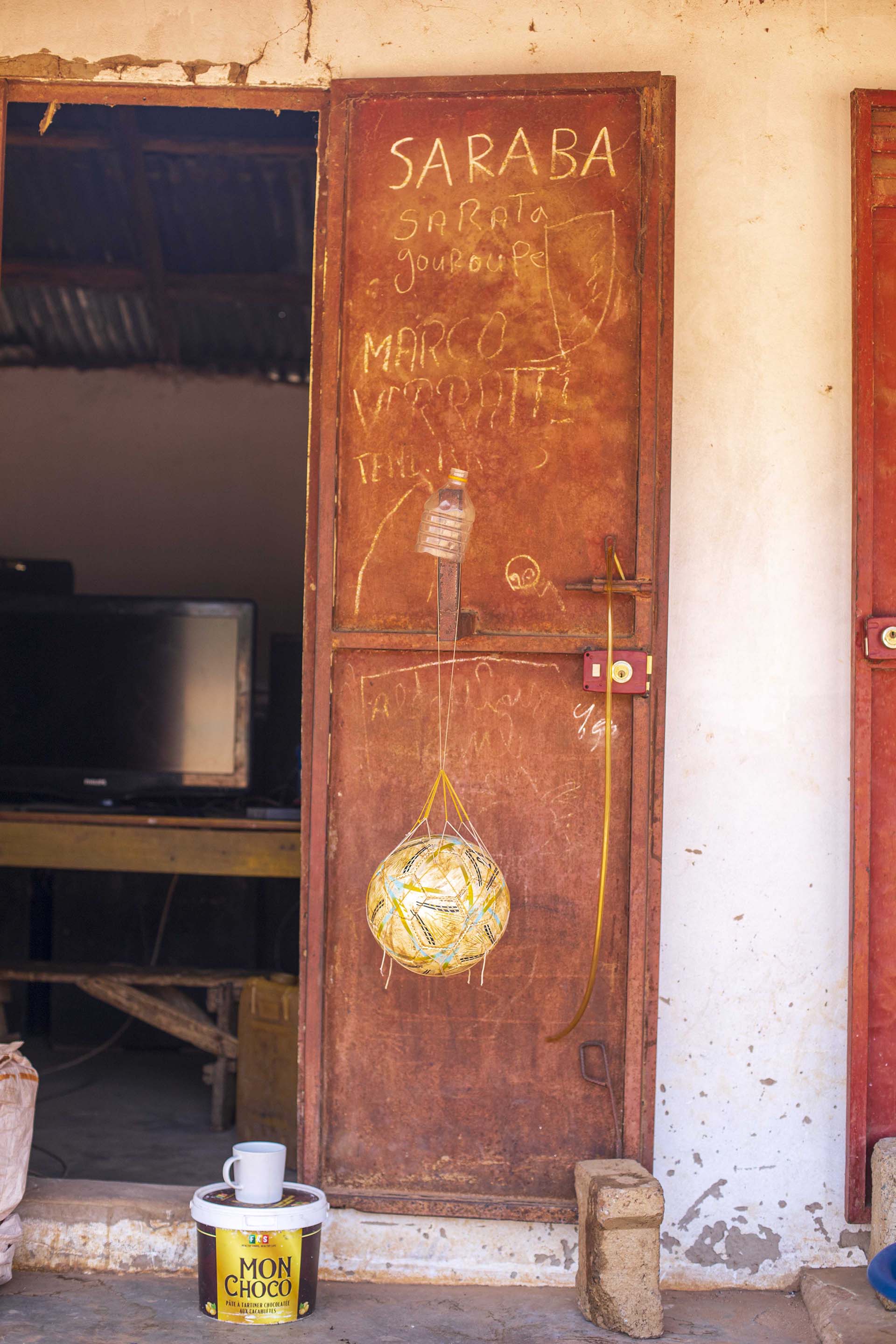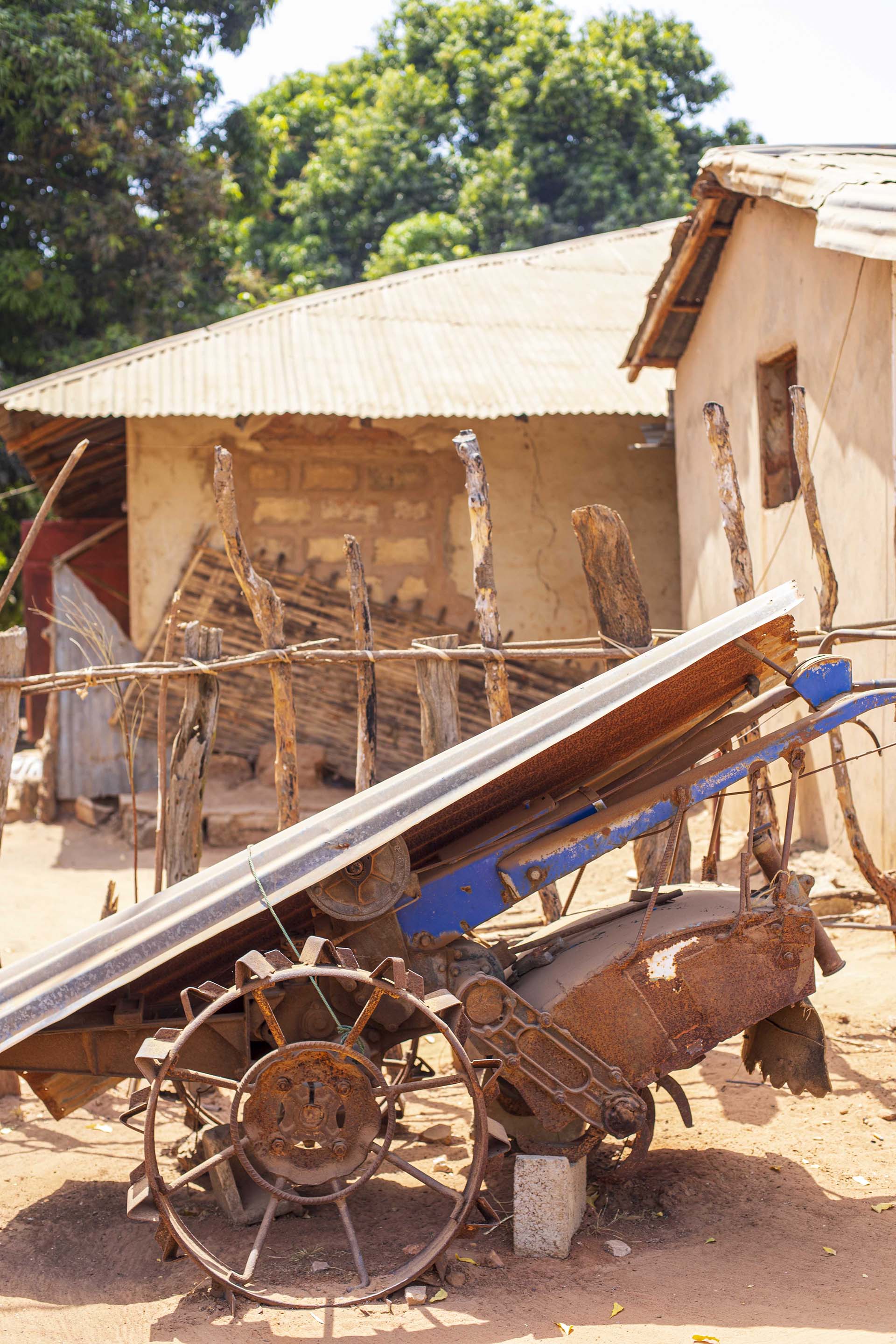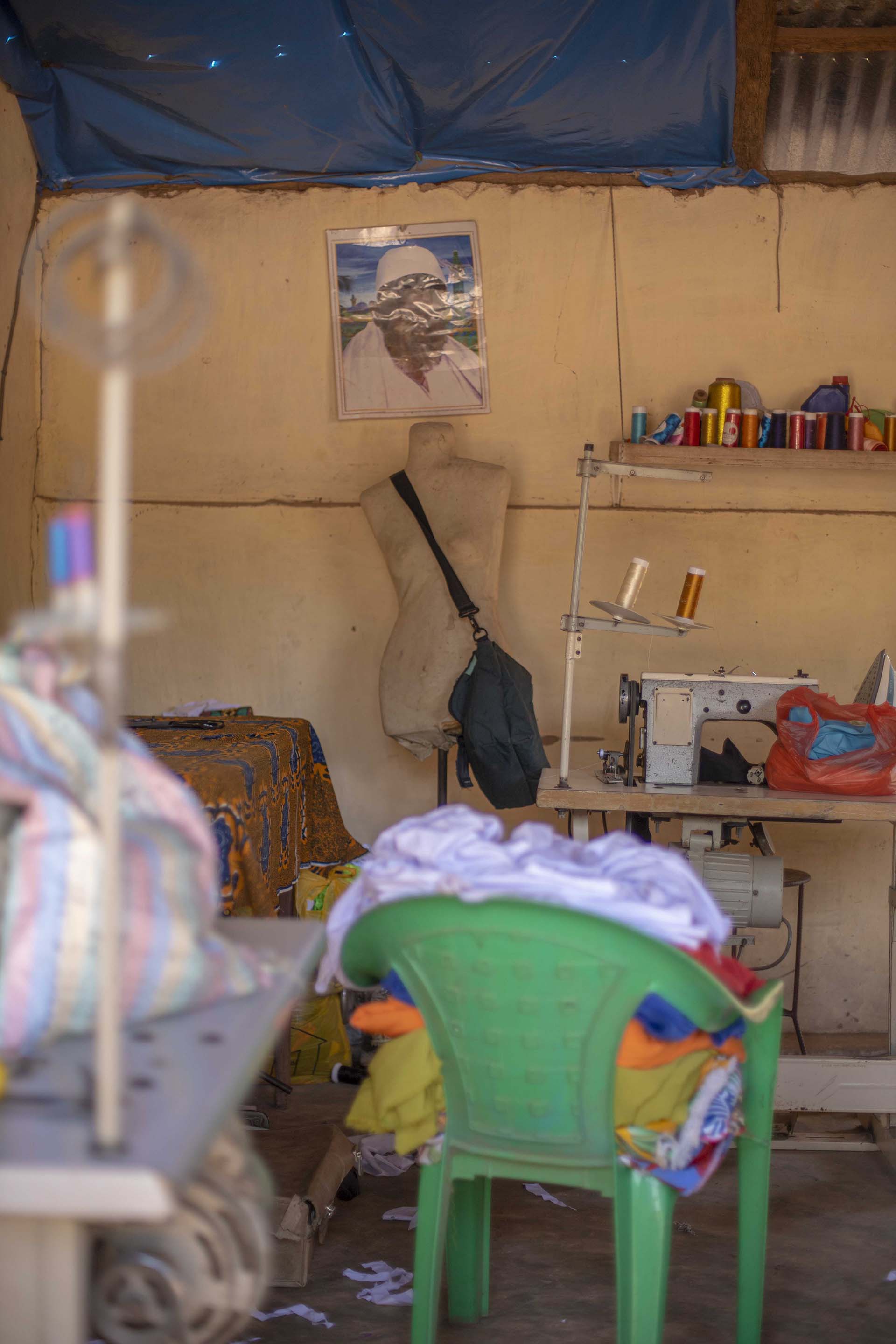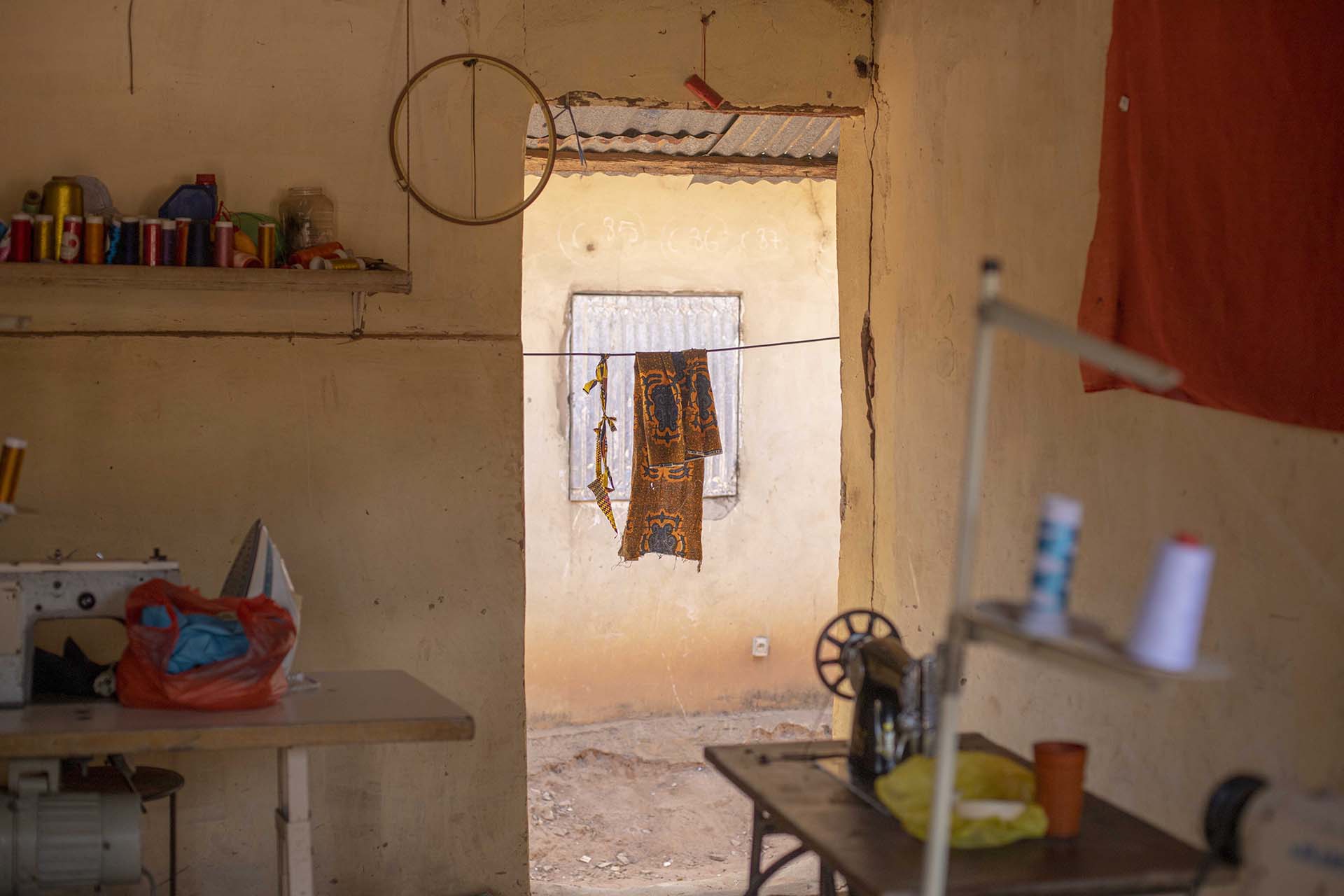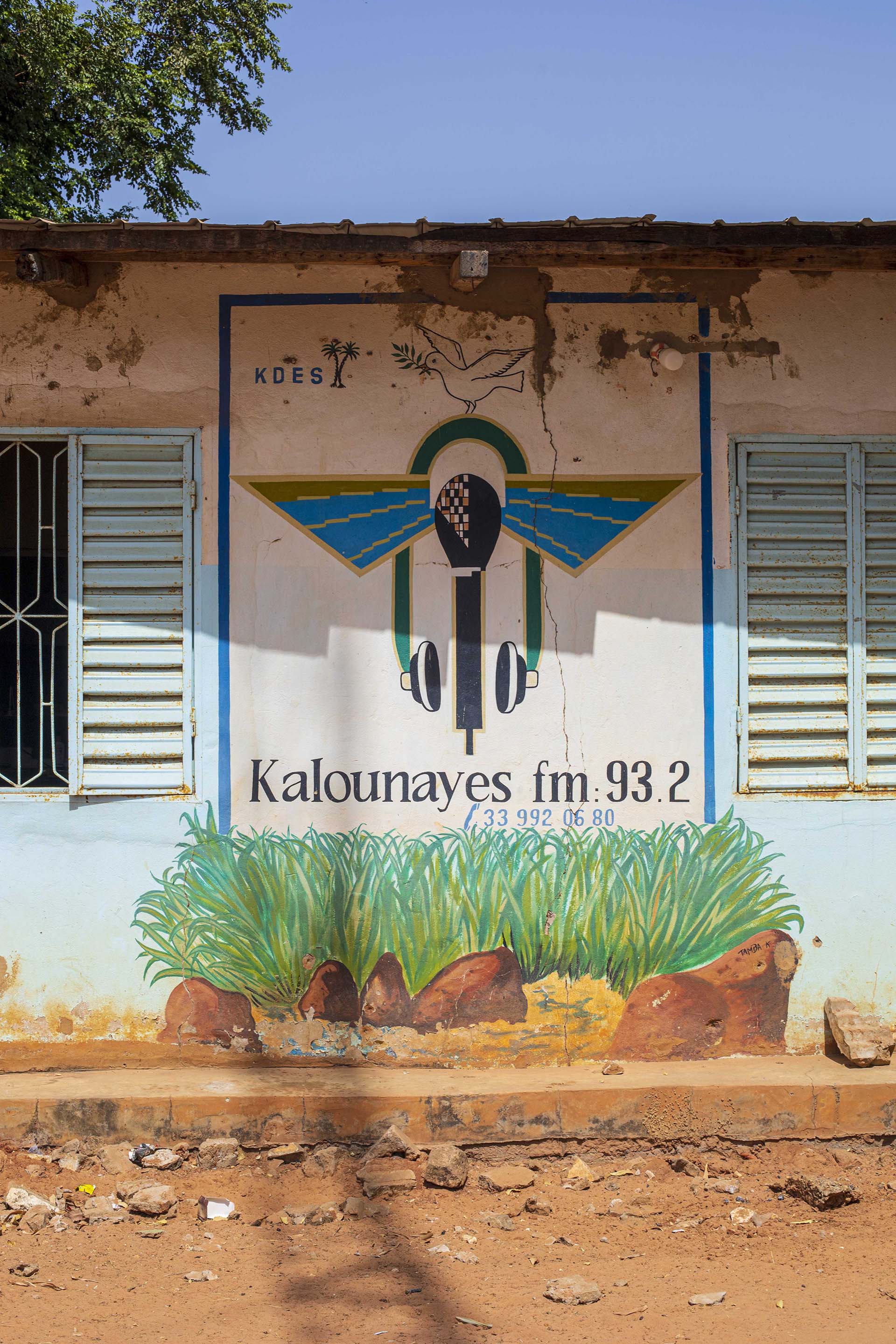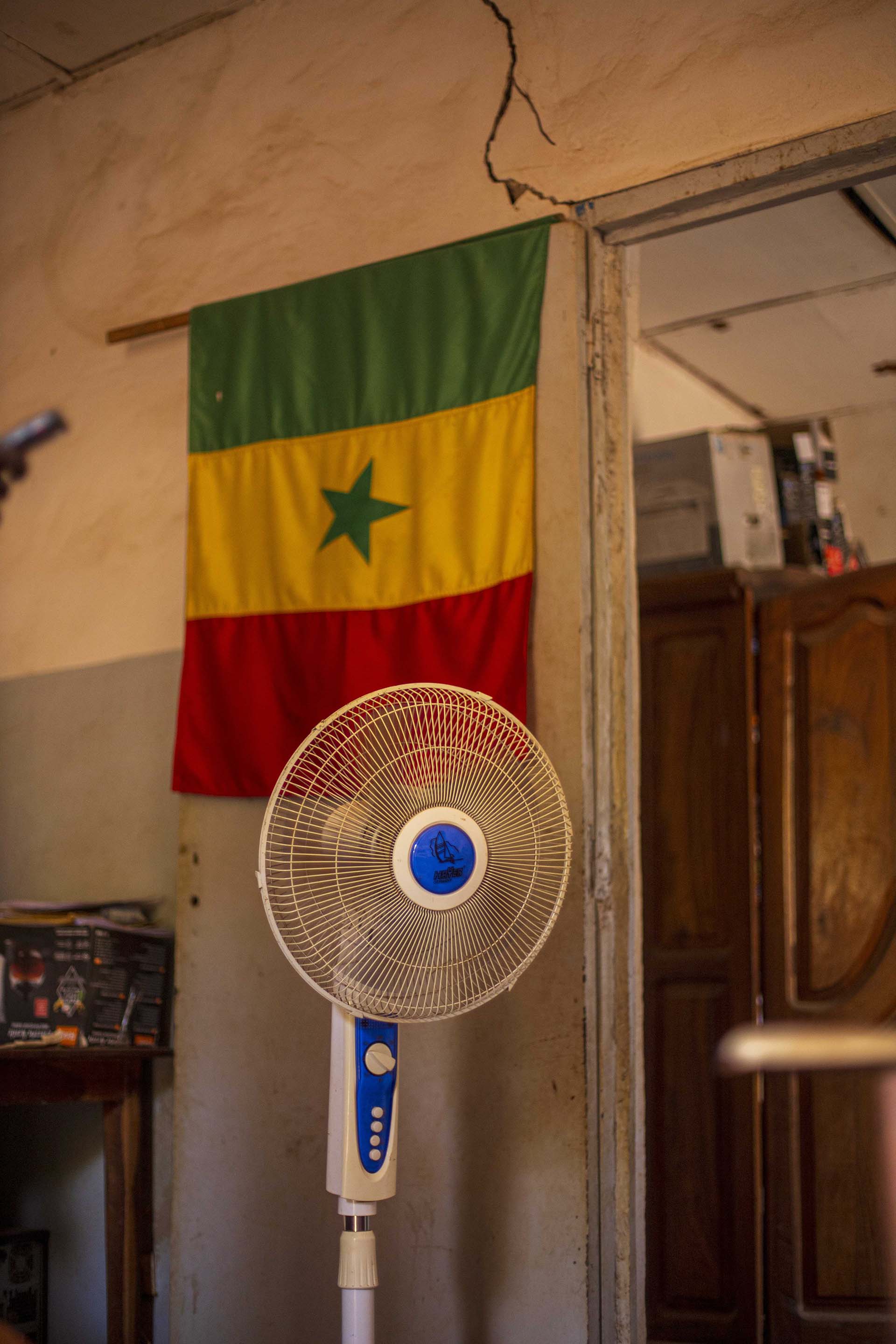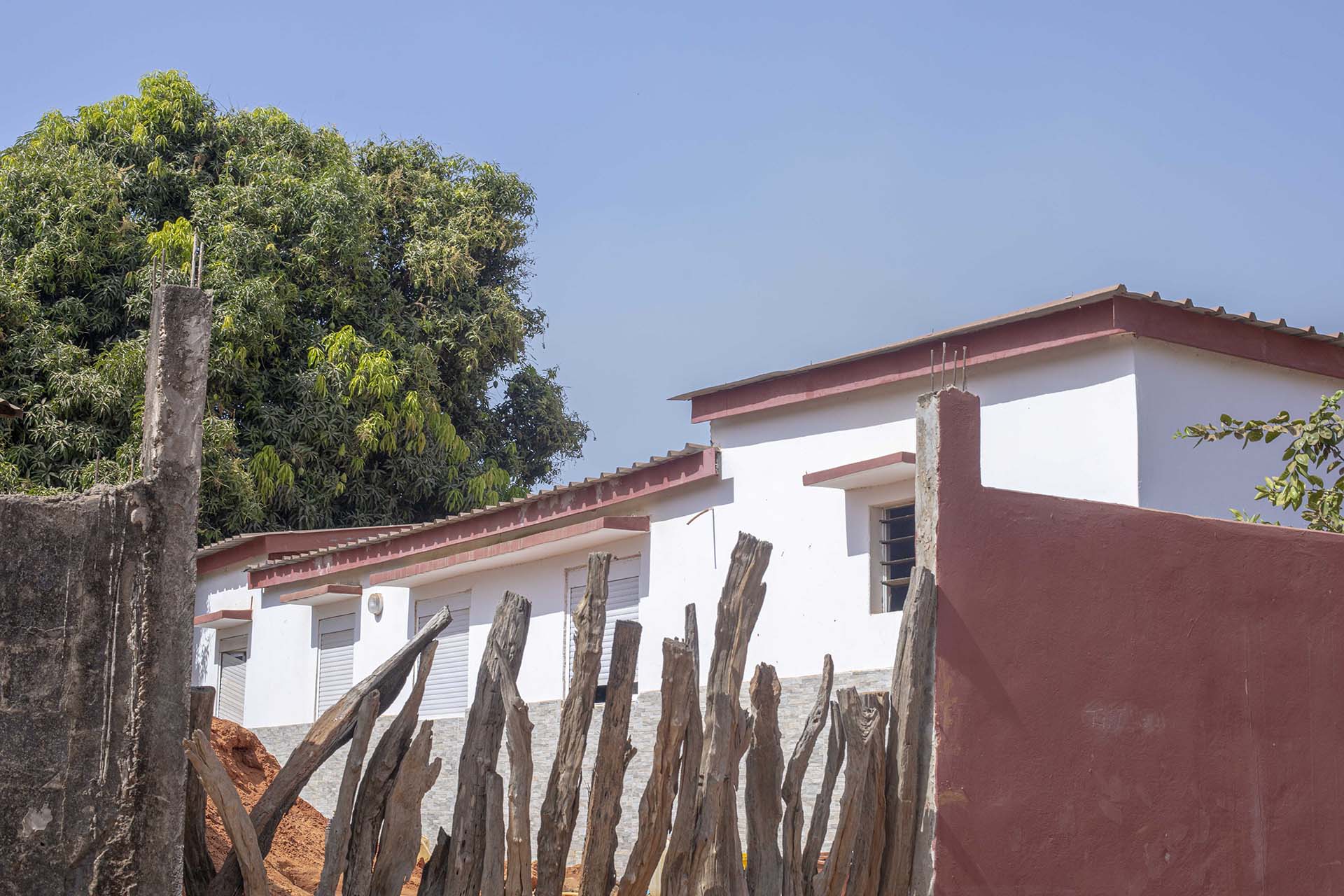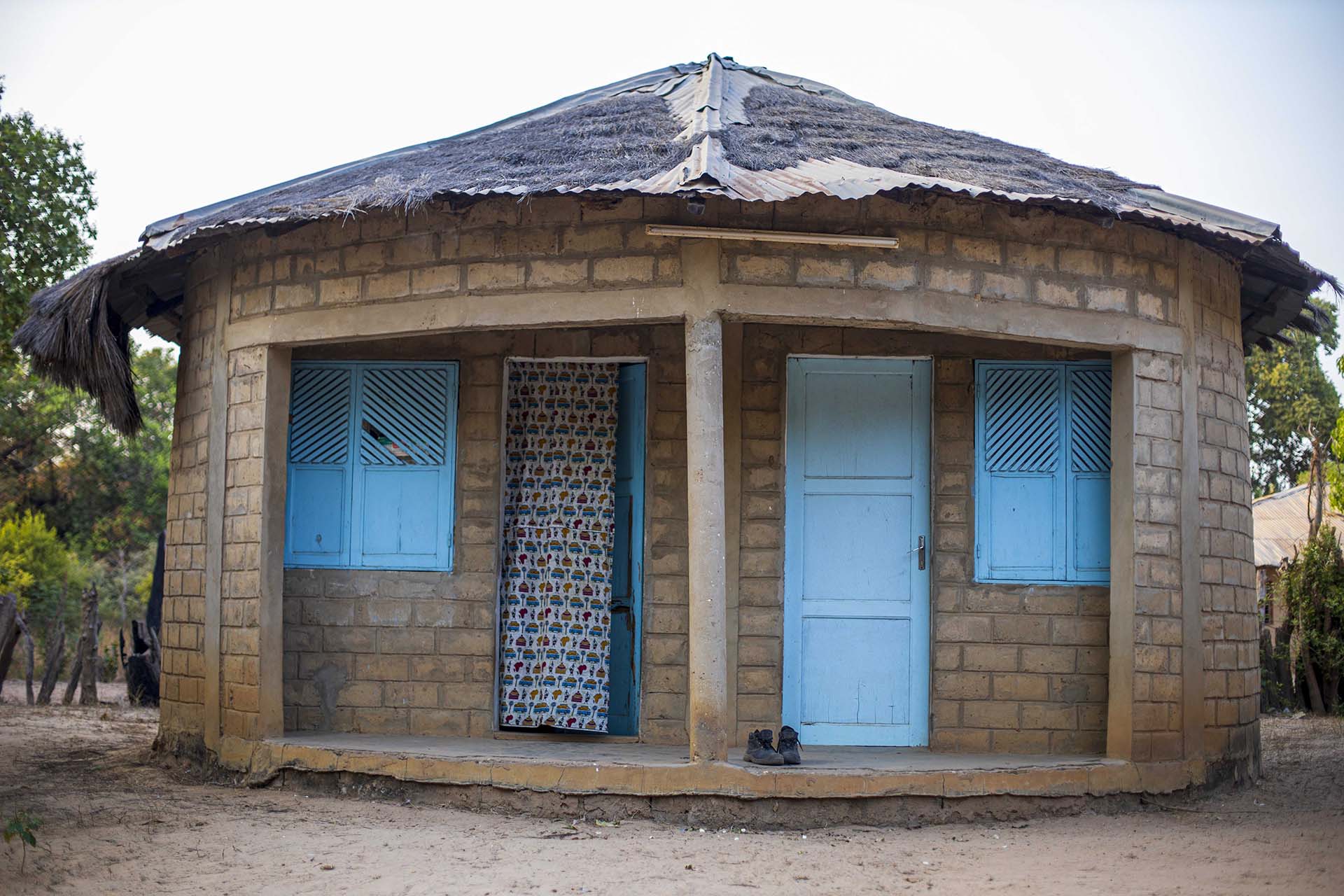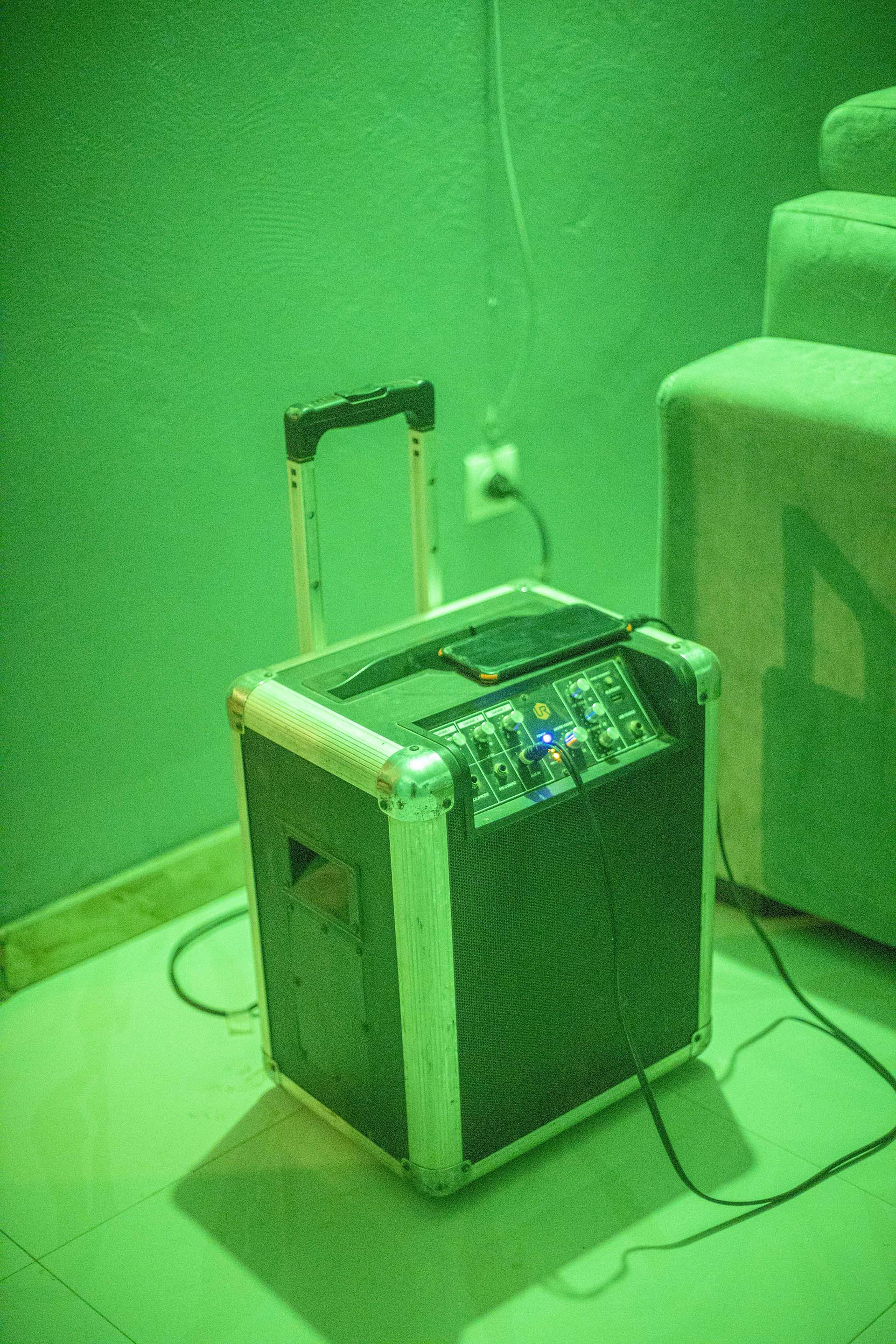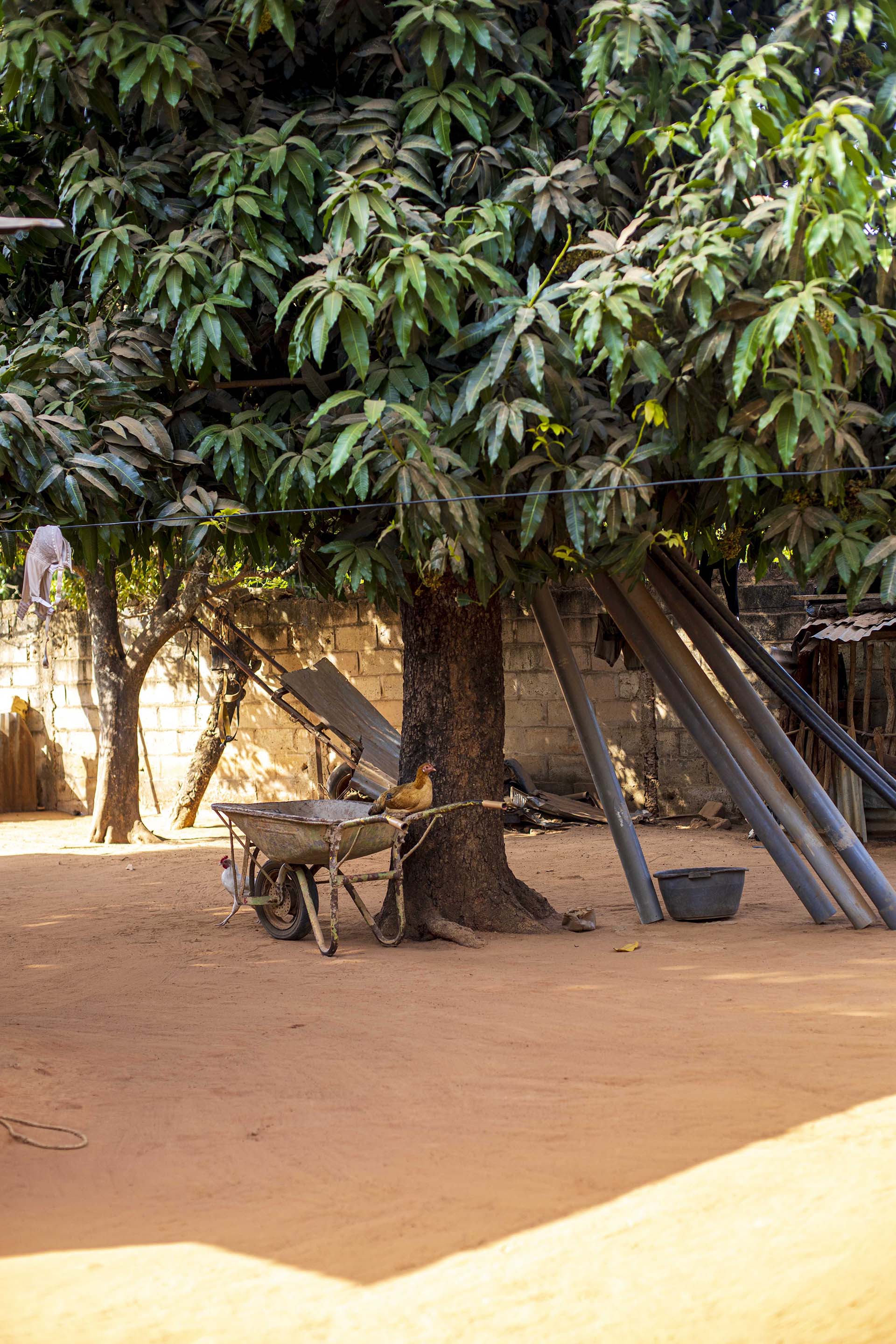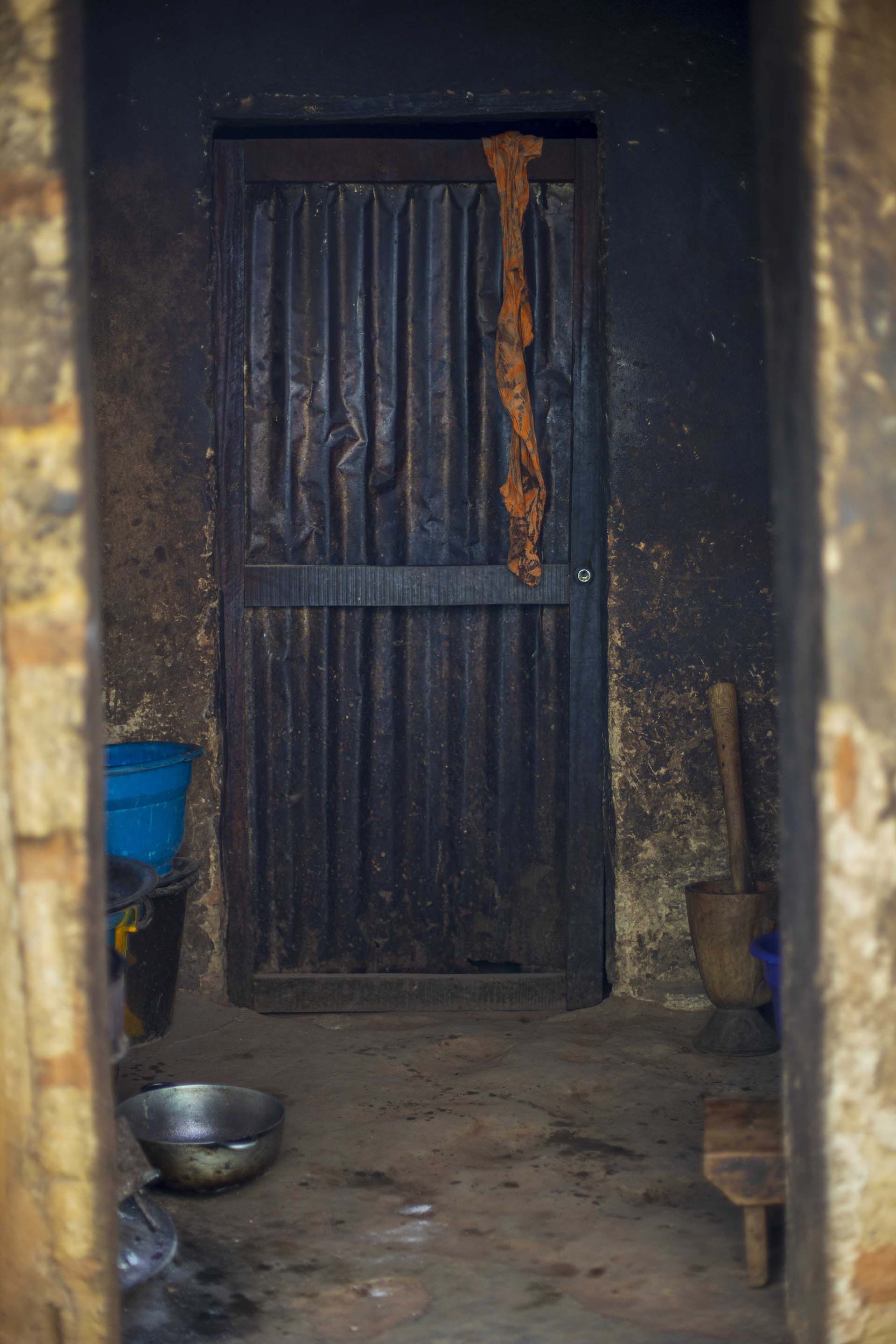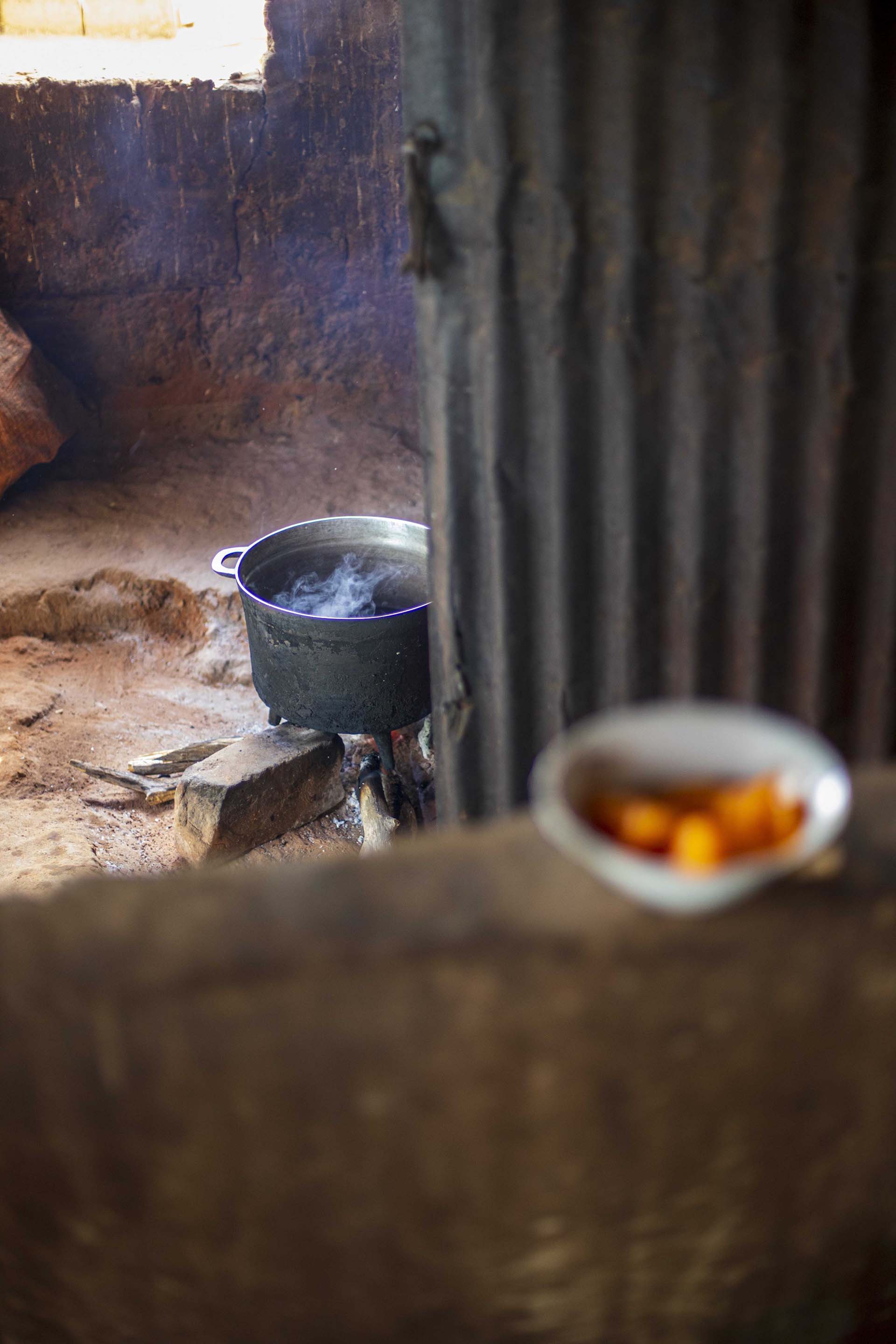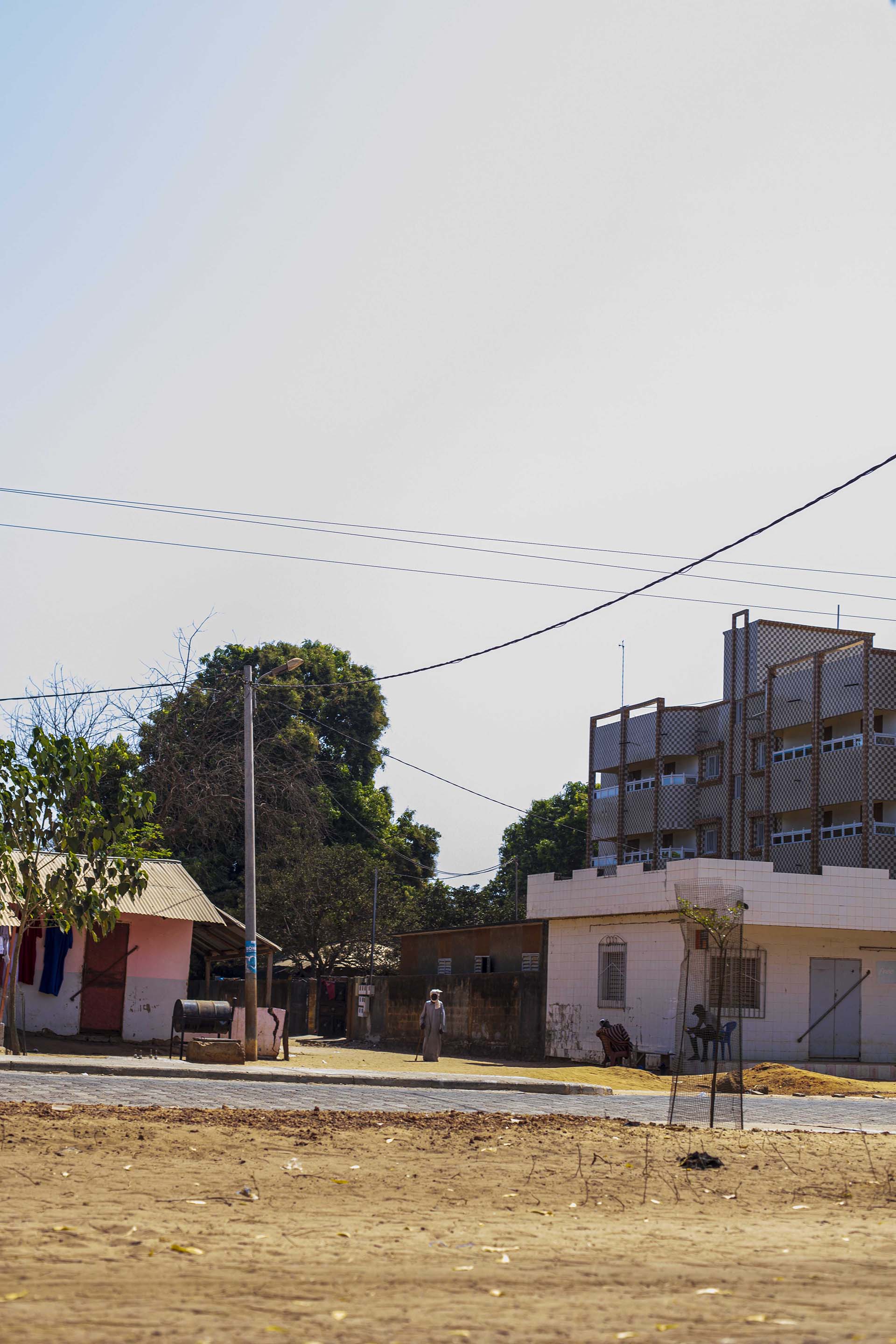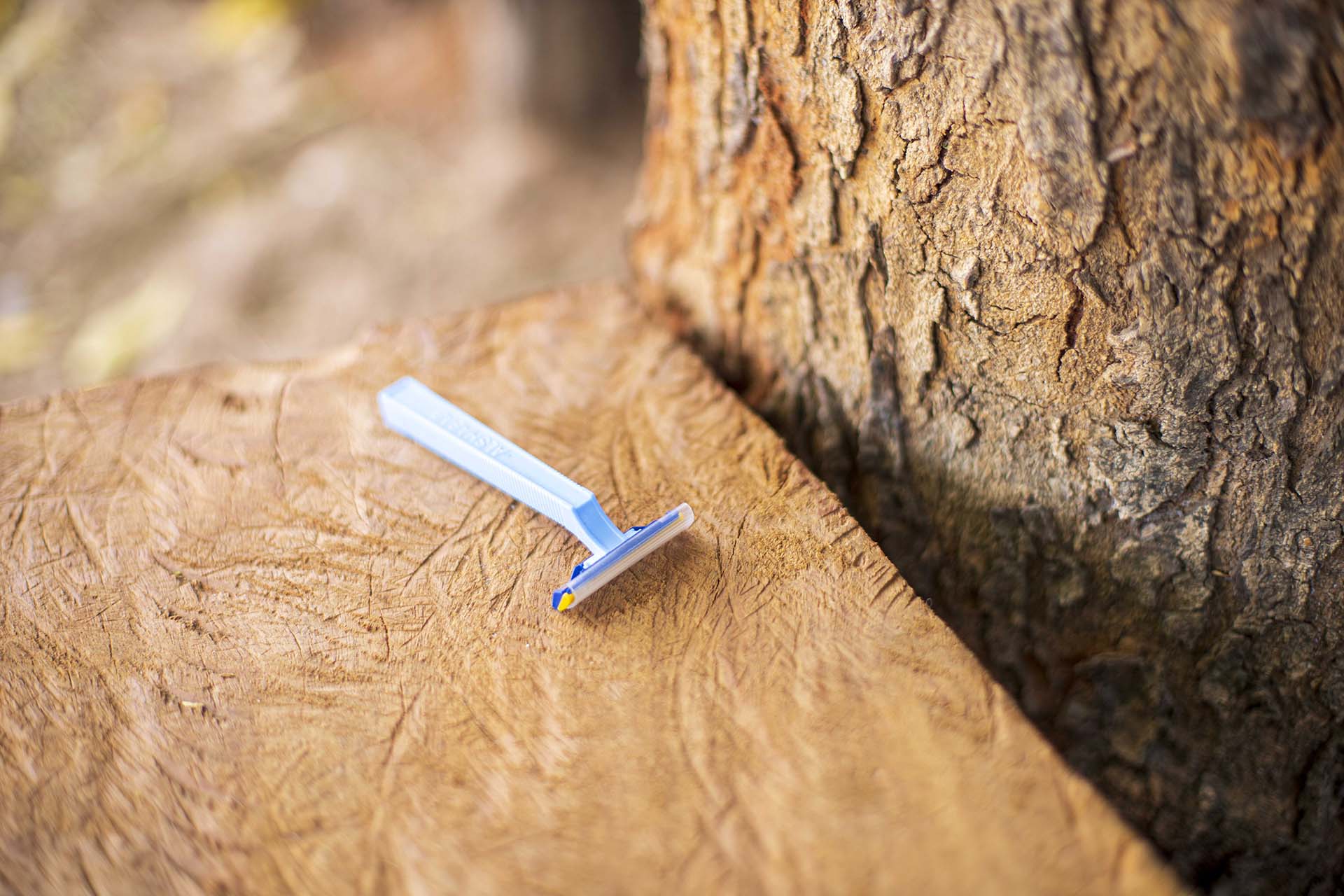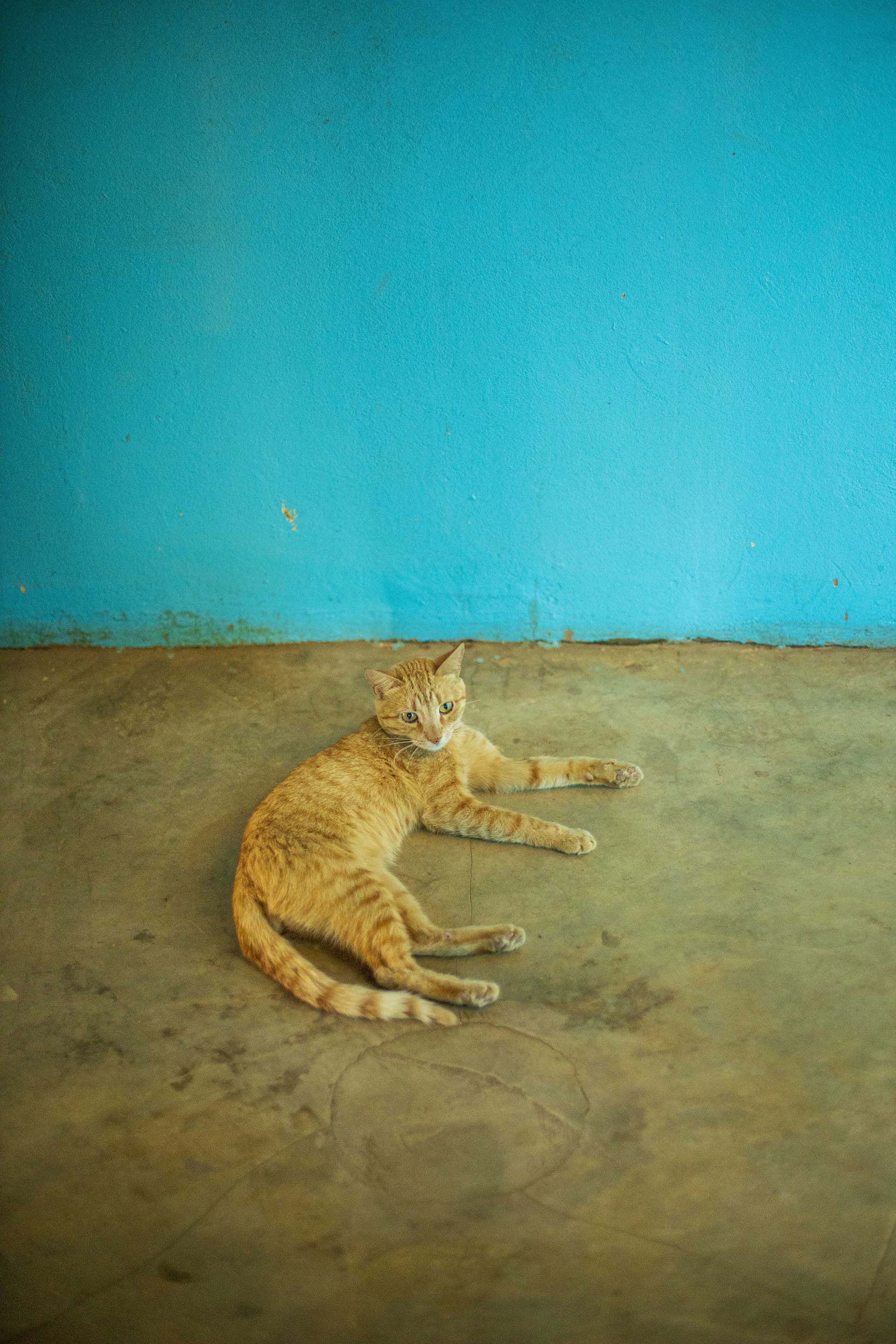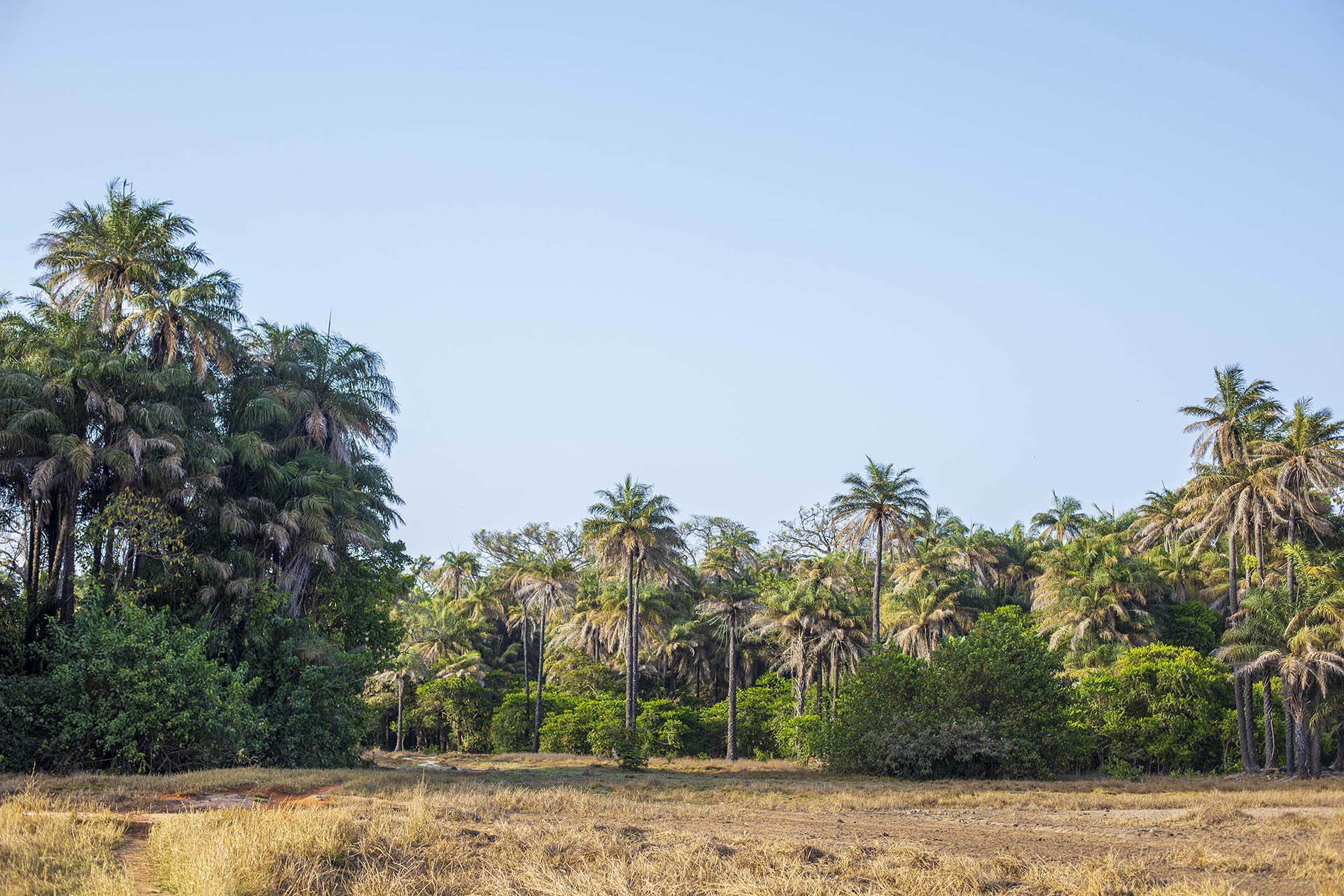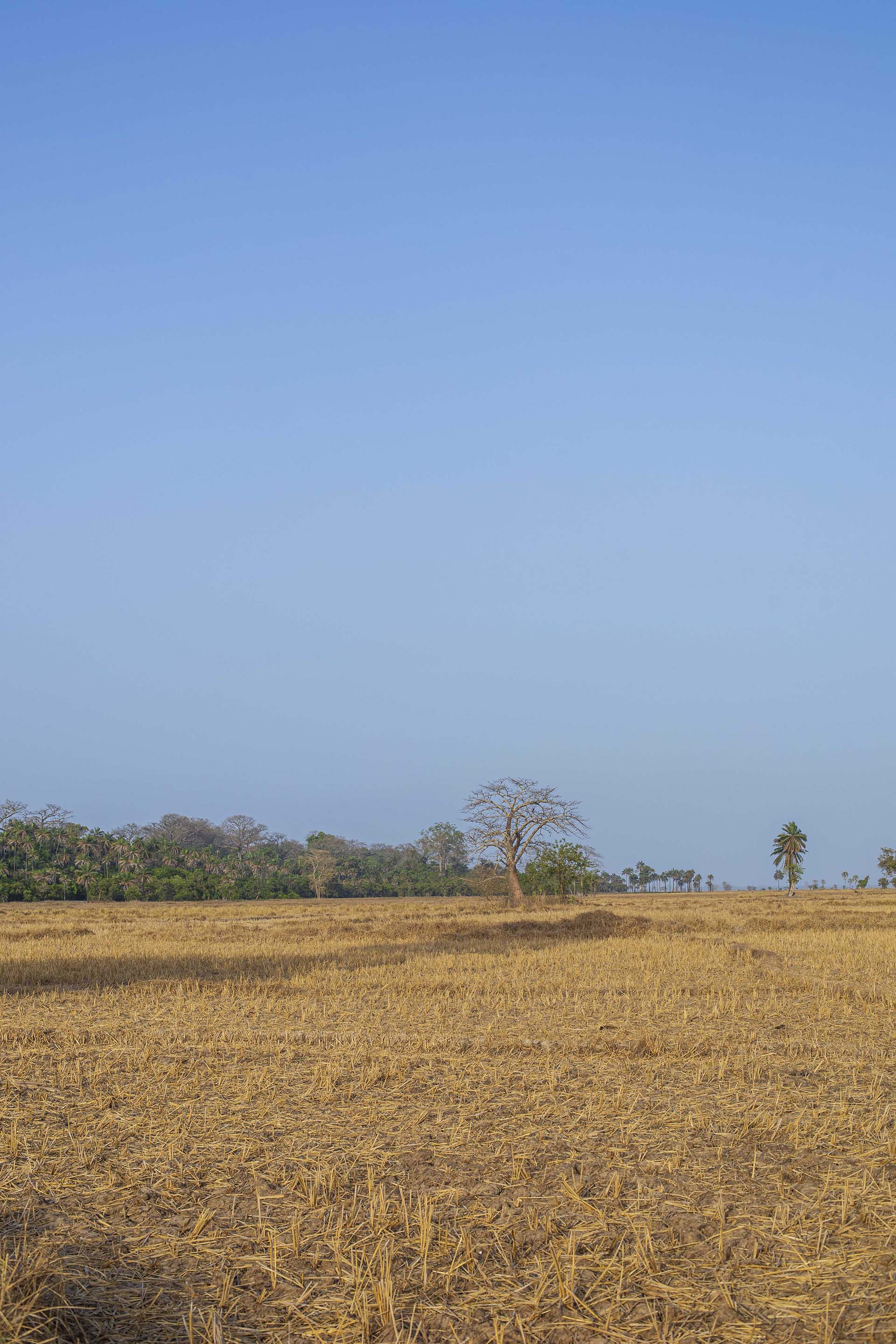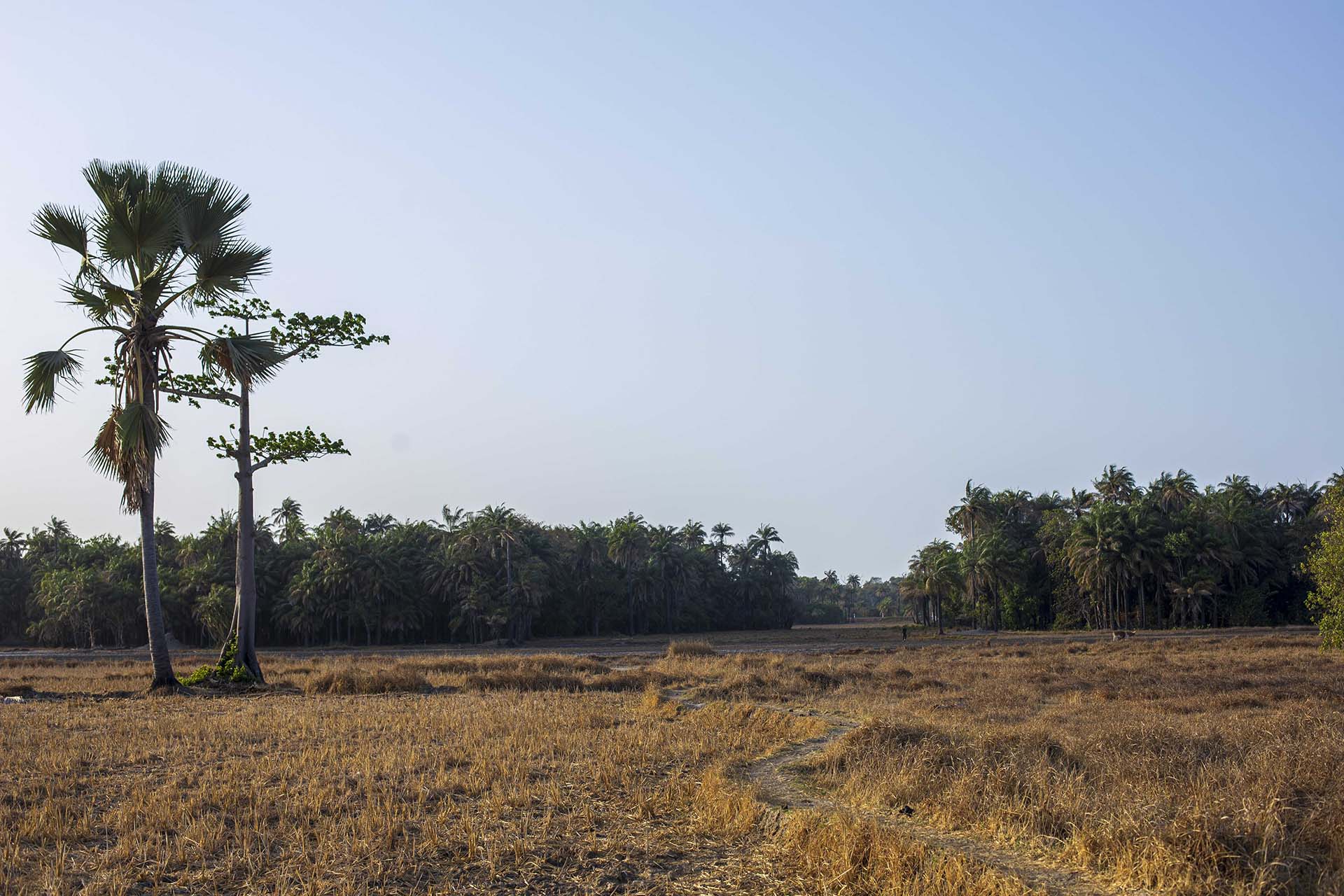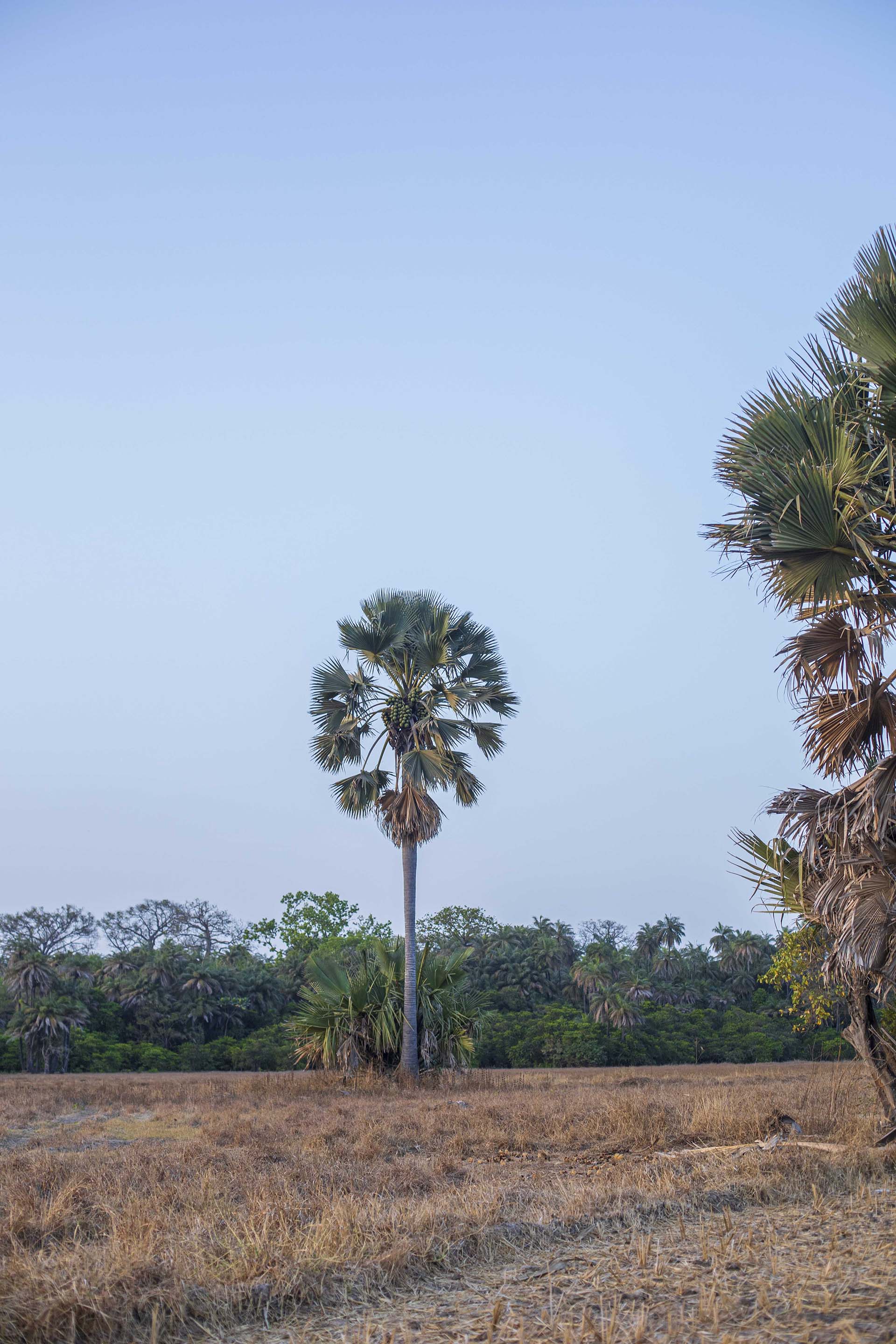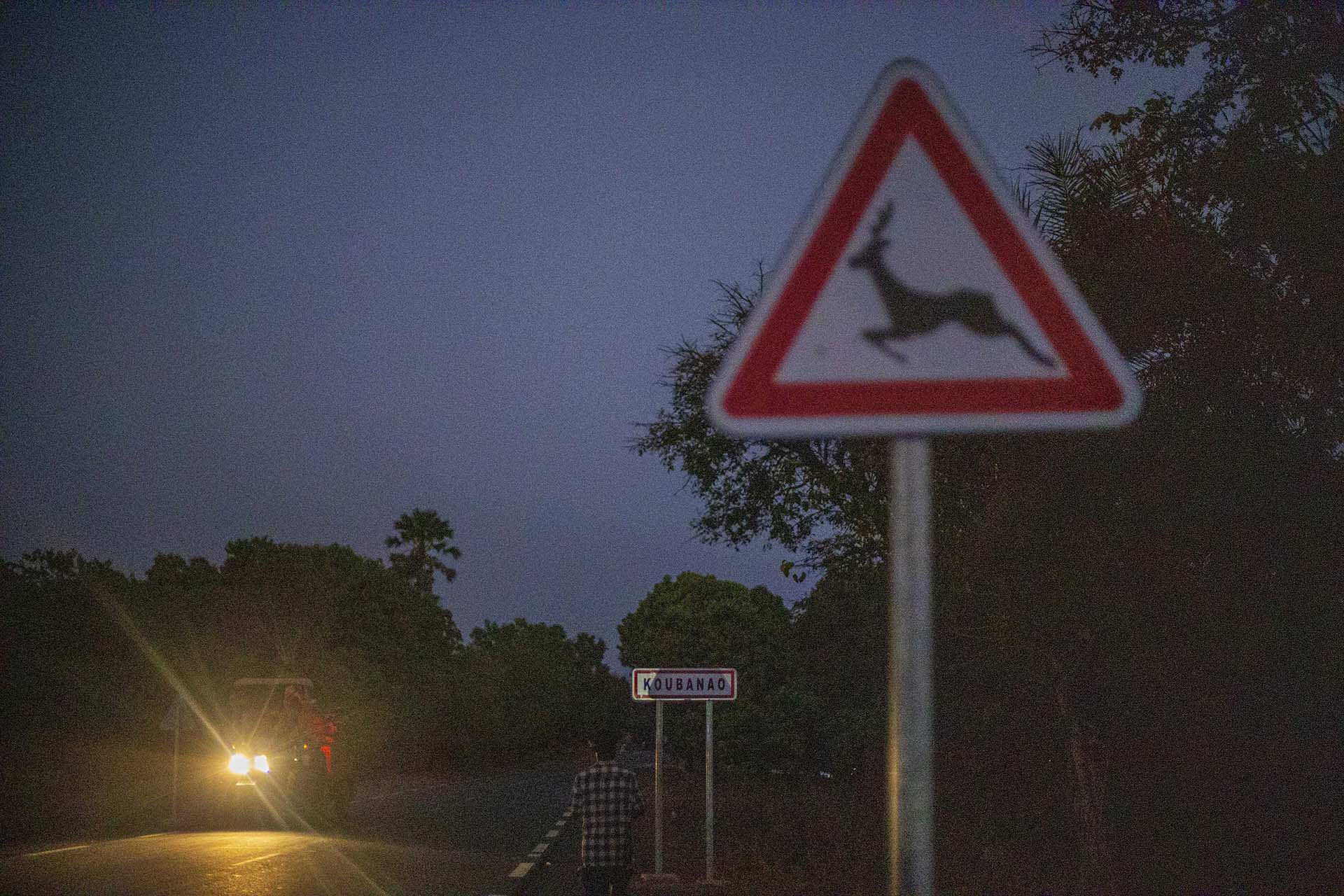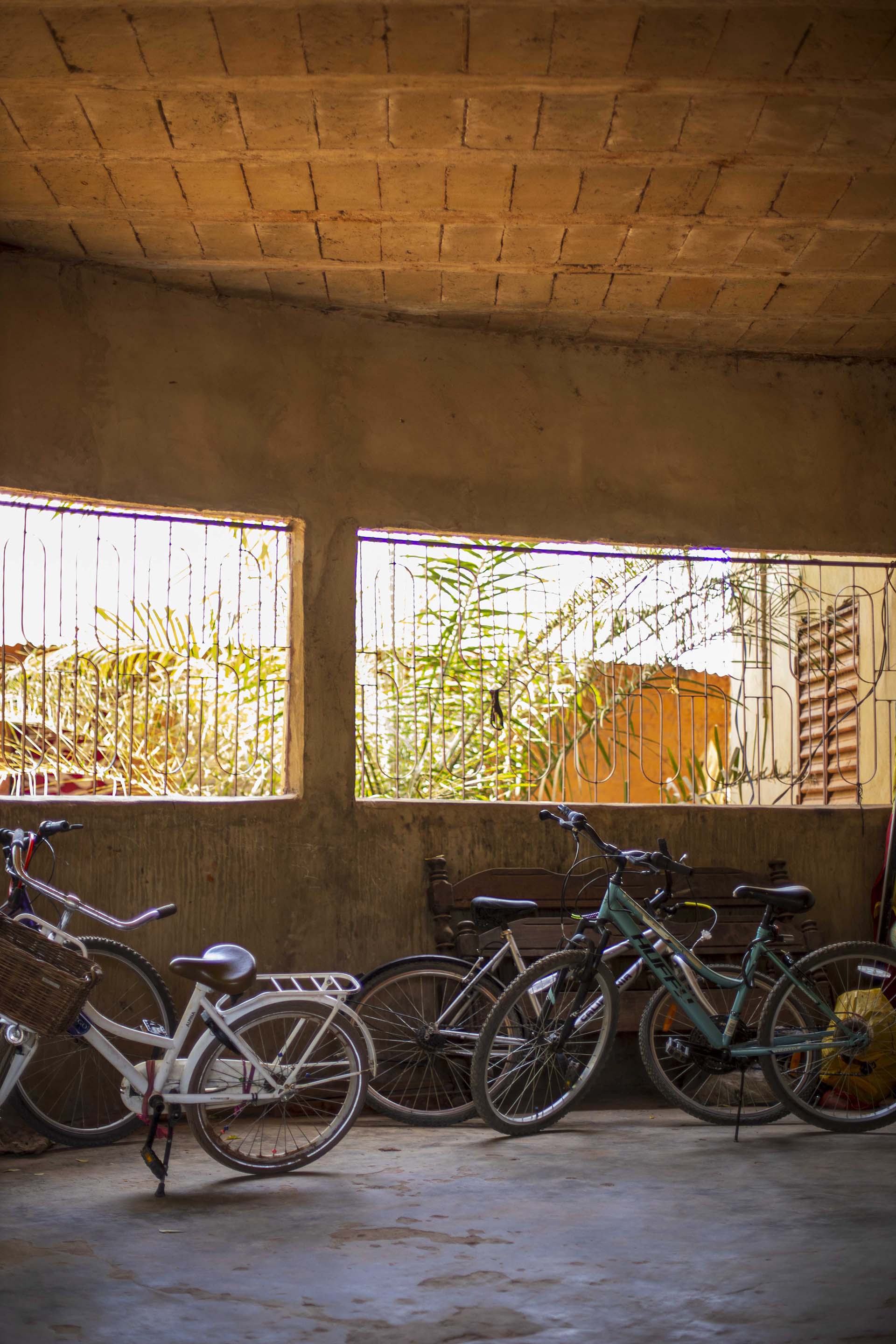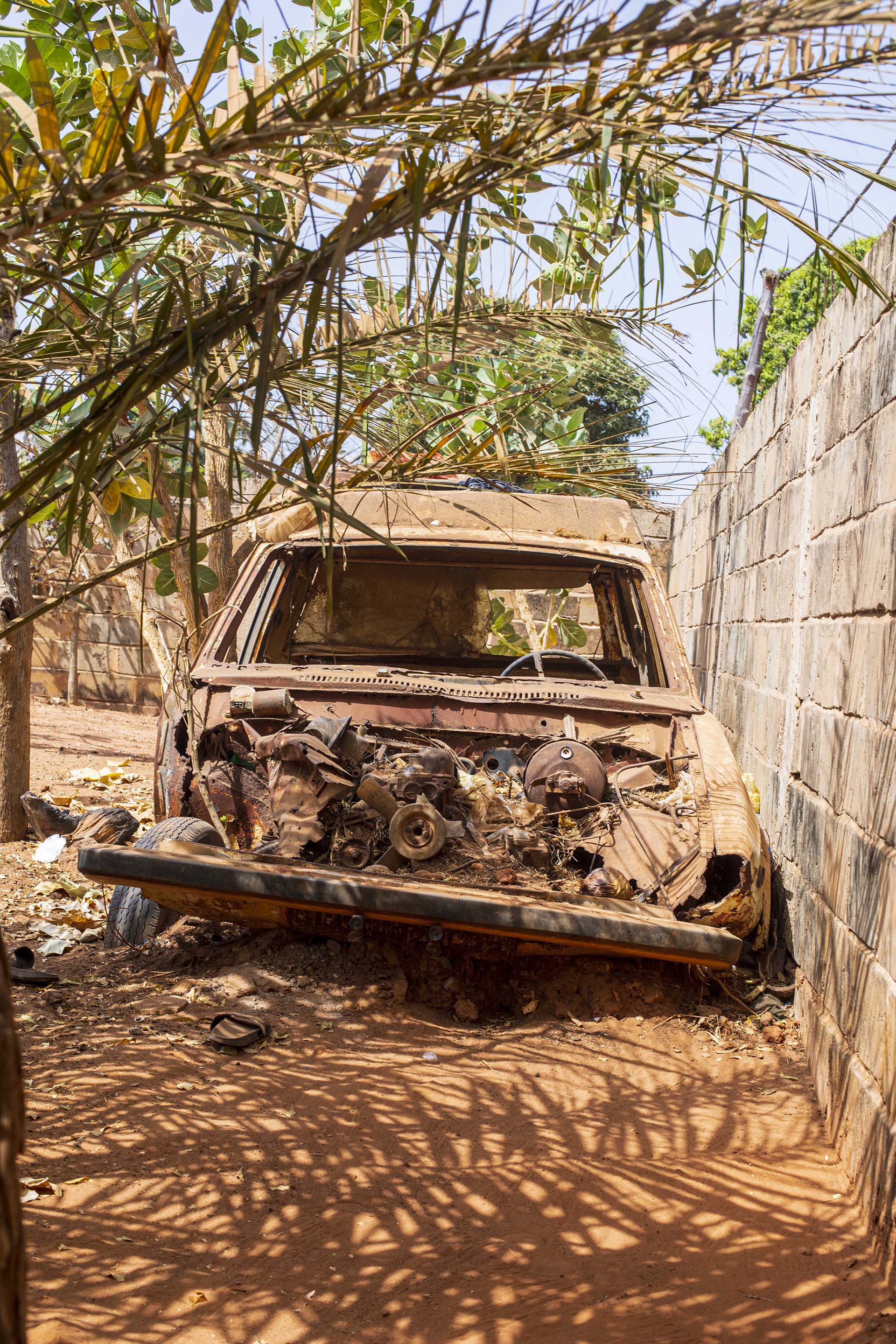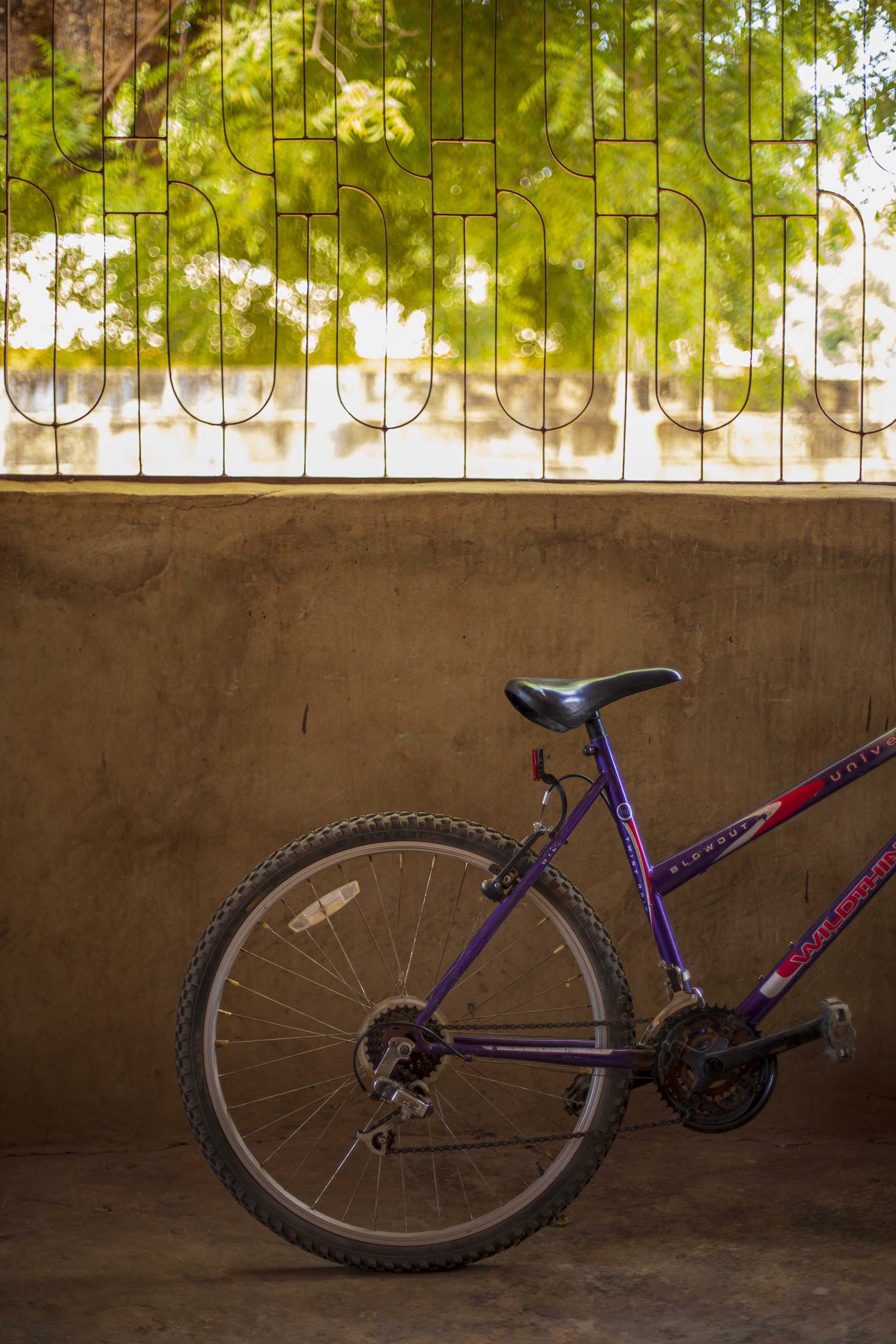Senegal Reportage
When I traveled to Senegal to meet up with so-called ‘potential migrants’ and gather their view on migration, I was torn between two feelings. On the one hand, I was delighted to have the opportunity to meet up again with the people of Koubanao, with whom I’d been in contact for almost 30 years. Indeed, in 1995, and thanks to Carrefour Canadien International, I spent three months immersed with a family from this village, the Sané, who had warmly welcomed me as a member of the family. This powerful and transformative experience undeniably sowed my first interest in anthropology. On the other hand, I was also very critical of the concept of ‘potential migrant’ and wondered how this reflection could be expressed in a way that was both scientific and artistic. So we went to Senegal in March 2024. We chose to do a photo report because we think that it’s a wonderful way to show that migration is a much more complex issue than is often portrayed. Ultimately, every human being is a ‘potential migrant’. The motives, trajectories, directions, experiences, constraints and points of view are multiple, but just as relevant and interesting to explore. That’s why you’ll find part of the photo report that was made in Koubanao with the people of the village and another part in Dakar, and even in the airports between the capital and Casamance, with foreigners who had settled in Senegal. The aim of this photo report is to present a diversity of viewpoints on migration and contemporary mobility based on the stories we have collected. We met men and women, young and old, people who had never left their town or village and others who had had several experiences abroad. We told them the stories of Sub-Saharan men and women migrants that we had gathered in Morocco. We then asked them what they had to say on the topic of migration. Our sole aim is to make their voice heard. So here’s what they had to share with you.
TEAM
This photo report was made possible by a fantastic team effort. We would like to extend our warmest thanks to all those who contributed to this project: Othmane Jmad (photographer and sound recordist), Matteo Collina (webmaster), Alphousseyni Sané (stage manager for the local mission), Mandela Sonko (production assistant for the local mission), Simon Webster (translation of texts into English), Malang Sané (translation and voice of the men in Diola), Mariama Diédhiou (translation and women’s voices in Diola), Manal Mkamel and Nada Hamdi (both research assistant to the Moroccan team), and all the participants in Koubanao and Dakar without whom this photo report would not have been possible. This work was produced as part of the Ithaca research project under the original idea and direction of anthropologist Catherine Therrien.
PHOTO REPORT IN KOUBANAO
Ousseynou Sagna lives in Koubanao. He has a 6-year university degree and was unemployed at the time of our photo report.
“I’ve been studying for over 20 years and I don’t have a job. You see your friends who left Africa not even 5 years ago, 10 years ago, are starting to build houses. They drive nice cars. You think: ‘Why not me?’”
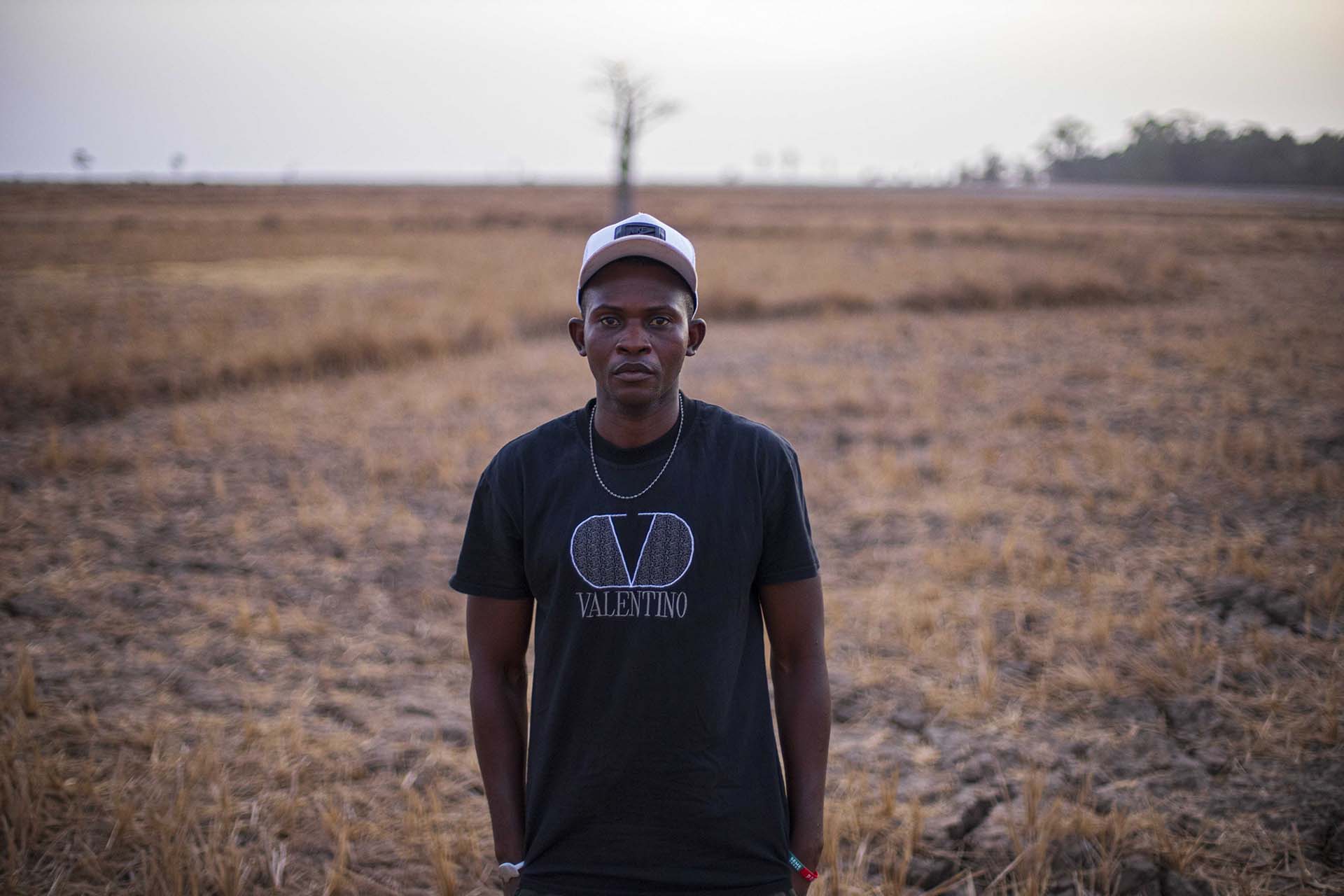
Landing Dièmé lives in Koubanao. He has a secondary school education. At the time of the photo shoot, he was a motorbike driver.
“I already have visions of leaving. I’d also like to try my luck. Even if I die at sea. I’m so tired. And I have to help my mum.“

Moussa Sidibé Dièmé lives in Koubanao. He has a baccalaureate level. He was a street vendor at the time of our photo report.
“Even if we are told that there are difficulties, we say to ourselves: ‘I have to leave’. If I work here, despite all my ambition, I don’t have the means to invest, whereas if I go to the other side, maybe I can make it. I want to become someone.“

Lamine Malo Sané studied in Dakar. He has a 5-year university level. He never finished his master’s degree in management due to a lack of funds. At the time of our photo report, he was training at the Koubanao vocational centre.
“For the last three years, I’ve been trying to get a scholarship to continue my Master’s in Control and Auditing abroad. But after that it’s always the same thing. You’ll get your degree, you’ll come back to the village and you won’t find a job. So it’s a complicated situation…“

Siaka Sagna lives in Koubanao. He was undergoing training in electricity at the Koubanaovocational training center as part of a programme funded by an Italian association to combat illegal immigration.
“We have resources here, but how do we exploit them? Today, I’m training in electricity, but afterwards, if I qualify, I’m not guaranteed funding to buy the equipment to continue. That’s what drives us to leave and go somewhere where there are more opportunities.”
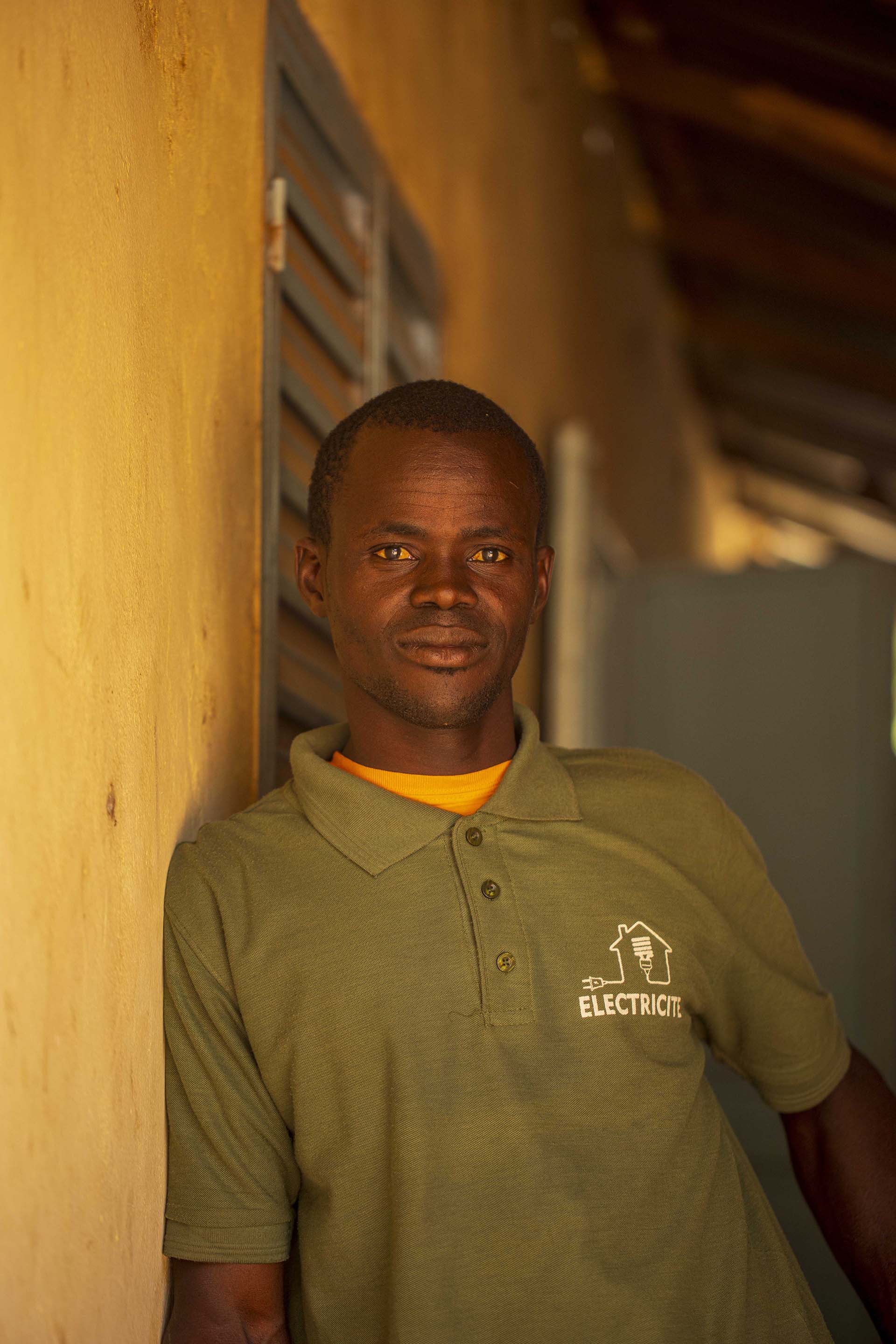
Alphousseyni Sané lives in Koubanao. He is headmaster of a preschool in Ouonck. He is also treasurer of FAK (water management) and chairman of the supervisory committee of the Koubanao credit union. He has also invested in fruit tree planting and market gardening.
“What’s the solution? Setting up a positive emigration policy. You talk to young people and decide how long they are going to stay in Europe. I’m going to work in Europe for three years and then invest back home. If the European states did that, it would be better than paying the military to block us.
These days, people farm to survive. They don’t produce enough to sell. You’re there with your stick, the kadiandou. Morning and night, it mortifies our bodies. It reduces our life expectancy. It pushes young people to look elsewhere. If we had new funding from the European Union to buy machinery and raise the dyke, we’d be able to slow down the advance of the salt sea, the salt in our rice fields. People could continue to farm. They’d have rice. Maybe they’ll stay. The future belongs to the young!”

Mandela Sonko has a 5-year university degree. He left the village to find work in Dakarwhere he did one odd job after another. He was in the village at the time of our photo report. He made a major contribution to this project by helping us with our work.
Sometimes I think, why did I study? They should have taught me to look for money instead. You spend 23 years studying: CI, CP, C1, C2, CM2, CEF, BFM, baccalaureate, university, degree 1, degree 2, degree 3, master 1, master 2. That’s a lot of time! And to come back with all those diplomas and stay like that, without a job. One day, as I was leaving for university, I wanted to buy a coffee. As I was in a hurry, I told the guy who sold me the coffee to hurry up or I’d be late. He said, ‘But my brother, take it easy. School in Senegal doesn’t matter’. When your father has sacrificed himself for you and you’re there doing nothing… it’s a bit complicated.
They [Europeans] can come here without papers. If they opened the doors and said, ‘Europe is here, those who want to come should come, those who don’t want to, should stay’, there wouldn’t be so many deaths.
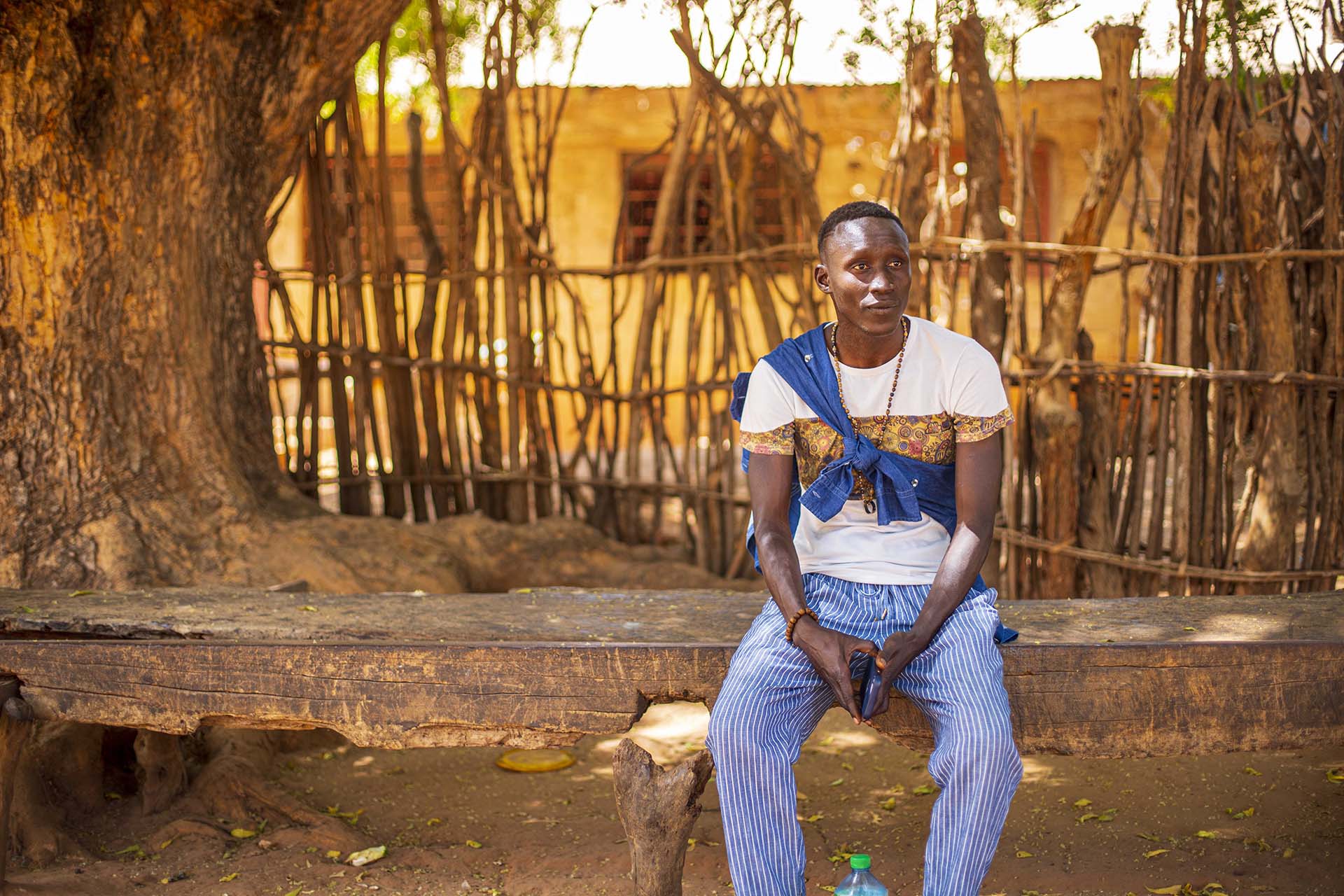
Tessa Moïse Diatta lives in Koubanao. He is a cooking trainer at the Koubanao vocational training center.
“I think that your project (ITHACA) is an opportunity for those who would like to leave to be more aware of what awaits them. And perhaps, it will also help others to develop their thinking, to be discerning, to see whether it’s necessary to leave or to stay, to travel.”

Gaston Gomis (husband of Mrs Néné Mendy) was born in Guinea-Bissau and moved to Senegal with his parents during the war of liberation. He has lived in Koubanao since 1996, where he teaches Portuguese at a secondary school. He describes himself as ‘eternally displaced’. He taught for several years in Elinkin, a small town on the Atlantic Ocean that is a well-known departure point for canoes trying to cross to Europe.
“When there were difficulties with school integration, the parents were summoned to try to keep their children in school. It was the parents who were pushing them to leave. They would tell you outright: ‘If the child doesn’t want to go to school, he can go to sea’. When children regress at school, the parents choose the money path.
Personally, I think we can succeed here. If the means are there. Unfortunately, those in power prefer pocket politics and don’t invest. Take, for example, the Koubanao CEM [primary school] where I started out as a teacher. It was built by the parents of the village. It was fenced in by the parents. All the government did was provide teachers. If a village like this rallies around to educate its children, I think it’s easier to help the village get off the ground. If there are local experts who are thinking about developing their country, all we have to do is push them and support them. But unfortunately, we prefer to do politics differently.”

Lamine Keba Sonko lives in Koubanao. He went to Canada on an exchange in 1973-74 as part of the Canada World Youth programme. He is the village wise man. Involved in local politics for many years, he is also a poet. He has published a collection of poems entitled ‘Le fils de la pierre rouge’ (The Son of the Red Stone), published by Les Maîtres du jeu (Dakar, 2022).
“Here, in Koubanao, we have this space, we have the Casamance river beside us, we have rivers, we have the forest, we have fields, we have everything we need. I believe that all we need to do, as our parents and grandparents did, is to exploit these resources, which are a gift from God. I used to say that happiness will return to our men who live in the countryside.
When my son left, God knows I wasn’t informed. He negotiated with his older sister. As soon as she told me he was in Morocco, I thought about the Mediterranean crossing. I didn’t sleep for 2 days. I had no appetite. I said to her: ‘Please tell him not to try to cross the Mediterranean, to stay in Morocco’. One fine morning, she said to me, ‘He says hello’. I asked her if he was still in Morocco. She said, ‘He’s in Spain’. I have a second son in Morocco. I told him ‘If you try to cross the Mediterranean, if you try to go to Spain, even just to try, I’ll curse you’. How many have stayed at the bottom of the ocean?”

Malamine Diédhiou lives in Koubanao. He is a retired teacher/school director. He is in charge of programmes at the local radio station Kalounayes FM. He has three brothers who have been living in Europe (Italy, Spain, Scotland) for 20 years.
“When I left for Italy, I flew to Dakar. There were 200 young Senegalese on the plane. I asked them, ‘But where are you going?’ They told me they were going to Morocco, and from Morocco there are routes to Nicaragua. They then plan to travel to Canada or the United States. It hurt! I said to my friends: ‘But at this rate there won’t be any young people left in Senegal!’
“

Vieux Sané left his village in 1976 to move to Dakar to train as a jeweler. He worked in life insurance for an American company until 1999, when the company went bankrupt. He has since returned to the village (Koubanao), where he has invested in planting fruit trees.
“You have to believe in what you’re doing. Today, I’m in the village. I advise young people to do what I do. I don’t just give advice, I set an example. I’ve built my own house. Why not someone else? Why do we always think there’s something on the other side when there’s everything here? It’s not inevitable. If you’re healthy, you have to succeed. You must never say ‘I can’t succeed’. You have to say ‘What can I do to succeed? Is your dad going to feed you until you’re 40?”

Vieux Cissé lives in Koubanao. He is responsible for water billing in the village. He is also the sales agent for the local radio station Kalounayes FM.
“At the level of our association (KDEs), we carry out activities to retain young people in the commune of Koubalan so that they can find their livelihood here. We have financed start-ups with all the equipment. When we put out the call for training, people aren’t interested. But those who believed in it are now doing a remarkable job. We trained a student who came back to the village. Now he has his own orchard and vegetable garden. Last year, he supplied us with vegetables for the big festival that brought together over three thousand people.“

Arona Sané lives in Koubanao. He has been President of the ‘KDEs Kalounaye’ association for economic and social development for 24 years. He has travelled to several European and African countries as part of his commitment to his association. LINK
“They want Africans to believe ‘You have nothing, you are nothing, the wealth is in Europe. We are richer than you, we have much more, we have no problems’. They didn’t expect the young people here to discover the good things about Europe in such large numbers. Everyone wants to leave, but no one has the skills. What are you going to do when you get to Europe? No one can stop anyone from leaving. But before you leave, at least have a small qualification, a trade. Because what happens to those who have no qualifications at all is pure exploitation.”

Bacary Tamba lives in Koubanao. He is the chief of the village. He spent 20 years in Dakar. He has a daughter who lives in Morocco.
“It’s not something your parents wanted, but that’s life. Sometimes you try, sometimes you don’t succeed. But everyone tries to change things for their family a little, to put their family in very good conditions. Illegal immigration is what shakes parents’ hearts. If my son decides to leave, I’m going to accept it because he might be able to help me, send me money to survive. I’m here. I’m an old man. What can I do?”
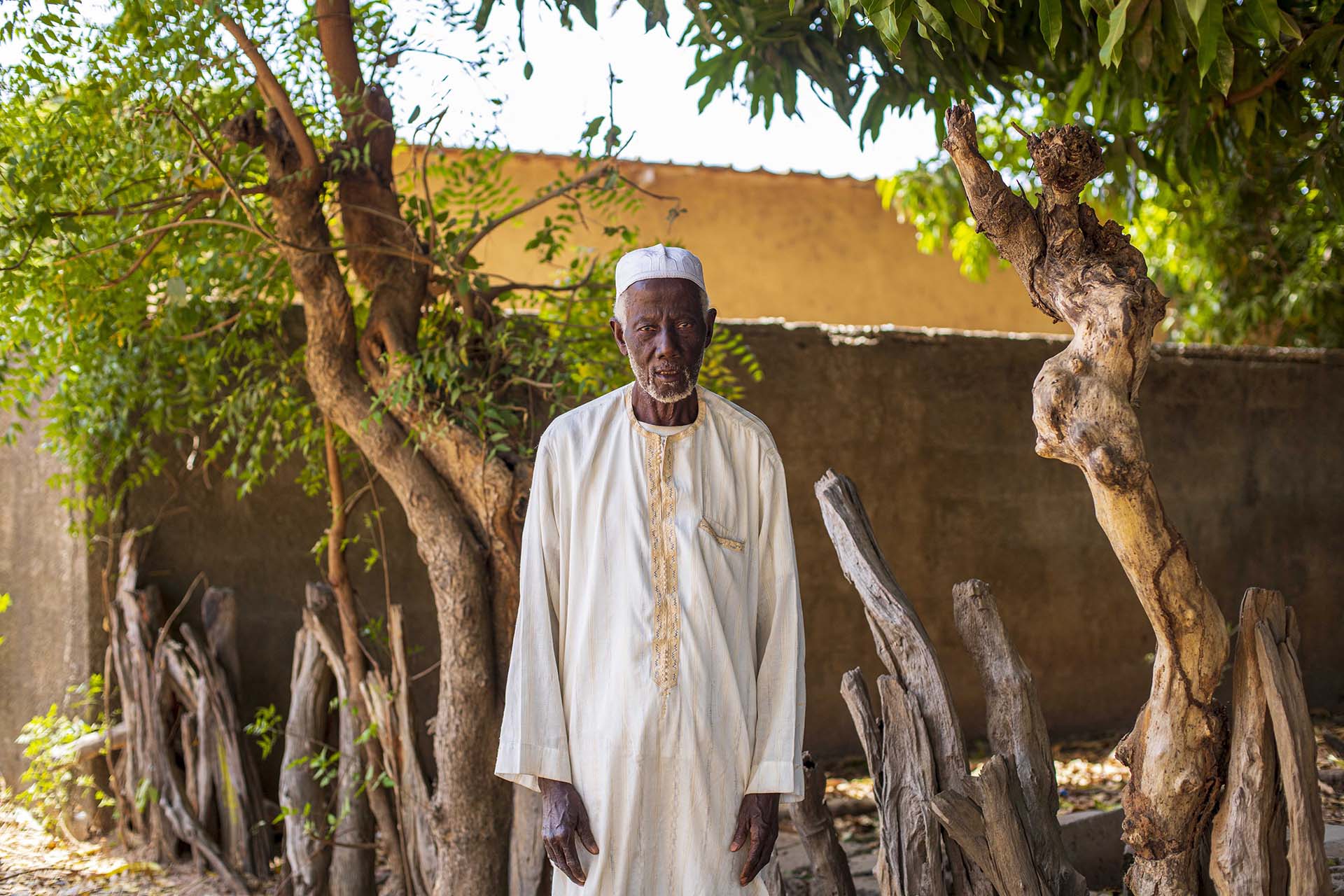
Kêba Cissé lives in Koubanao. He went on an exchange as part of the Canada World Youth programme in the 1970s. He spent a few months discovering several Canadian cities.
“In my day, people went off to discover. Today’s young people no longer set off to discover. They’re looking for comfort. They look for work to change their way of life, to develop themselves and their village. But some don’t make it. Some die along the way. And others, even if they do arrive, have enormous difficulty adapting and finding work. My advice to young people is to stay in their villages and ask the government for funding to help them develop.“

Atab Tamba lives in Koubanao. He is a retired Arabic language teacher. He studied in Iraq. He has a brother who lives in France.
“I don’t want my child to pack his bag and go further than Dakar. That’s my principle. I wouldn’t wish it on anyone because I know the suffering involved in migration. I’ve been there. We’ve seen friends who went to Arab countries, studied, came back and started working for the Senegalese government. I left Senegal to study in Iraq. We went through Mali, Burkina Faso, Niger, all the way to Chad. I spent two years in Chad. But back then, nobody told you anything. You could go from Senegal to Chad with your identity card. Nobody bothered you. Nowadays, you can’t venture out. I have a brother in France. I went to visit him. When I saw what was going on over there, I’d had enough of France. I saw all sorts of things. Have you seen how immigrants live in France? The Senegalese think they’ll find a better life elsewhere, but life is hard everywhere.”
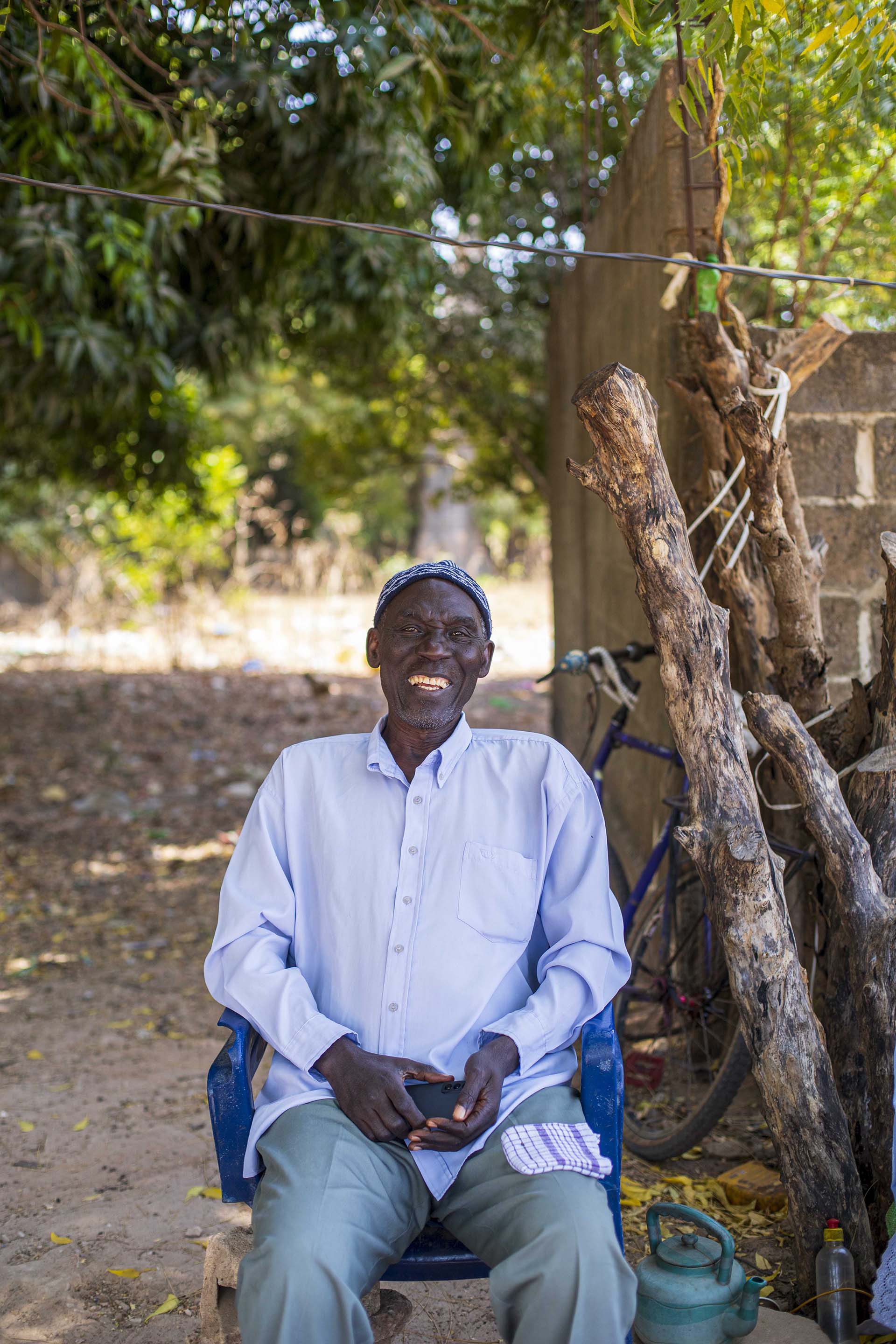
Kéloungtang Tamba worked for a long time in a company in Dakar. He has come back to Koubanao to retire.
“This wound needs to be treated. But how? That’s the question. You see in some families retired fathers who continue to support their children who are doctors or engineers. Do you think that’s normal? I don’t think school is useful. Because whatever your intellectual level, you’re not going to work. So what’s the point of sending my kid to school? These young people are forced to leave in the hope of finding a better life elsewhere. First for themselves and for their families. There are people who discreetly sell their cows just to help their child leave.”

Lamine Bernard Tamba lives in Koubanao. He is a retired technology teacher.
“With the CAN football tournament (African Cup of Nations), a lot of fans are chosen to follow the national team. The young people leave. Once in the country, they refuse to leave because they know that if they come back to Senegal they won’t be able to leave again. This is another form of immigration. But there are solutions. Starting at primary school, we need to create job-related training (carpentry, sewing). If I’m taught how to heal someone, I’ll continue to work after school. But here, school is not adapted to life. School has to adapt to life. As long as we don’t do that, immigration will continue.”
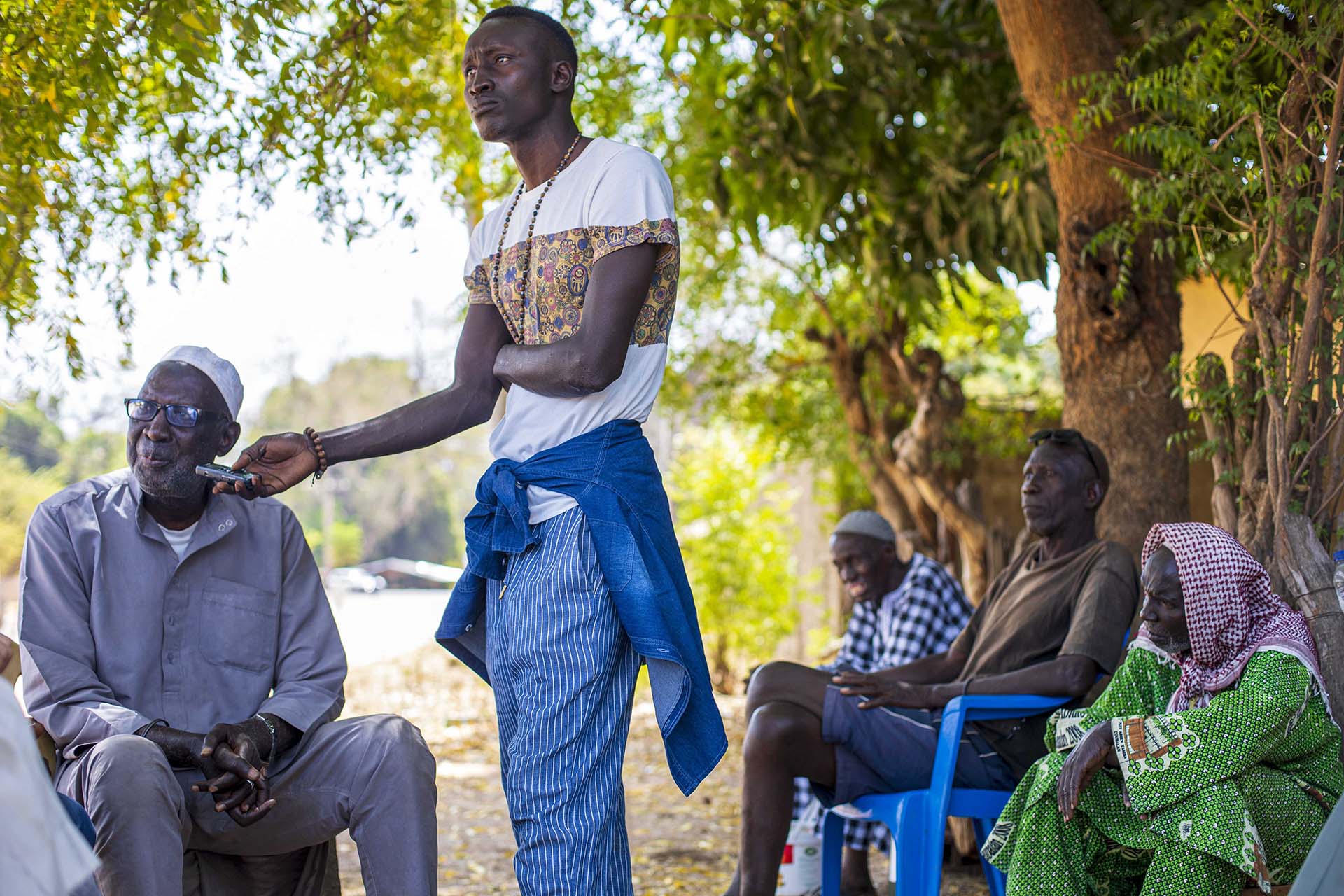
Malang Sané was born in Koubanao. He migrated to Morocco in 2019. He is a manager in a call center in Casablanca. His wife, Mariama Diédhiou, joined him in Morocco in 2023. They married long-distance in 2022, while Malang was in Morocco and Mariama in Dakar.
“Migration is not a new phenomenon, as human beings are called upon to move and discover new horizons. But today it has become a haemorrhage that is very difficult to stem, especially in Africa, because of poor governance and mismanagement of our resources, which are limited to a select group of a privileged few. So young people are leaving their countries to brave the ocean in the hope of finding a better life elsewhere. I advise my African brothers and sisters against braving the sea, because nothing is more precious than life. I live in Morocco and I dream of continuing the adventure one day if there is an opportunity to go where the grass is greener than here, but it will be by the legal route like the one I took to get here from Senegal, because I know quite a few young people who have lost their lives crossing the desert or the ocean to get to Europe. So my dear brothers and sisters, if you want to travel, get organised and take the legal route by preparing yourself mentally and physically.”

Ourétou Sané lives in Koubanao. Her daughter left Senegal to work in Morocco. She has worked all her life in the rice fields.
“People know that crossing the sea to Europe is no good. There are a lot of dangers. Sometimes you stay in the sea. Not only are you not in Europe, but you’re no longer alive.”

Khady Manga lives in Koubanao. She has a master’s degree in sociology. She is a teacher at one of the village’s primary schools (kindergarten level).
“The causes of migration are poverty and the question of consideration. If my child leaves to go to Europe, if he’s lucky enough to come back, he’ll be much more highly regarded than a child who has stayed here, even if he has nothing, even if we don’t know what conditions he’s living in over there.
There’s also a solution to the migration issue: entrepreneurship. Providing trainings in different sectors: market gardening, fruit and vegetable processing… Yet, you can live much better here than in Europe. We have everything here. There’s lots of space. There’s electricity, peace and quiet, water. Why not set up your own business and work here, stay at home, eat well and sleep well?”
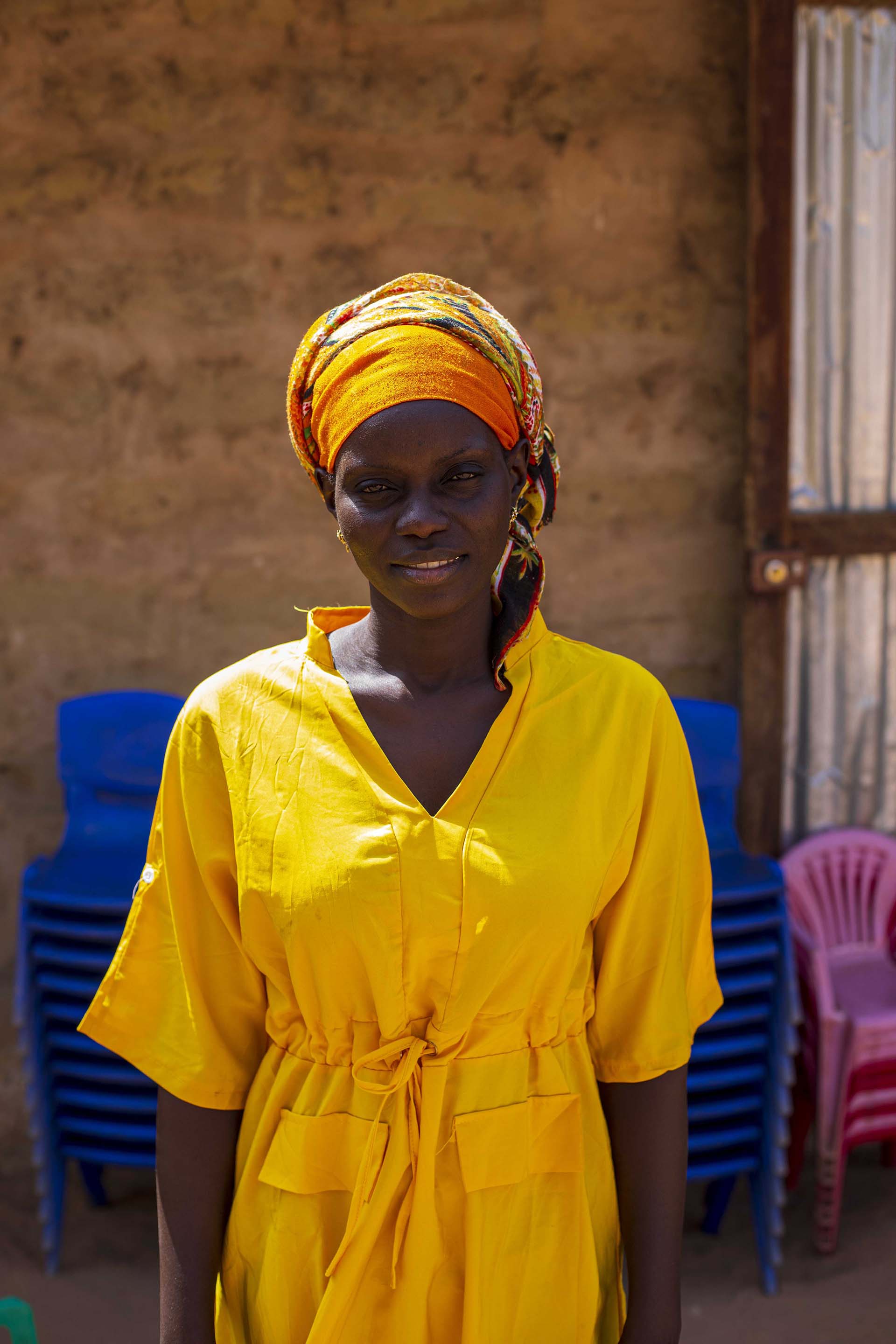
Saly Dième lives in Koubanao. She works in the rice fields.
“TThe women are very tired because the work in the rice fields is done by hand. That’s why our young people are leaving. We need machines to make our work easier or money to rebuild the dike in the rice field which has collapsed.”

Arabiétou Coly lives in Koubanao. She works in the rice fields.
“My nephew wanted to cross. One of the canoes got through but the other stayed underwater. The boat my nephew was in tipped over, but we were able to save them. If there was more work here, maybe young people wouldn’t be saying ‘I’m going to Spain or Italy’.”

Fatou Badiane lives in Dakar. At the time of our photo report, she was being trained in accounting and market gardening at the Koubanao vocational training cent-er as part of a programme funded by an Italian association to combat illegal immigration.
“I think that immigration allows people to increase their knowledge and discover different ways of life. It also allows them to earn a living. Because a lot of people here have qualifications but can’t find work. In Senegal, if you don’t know people who are well placed in the government (influential), you’ll never find a good job. But if you go to Europe with your diplomas, you’ll be able to find work.”
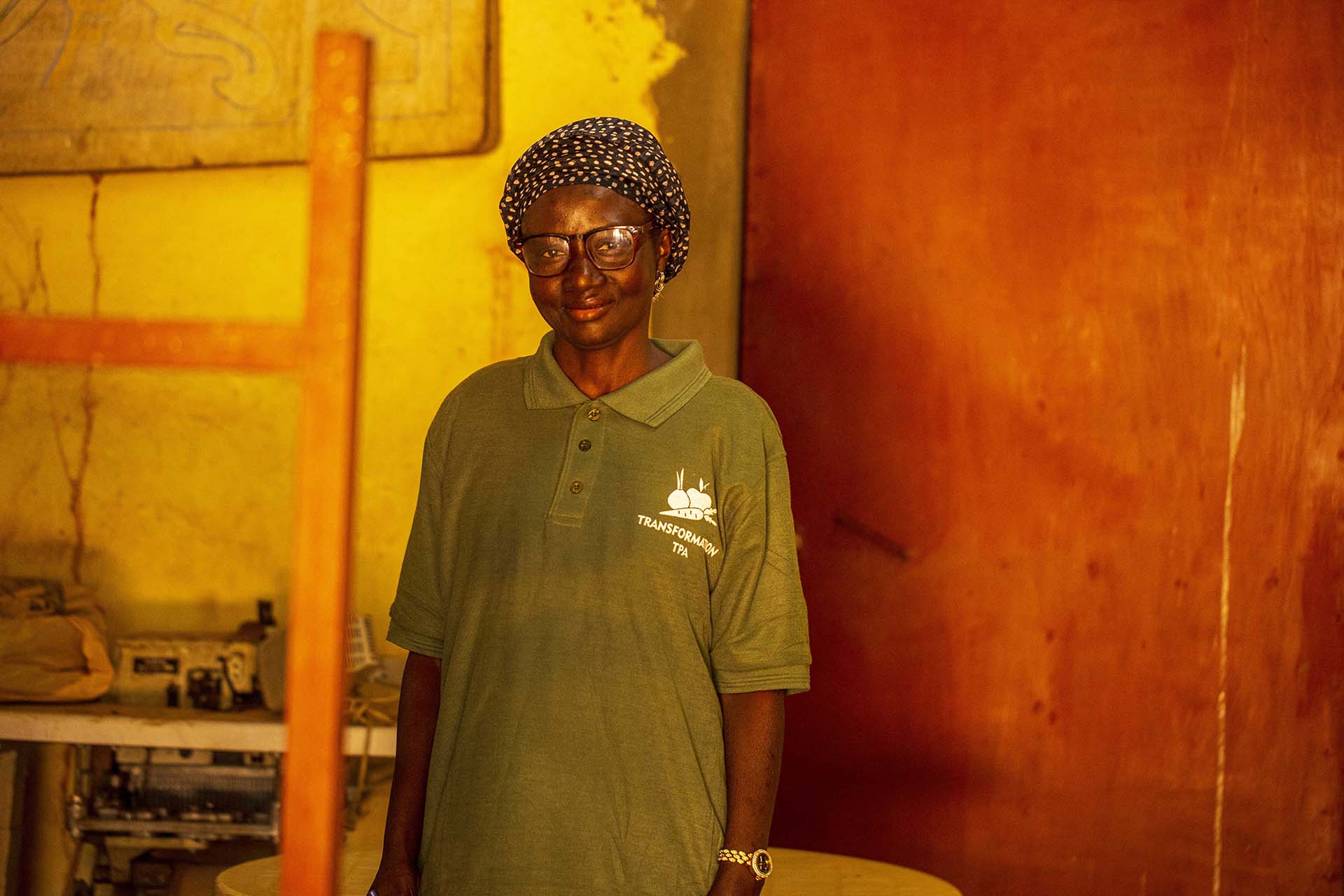
Mame Arame Tamba
“Our problem here in Africa is the lack of work. A lot of young people have degrees, we have resources, but we don’t have much work, given what the government is doing: no industry, no jobs, no funding.”
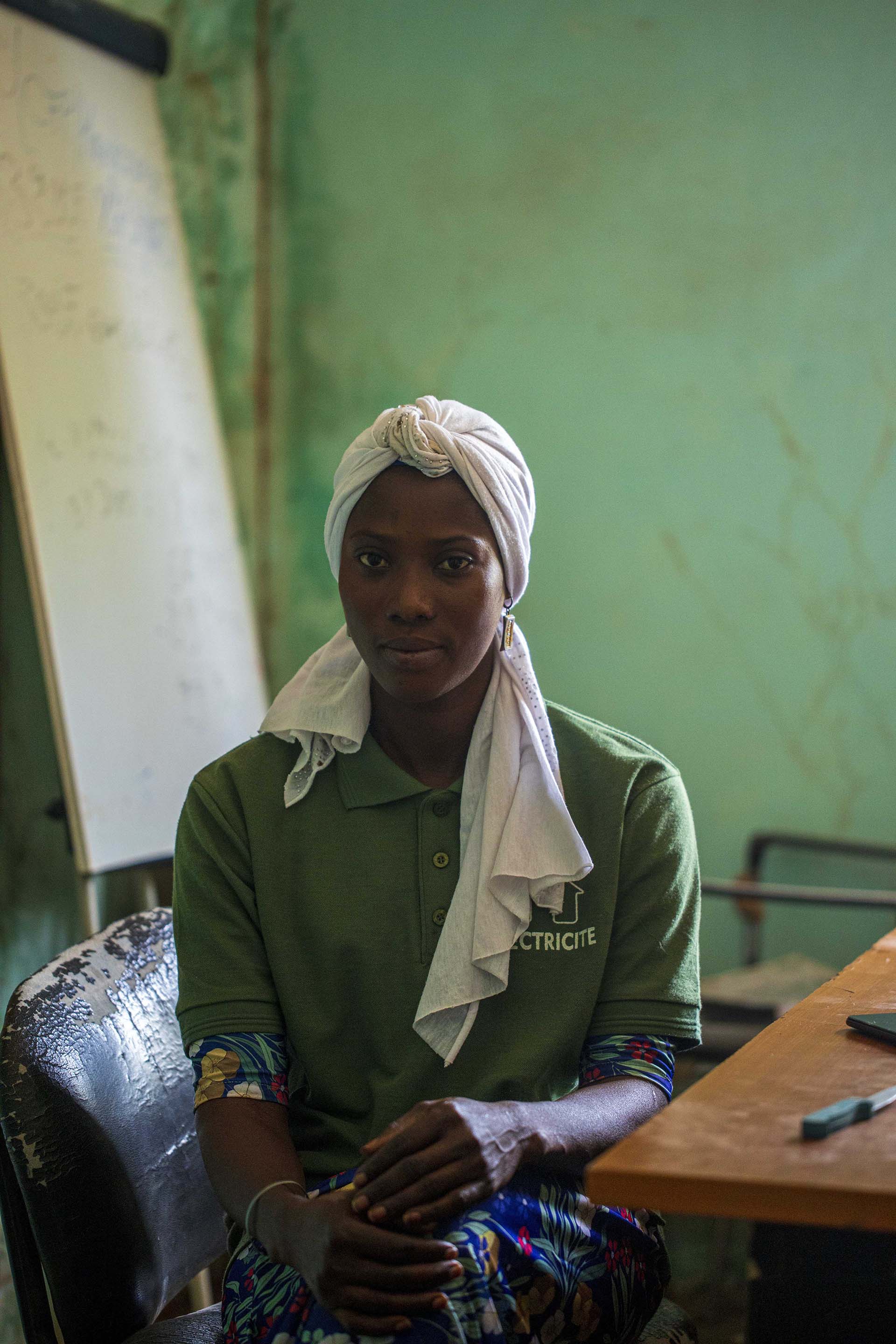
Diamélietou Sané lives in Koubanao. She works in the rice fields.
“I wouldn’t wish it on any young person to get in a canoe to cross over. I know a lot of young people who have died at sea. I’d rather stay here and even eat sand. It’s better than trying.“

Néné Mendy was born in Senegal of Guinean parents. She came to live in Koubanao when she married Mr Gomis. She studied at a university in Dakar and then opted to train as a dressmaker. She has her own sewing workshop. She also takes on trainees to learn the trade.
“Where you are now, at least you feel reassured that you can succeed. A child who decides to succeed can succeed. Because the earth doesn’t lie. You can work little by little and make a living here in the village.”

Awa Diédhiou lives in Koubanao. She works in the rice fields.
“Sometimes it’s the children themselves, who have left the village, who call their families here to tell them that they are with people who have kidnapped them. They ask for money so that they can be released. Some escape and make it to Spain, but others are killed on the way.”

Lena Sané lives in Koubanoa. She works in the rice fields.
“I want young people who want to immigrate to do so in the right way. I want them to be in very good conditions, in accordance with the rules of travel, i.e. with all the necessary paperwork: passport, visa. I don’t want them to leave illegally. If you go without paperwork, when you get there, you’re going to spend all your time hiding.“

Aïssatou Dièmé lives in Koubanoa. She works in the rice fields.
“There are many people who have been there for 2, 3 or 4 years and have never returned. They have never sent anything to their families because they have no paperwork. Even I want to goto get money or find a better life than here. But I want to go with my paperwork, so that I don’t get tired over there.“

Fanta lives in Koubanao. She works in the rice fields.
“Immigration in general requires a great deal of mental, physical, and even financial preparation. Young people tend to immigrate without preparing themselves physically, mentally, and financially. When you arrive in a country, you have to adapt to the climate and the pace of life there, but you have to take responsibility for yourself before you can expect to earn anything.“
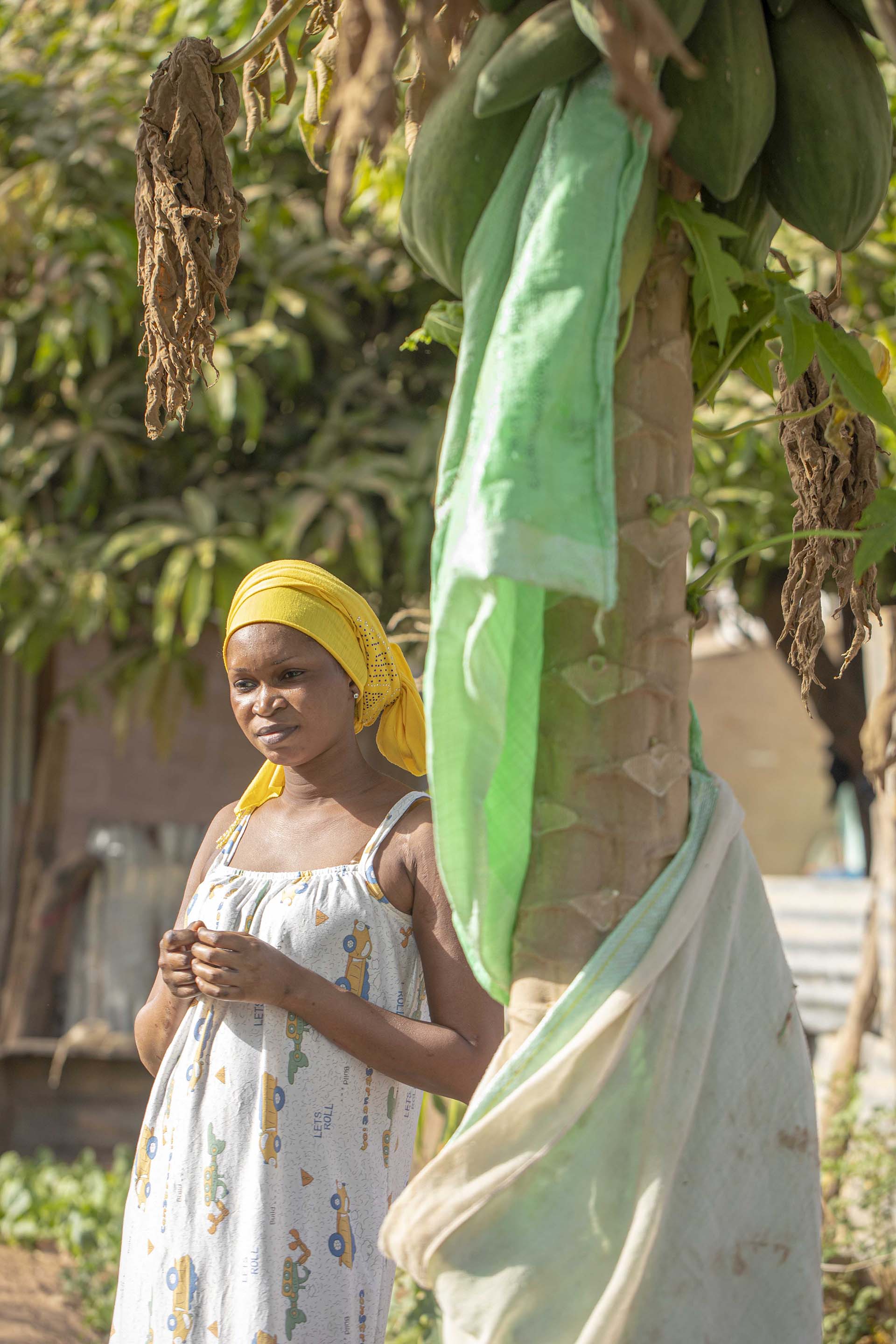
Awa Diédhiou lives in Koubanao. She has worked all her life in the rice fields.
“Travelling is fine but travelling by plane. Travelling in a canoe is too risky. Many of our young people have lost their lives at sea. I prefer young people to travel by plane. If a young person wants to leave his village to go abroad, he must first be qualified and have a profession. But to go to another country without doing anything is to encumber the others. I prefer young people to try to do something, to leave with a profession to work in.”

Nfally Dahaba (Dj Nar) lives in Ouonck. He hosts the community radio station Kalounayes FM located in Koubanao. He made a special dedication to us during our stay in Koubanao. Here is the audio.
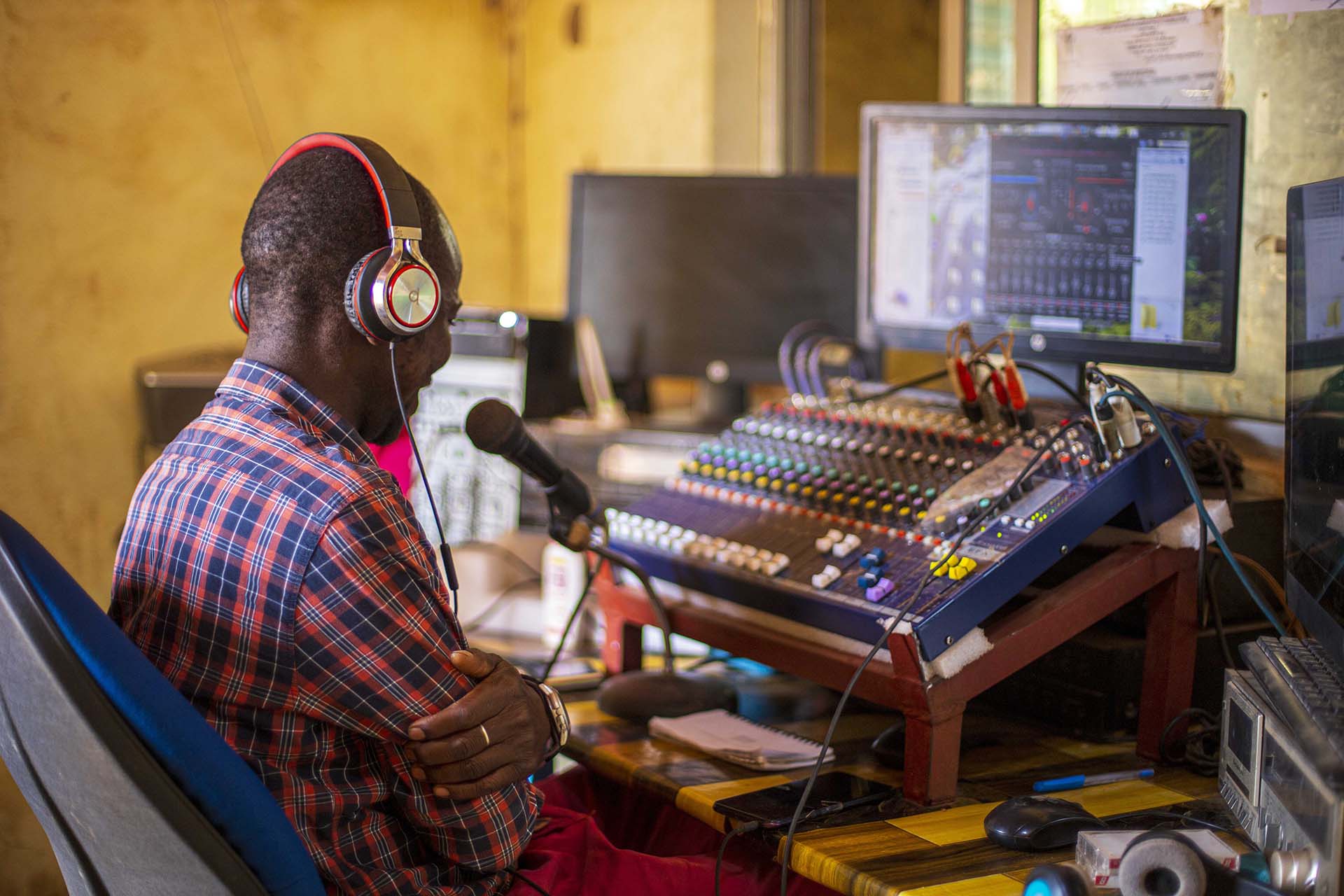
PHOTO REPORT IN DAKAR
Hatem was born and raised in Tunisia. He moved to Dakar in 2015 to pursue his medical studies thanks to a cooperation program between Senegal and Tunisia. He has just finished his general medicine degree and plans to do his specialty in Dakar. He also works for a Senegalese NGO that carries out community health missions in various rural areas of Senegal.
“I’m very lucky to have lived in Senegal. Ever since I was a little boy I wanted to go into medicine and this country has given me the chance to do my dream job. I’ll always be grateful to Senegal. I was brought up in this country without being very close to society. I learnt a lot just by watching and interacting with my patients, my teachers, and my neighbors: how to accept people, how not to judge them, how to help them. The situation of sub-Saharan Africans who leave their countries is incomparable to my own experience. I come from a country where sub-Saharan Africans are not always welcomed or treated well. Before coming here, I wasn’t very open. Here, I’ve been welcomed. What I am now was built on my experiences in Senegal. This country has given me principles of life, and human lessons. I’m becoming more of a humanist. My dream now is to work in international development. To give back to this country and to other countries that are considered secondary by Western governments, those that are ‘worthless’ in their eyes (Senegal, Tunisia, Morocco, Palestine).“
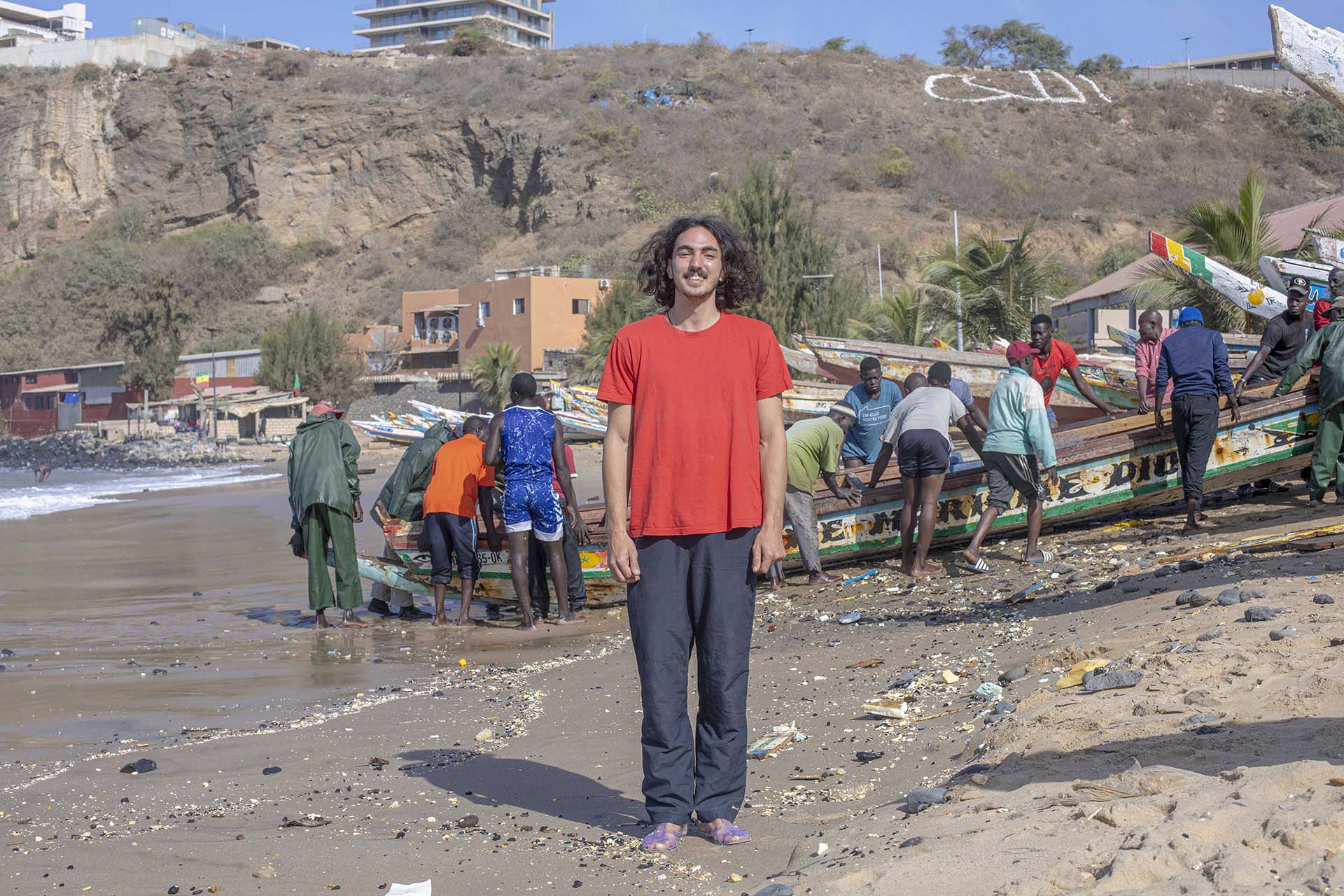
Karim was born in the United States to Moroccan parents. He has dual Moroccan and American nationality. He grew up in the United States until the age of 5. He then followed his parents back to Morocco, where he lived until he was 18. He returned to the United States to study. He has been living there for 20 years. At the time of our photo report, he had followed his wife who had a work contract in Dakar. After a sabbatical year, he was teleworking as a computer engineer for an American company.
“In the United States, I’m a foreigner, that’s for sure. In some cities, there’s a lot of racism. Many people classify me as an Arab or Muslim terrorist. Here it’s different. There’s a good relationship between Moroccans and Senegalese. They’re like brothers and sisters. Morocco and Senegal have a long history together. There are a lot of exchanges, a lot of programs. Senegalese people don’t need a passport to go to Morocco. There are more opportunities for them there. It’s the same for me. I have many more opportunities in the United States. So, even if it’s difficult, they have the choice. But in the end, you have to make sacrifices. And if they have a family, the choice is a little easier because they make sacrifices to offer their children a better life.“
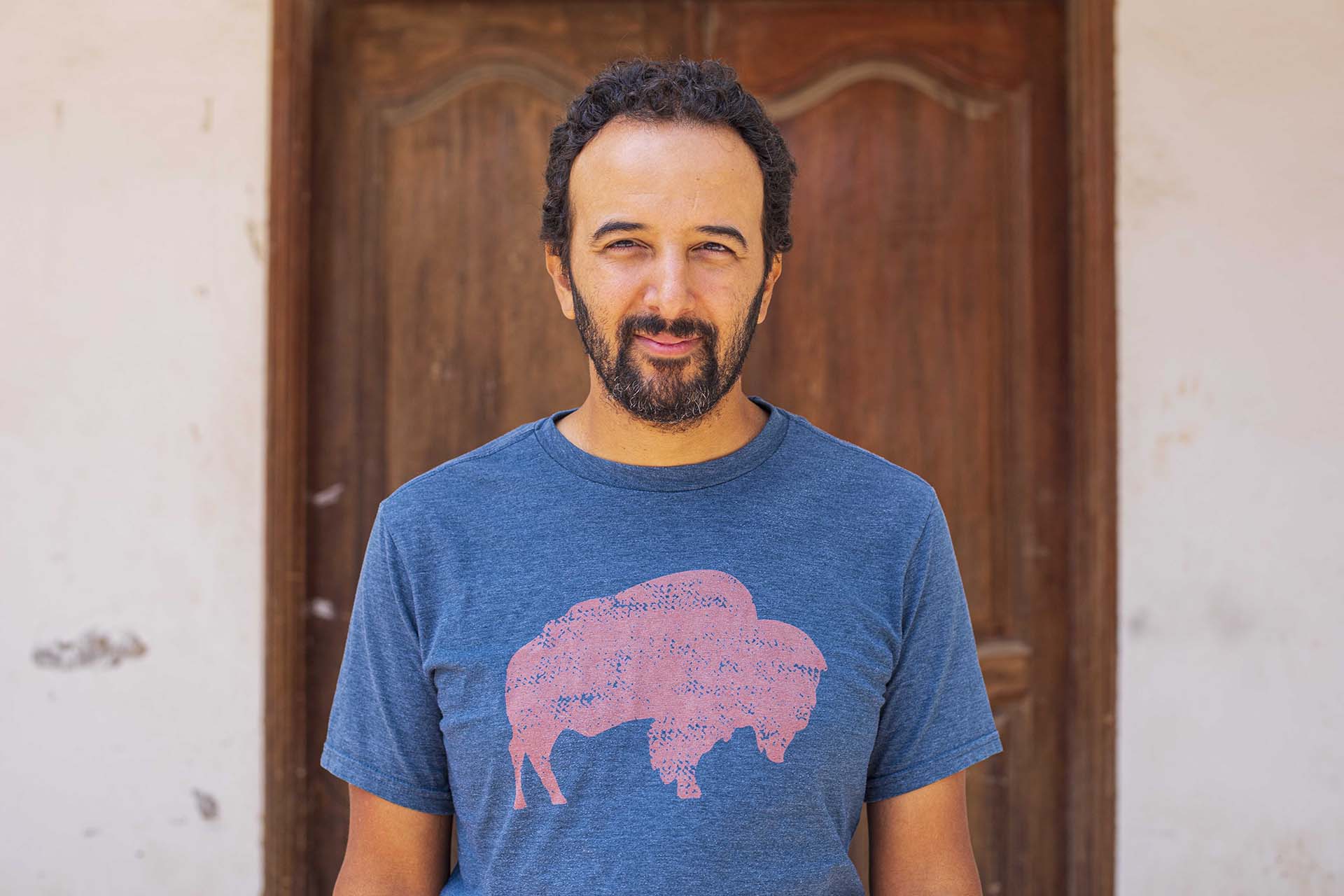
Théo is French. After studying engineering and applied mathematics, he wanted to do data analysis on biodiversity and the environment. He found a job opportunity in Dakar. At the time of our photo report, he had spent 5 years in intense transnational mobility between France and Senegal. He was in the final stages of writing his doctoral thesis (jointly supervised by France and Senegal) in the field of artificial intelligence. He was planning to return to France and take the time to think about what he wanted to do in his future life.
“I like to move around. I like to be on the move. But I don’t particularly want to always be a foreigner. Or always a tourist. I’m fine in places where I feel at home (my friends’ houses, where I sleep on their sofas), but I don’t want to have my own place. I want to be home in someone else’s home. I’m a bit critical of some of the activities I take part in here (in Dakar). It’s hard to find a position. There’s a certain guilt in being a toubab (white man) in Senegal because there’s the question of neo-colonialism. And on the other hand, there is a strong demand from our colleagues for us to come and help them – even if I don’t really like that term – to develop the scientific community.”

Samy’s great-grandparents fled the war in Lebanon and ended up in Senegal, where they were well received. Samy’s parents, like him, were born in Senegal and have Senegalese nationality. Samy does not have Lebanese nationality. At the time of our photo report, he had just finished his thesis and was working as a dentist at the public hospital. He would like to open his own private practice while continuing to work in the public system to combine medical and social work.
“I was born here, in Dakar, and I’ve never been on a plane. I’ve never known anything other than Senegal. I only have Senegalese nationality. I can get Lebanese papers, but there are steps to be taken. I don’t really consider myself Lebanese. I’ve never seen Lebanon. I don’t know much Arabic. I know more French and Wolof. This is where I feel at home. If someone asks me what nationality I am, I’ll say Senegalese. I won’t even say Lebanese if they don’t ask. It’s a pity, but it’s understandable that many Senegalese want to move elsewhere, because apart from the capital, there’s no real development. When they reach a certain level of poverty, I think they say to themselves: ‘I’ll live or die, I’ll leave, I’ll try my luck’. It’s a shame, because there’s great potential here, but even agriculture is being neglected. Local rice is more expensive than imported rice. It’s not normal!“
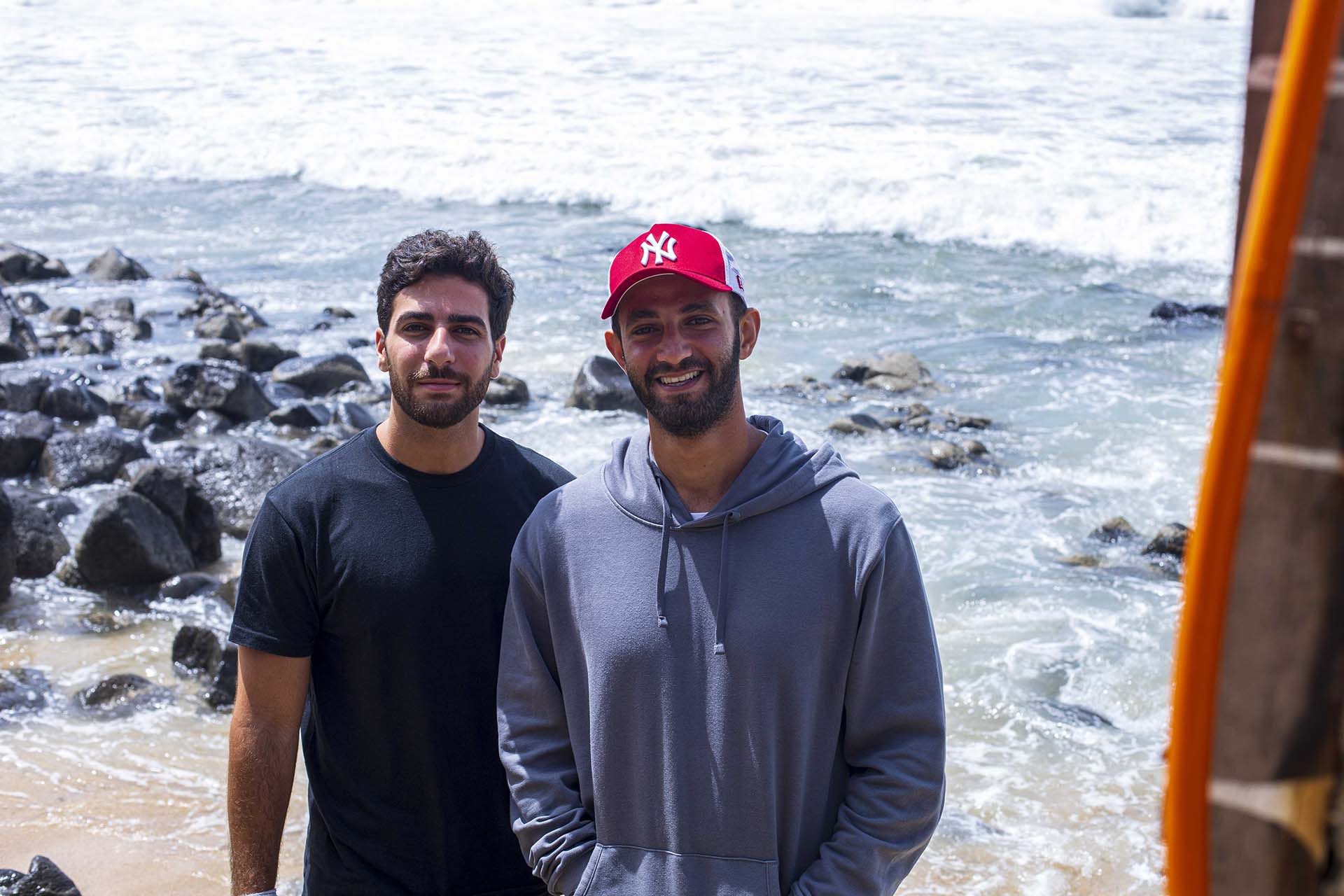
Moussa and Cinzia met in Italy. They lived in Italy for some time, but at the time of our photo report, they were settled in Senegal (in a town near Dakar) with their young daughter, where they run a hostel. Moussa is a football coach for the national youth team in Dakar. They were thinking of moving back to Italy to send their little girl to school and also for professional reasons (on Cinzia’s side), but it’s difficult for Moussa to leave Senegal for professional reasons.
“This life between Senegal and Italy is the best of both worlds! I’m a football coach with the young Senegalese national team. I train them, but I also make them aware of the issue of immigration, because many of them dream of playing in a European team. Some young people get caught up in bogus recruitment networks. They’re promised a contract in Europe. People take their money, but they never touch European soil. It’s my responsibility to make them aware of this reality. I also give them the right information. You have to be at least 18 years old to be recruited by a European team. The law is clear”
Moussa
“Immigrating to Senegal and then going back to my country (Italy) was a real journey of awareness for me, which helped me to evolve. I’d like everyone to have the chance to experience something like that.”
Cinzia
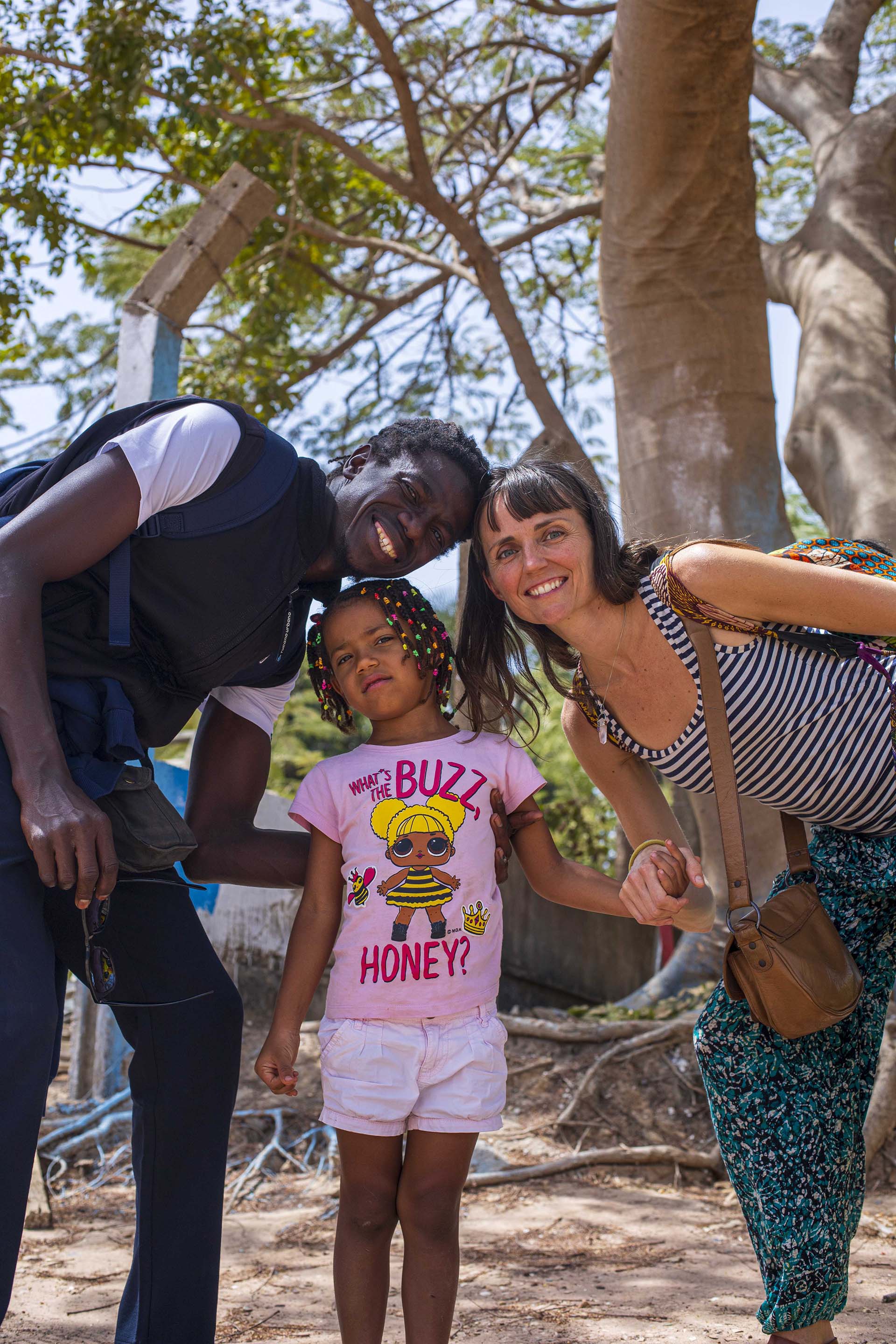
Born in Yugoslavia, Mladen grew up in France, where he obtained French nationality. He was working in Mauritania and had just accepted a work contract in Serbia. He met his Senegalese wife-to-be through a mutual friend on a trip to Senegal. They were officially married at Dakar town hall. At the time of our photo report, they were on their honeymoon in Casamance (Senegal). They had taken steps to obtain the necessary papers so that she could join him in Serbia.
“I wasn’t able to get married with my French passport because the French authorities require all French nationals who want to get married in Senegal to obtain a ‘certificat de capacité de mariage’ (the certificate that proves you are allowed to get married) in order to be able to transcribe their marriage in the French registers. The procedure for obtaining this certificate takes at least 6 months and requires applicants to be residents in Dakar. This is clearly a discriminatory practice aimed at restricting Franco-Senegalese marriages. I was forced to get married with my Serbian passport and look for work in Serbia so that my wife could come and live with me. The migration of people from the countries of the South (and not only from the South) is the result of historical and social injustice and the inequalities produced by colonisation and exploitation. The issue of migration cannot be dissociated from that of the value chain. If this hope of a better life exists, it is because we live in a global system of exploitation and hierarchy between rich and poor countries.”
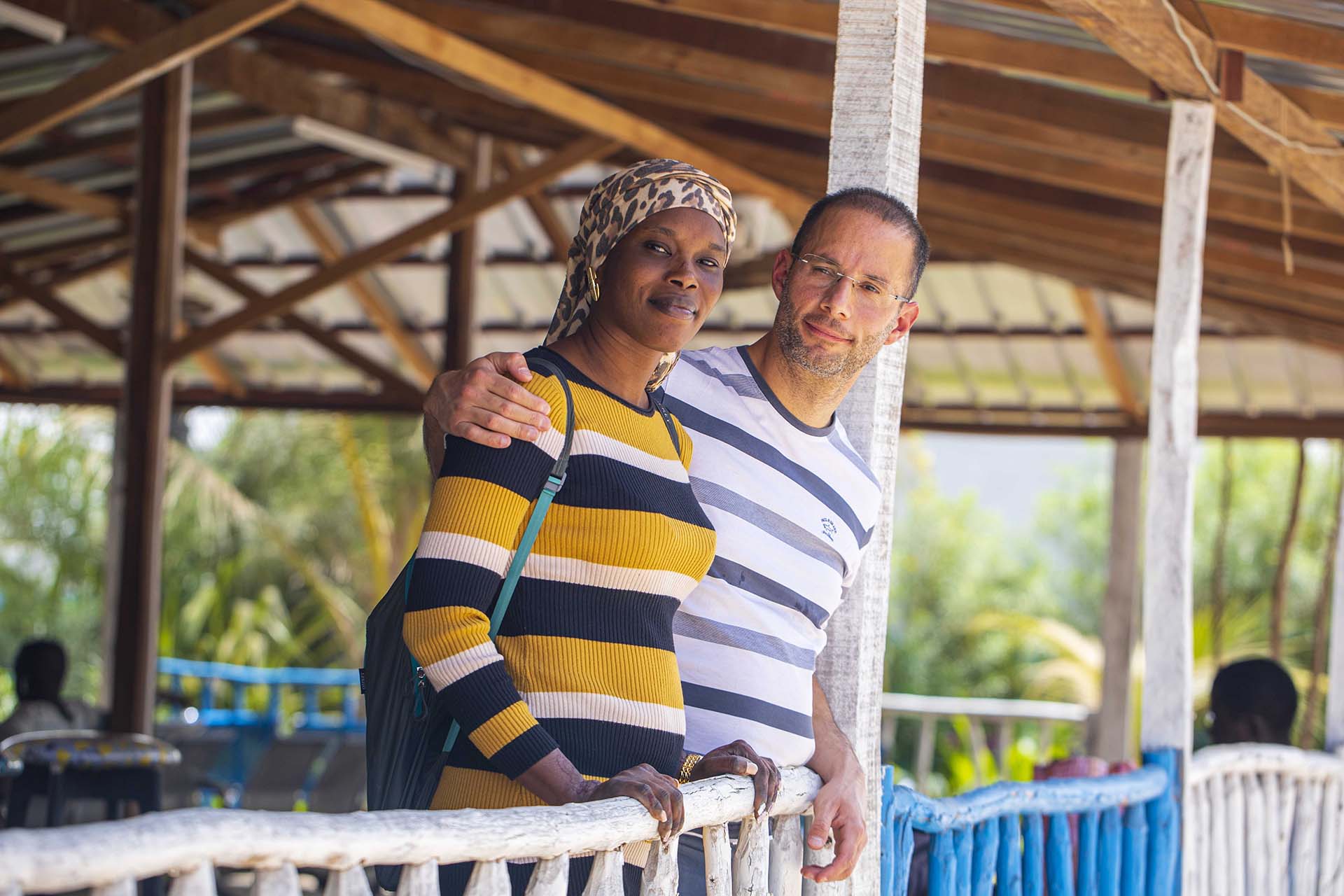
Vicky is American. She always wanted to leave her small village in the United States to live abroad. She learnt French and went to study in France. She works in international development. She has worked in Guinea and Botswana. At the time of our photo report, she had been on assignment in Dakar since 2022. She was planning to return to the United States for a while to work in another country at a later date.
“But how can we manage immigration in a sustainable way? Can we support those seeking a better life while protecting Europe, for example, which cannot take in the whole of Africa? It’s a very complicated question. There is no conclusion. There will always be people who want to go abroad. Especially in this day and age when everyone is connected by mobile phone. For me, for example, it really made me want to go to France, but the grass isn’t always greener elsewhere. I’ve always wanted to live abroad and now I’ve got to the point where I appreciate what’s there in my own country. After 36 years, I want to go back home. But I understand why people want to go and discover what’s going on elsewhere, it opens your mind, it changes your way of thinking. I feel privileged to be able to come here (to Senegal) without any problems.”
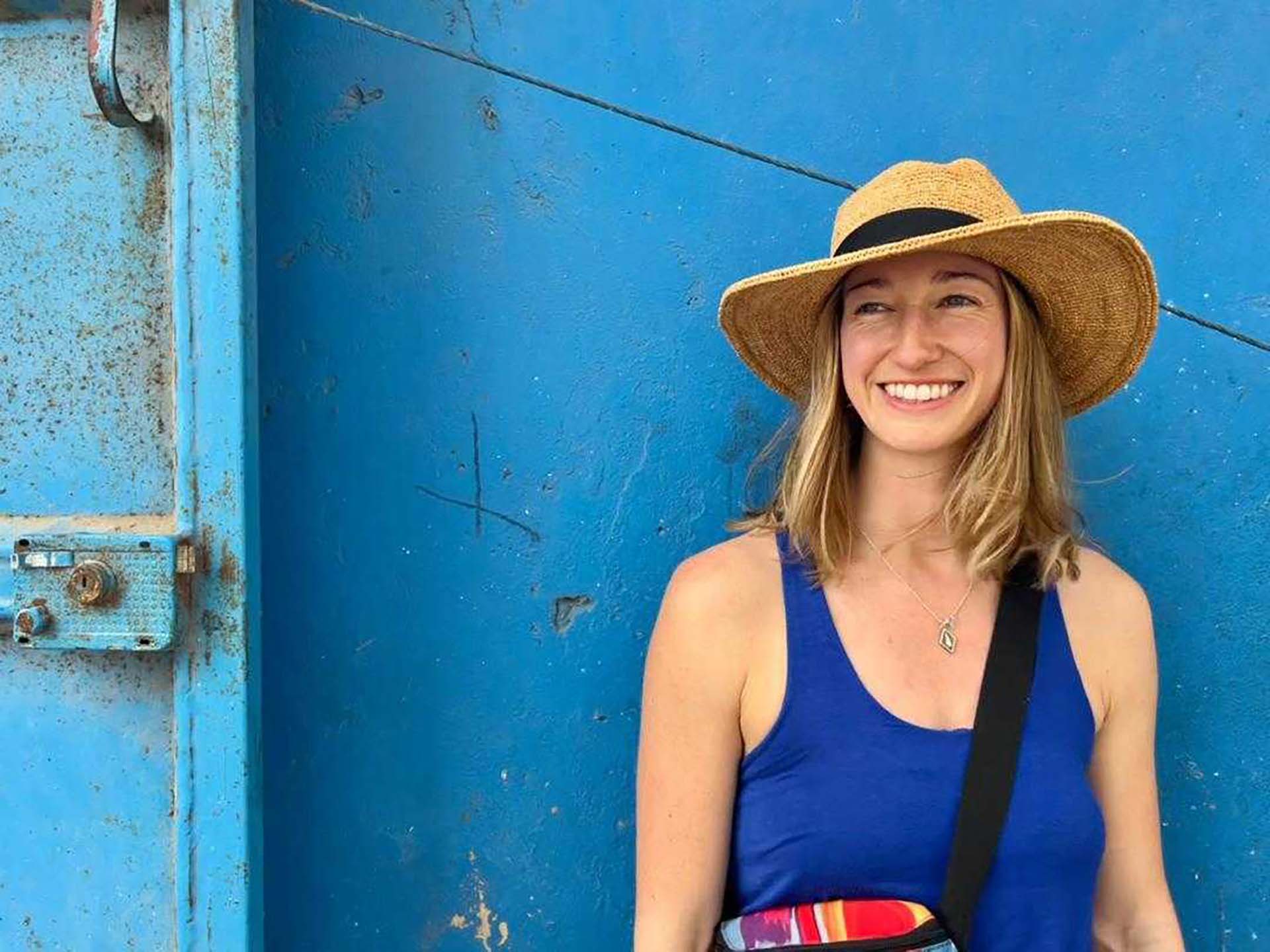
Megane is French. As a child, she lived with her family in several countries (Guinea Conakry, Benin, Martinique, New Caledonia). During her studies in journalism, she did work placements in South Africa and India. At the time of our photo report, she had been based in Dakar since 2022. She was working as a journalist for a French TV station, covering the whole of Africa.
“We’re constantly measuring the inequality between us. We’re lucky. Personally, I’ve never had any problems traveling. I have quite a few Senegalese friends through surfing. And they’re always in awe of the fact that I can move around because they themselves feel suffocated. I have a Senegalese friend, he’s the same age as me. He’s never left his little room, his little bedroom, his little village. He can’t take it anymore. He says to me ‘You’ve got to help me leave’. So yes, there is a form of injustice in migration. I move from country to country as I please.”
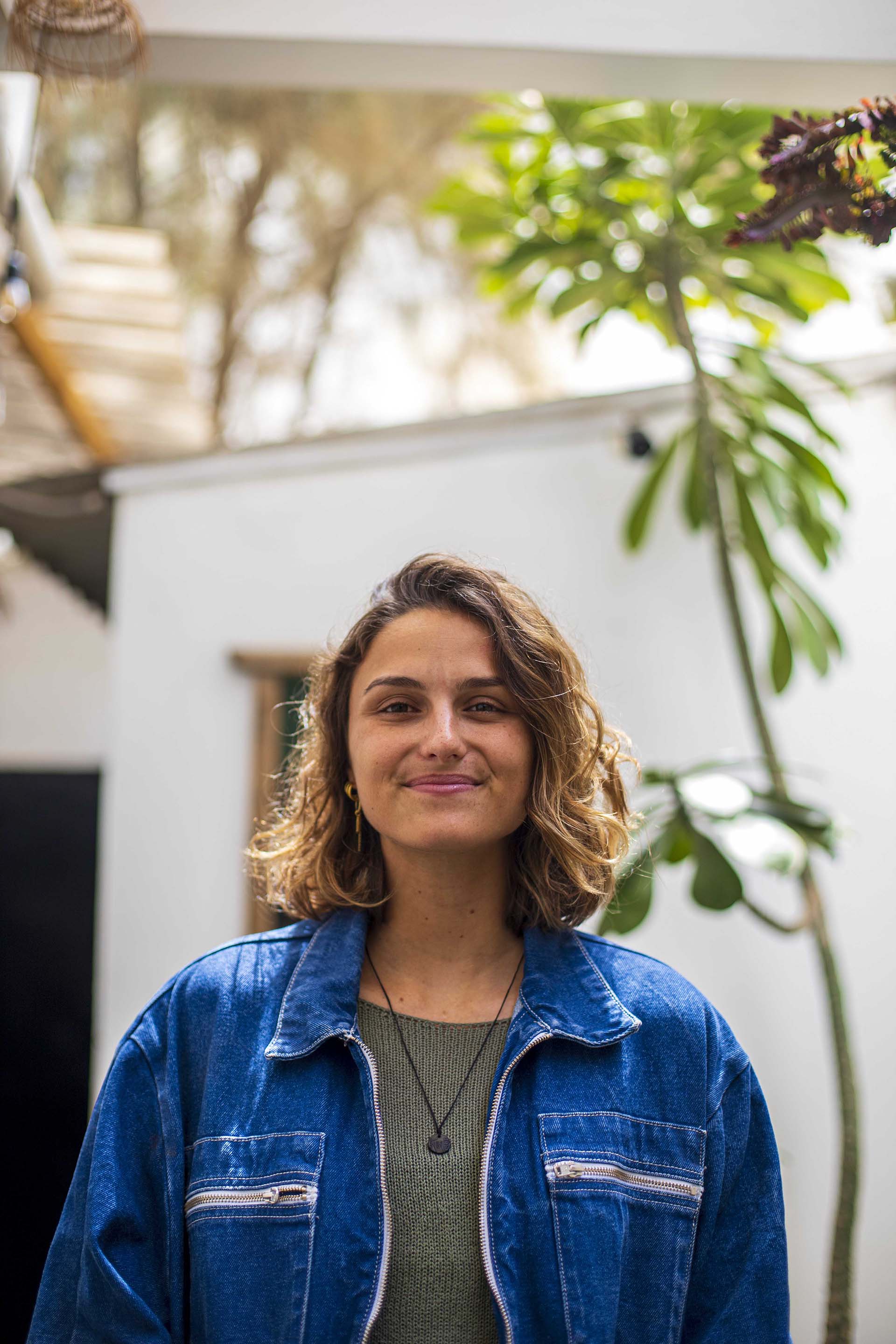
Natacha is French. After Covid, she wanted to go and live abroad. At the time of our photo report, she had been living in Dakar for 3 years, working in human resources for a French foundation based there.
“I want to do a third year. But it’ll probably be my last because I don’t think I’ll ever feel at home here. It’s very difficult with the Senegalese. We don’t have the same culture. We’re very different, even though they’re very nice people. But I know I won’t be going back to France because I’ve had the opportunity to see something else. Another way of life where family and health come first. In France, we talk a lot about work. I think we’re losing a bit of our humanity.”
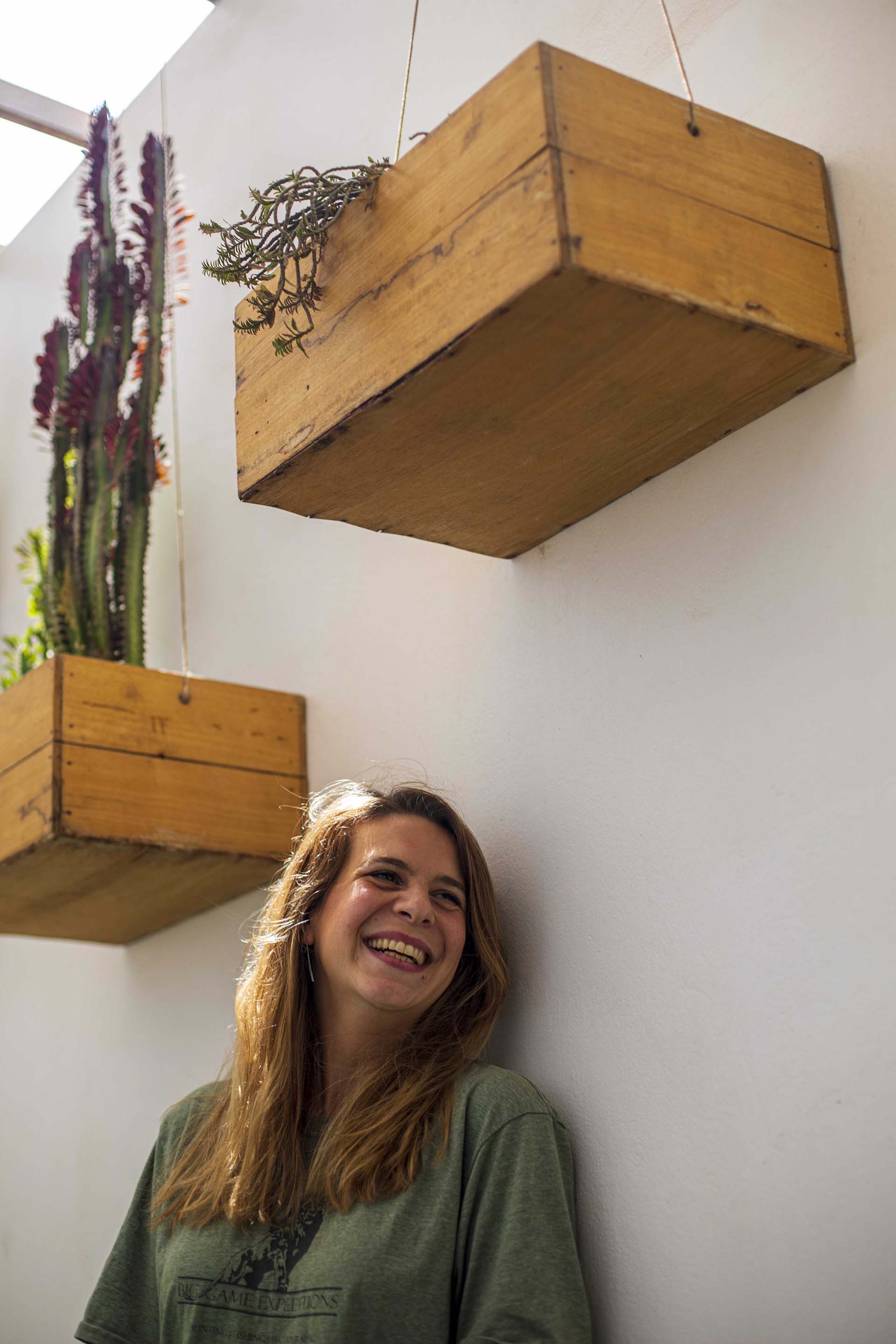
Rose’s parents are from Switzerland, but she was born and raised in Germany (so she has dual nationality) until the age of 22. She then moved to Australia, where she lived for 10 years. In 2021, the Australian company she was working for offered her a 3-year expatriation contract to work on a major power construction project in Senegal. In August 2024, she will return to Australia where she hopes to obtain citizenship.
“My parents have a house on the Canary Islands. They live in a small village where one of the village’s 20 houses has been converted into a temporary home for around thirty children who arrived from Senegal by boat without their families. We always talk about the canoes that run aground at sea. I’d only seen photos. Meeting 8- or 10-year-olds who had been through the same thing made the experience more personal. When you read in the papers that 100,000 migrants have arrived for economic reasons, those are just statistics. This experience has changed my perspective because it’s very easy to make judgements based on what you see in the papers. If I were in the same situation as some of the people I met in Senegal, what would I do? I think that if I had the opportunity to send my child abroad, even if it hurt a lot, I would accept it. If people tried to build a personal relationship with migrants in order to understand the complexity of the reasons why they leave, it would really change perceptions.“
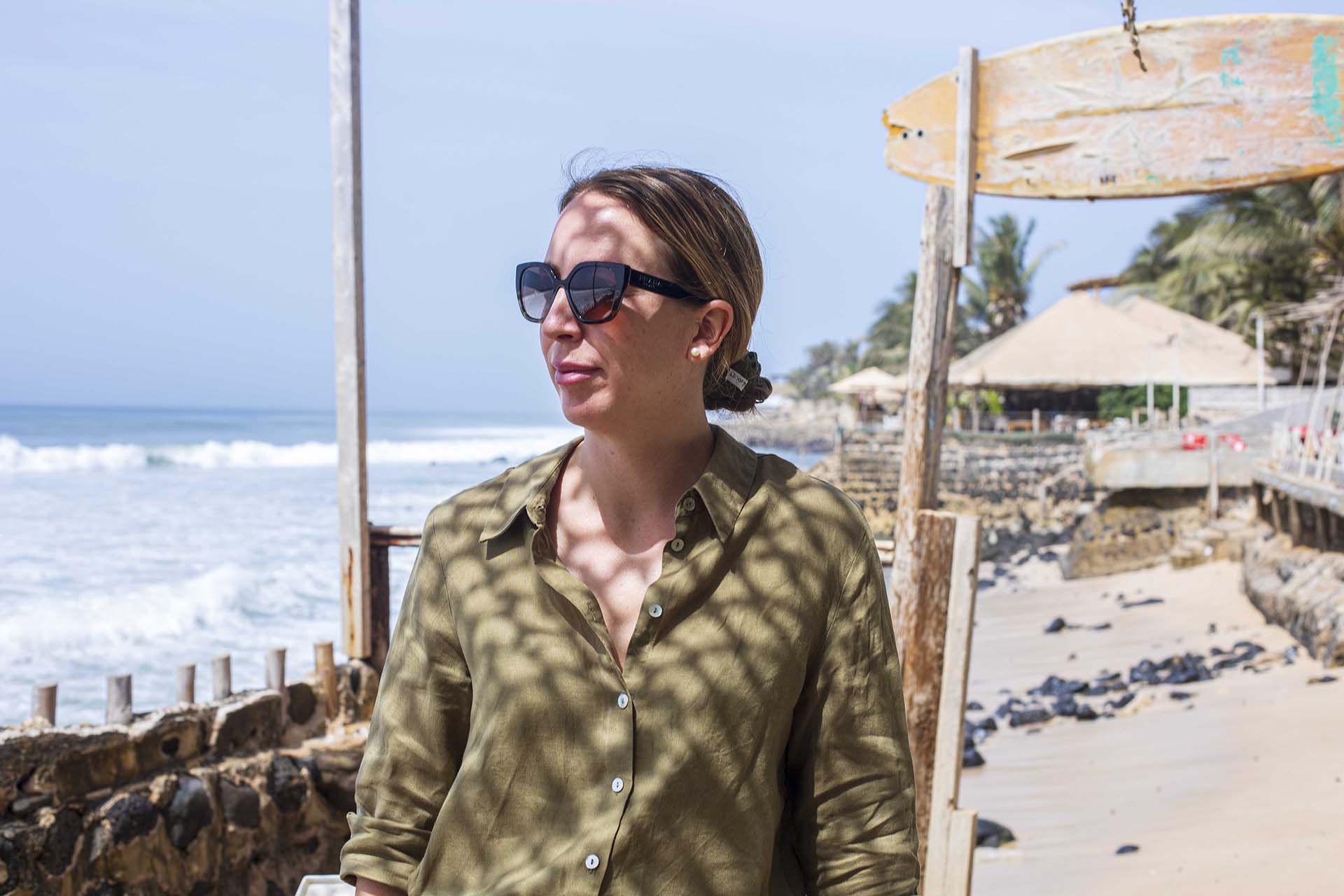

This project has received funding from the European Union’s Horizon 2020 research and innovation programme under grant agreement No 101004539. The content does not necessarily reflect the opinion of the European Commission. The European Commission is also not responsible for any use that may be made of the information contained therein.
Photo credits: Mohamed Keita
PARTNERS

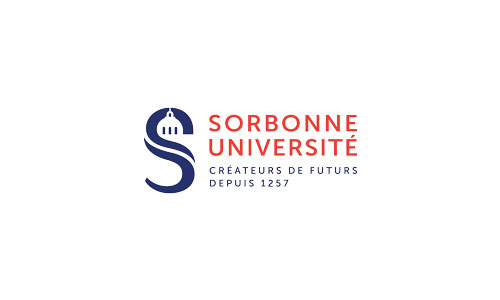
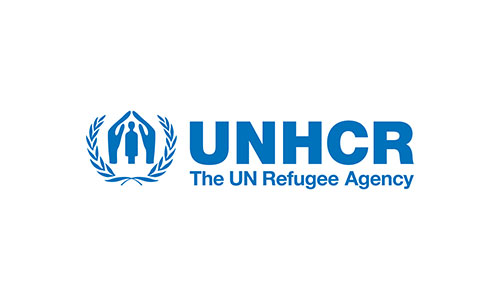
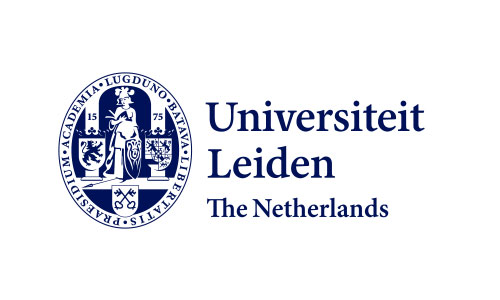
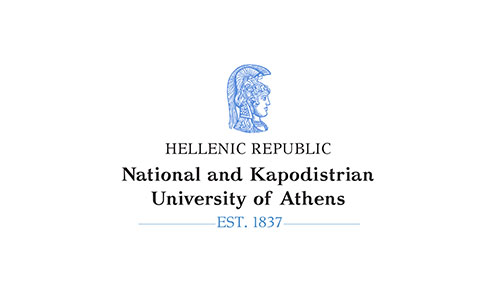
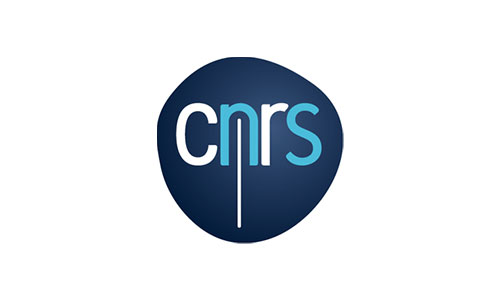
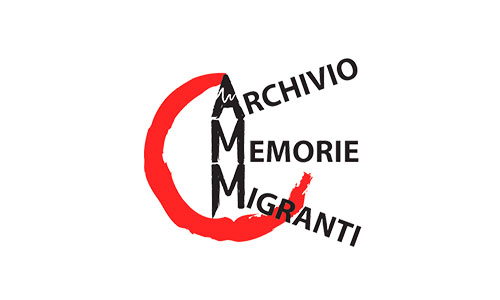
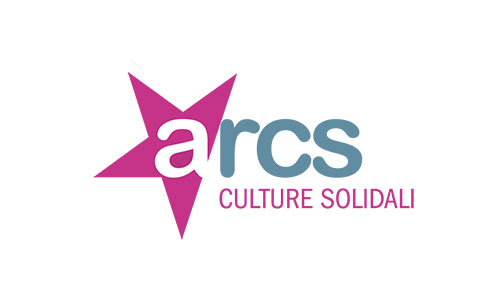
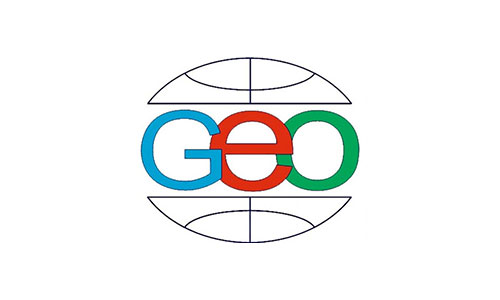
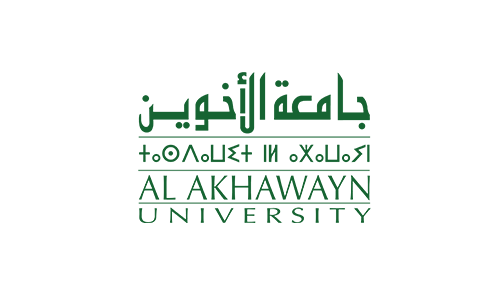
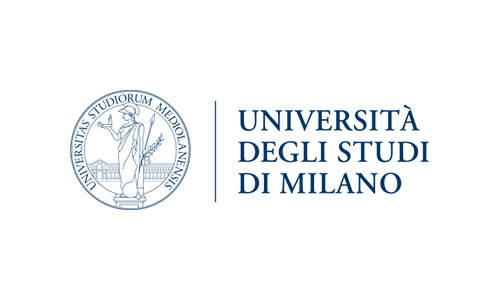

تلقى هذا المشروع تمويلًا من برنامج Horizon 2020 للبحث والابتكار التابع للاتحاد الأوروبي بموجب اتفاقية المنحة رقم 101004539 ويجمع 12 منظمة شريكة مختلفة.
النشرة الإخبارية
Error: Contact form not found.
Copyright 2025 Ithaca. All right reserved.
Powered by Università degli Studi di Modena e Reggio Emilia (UNIMORE).

